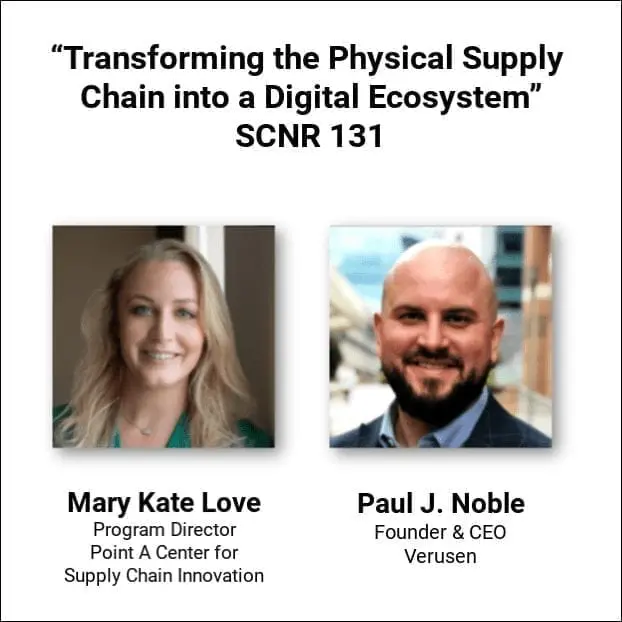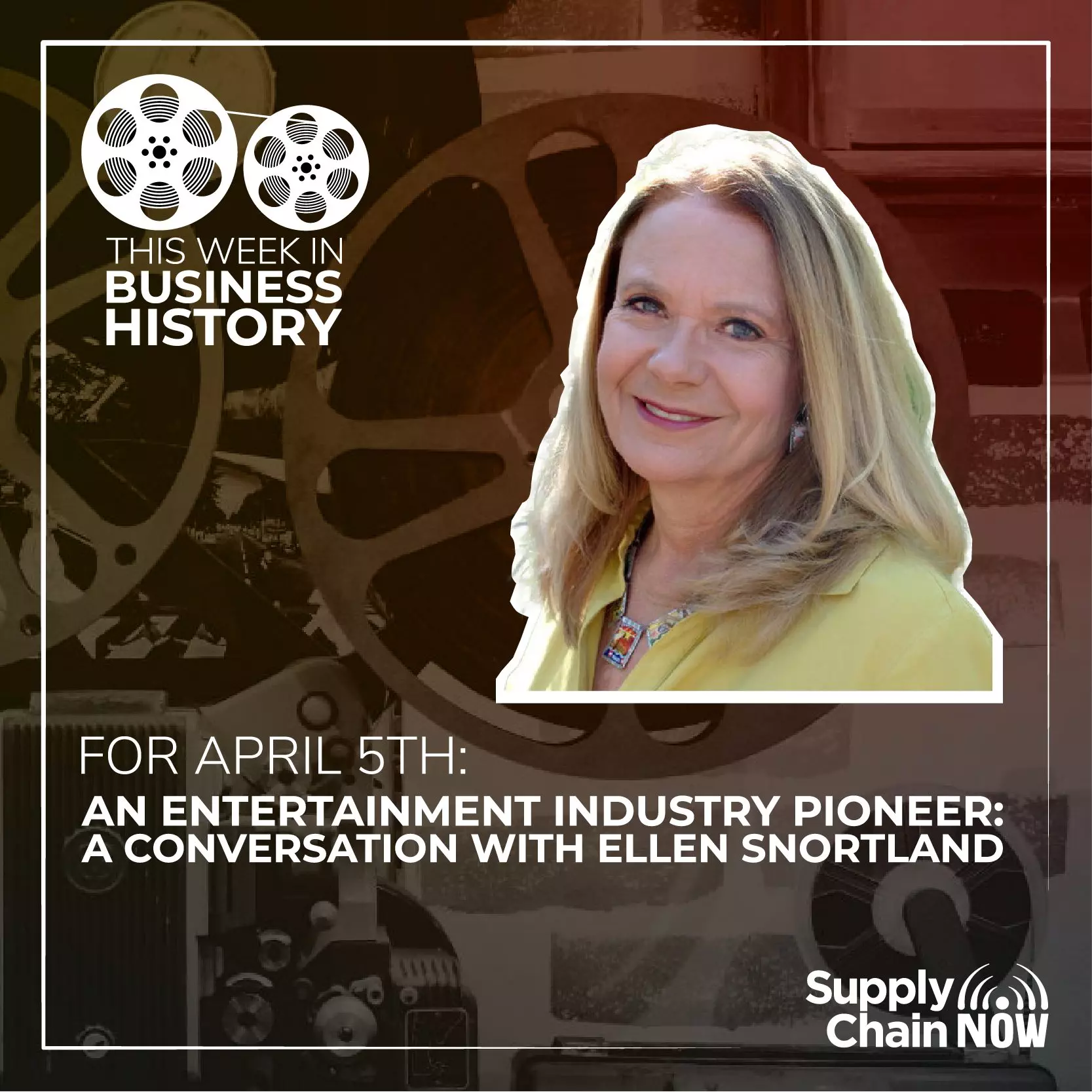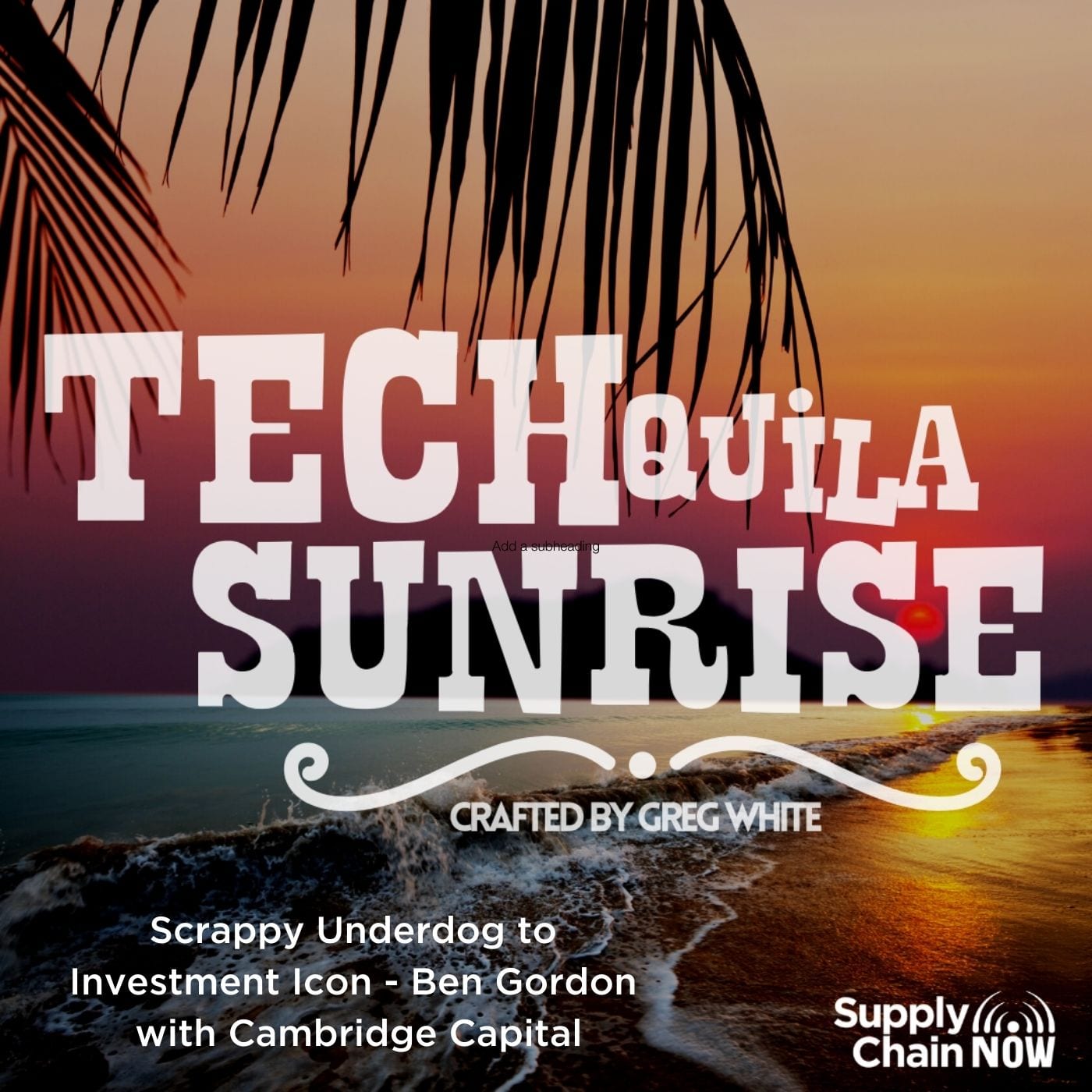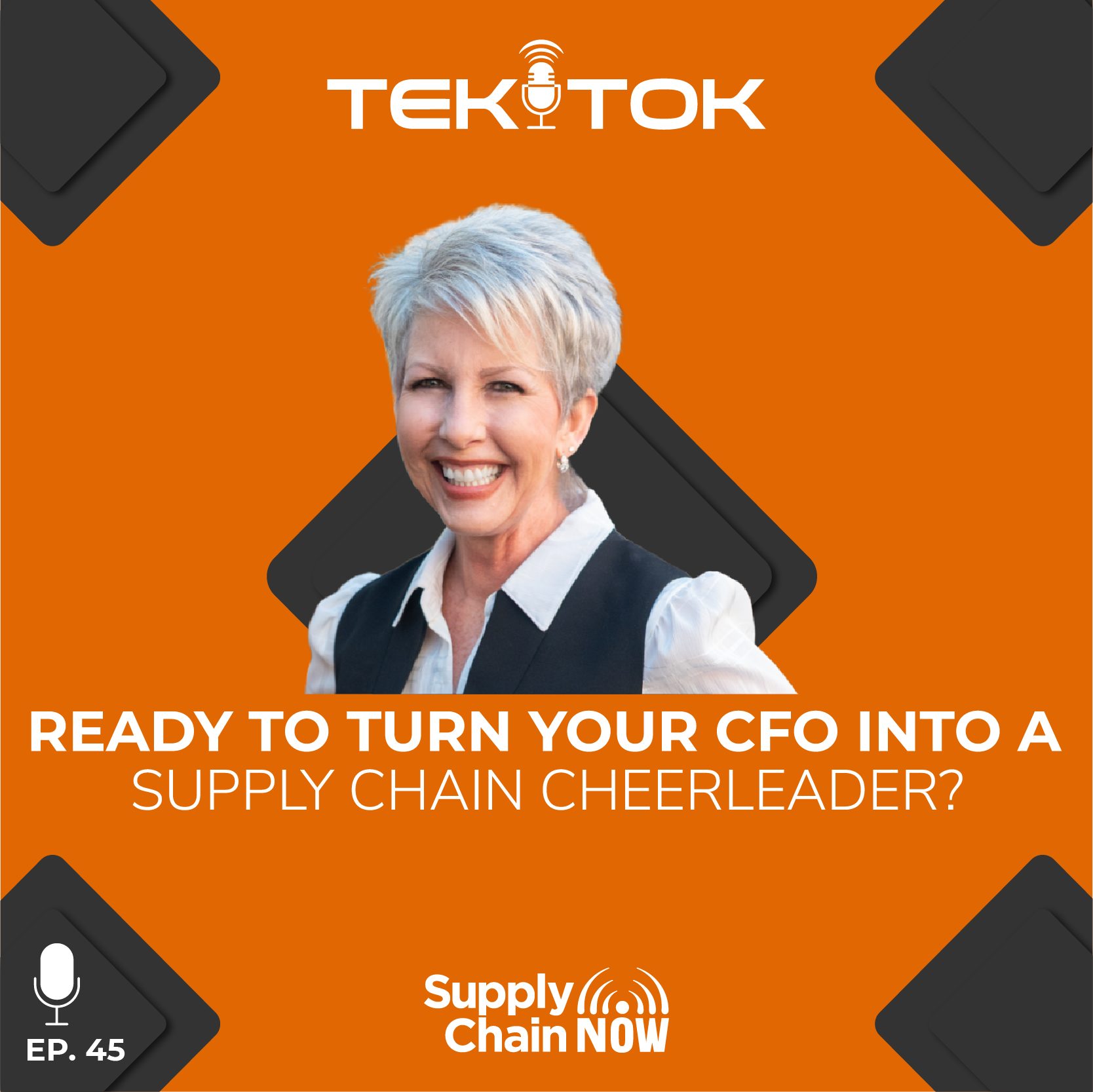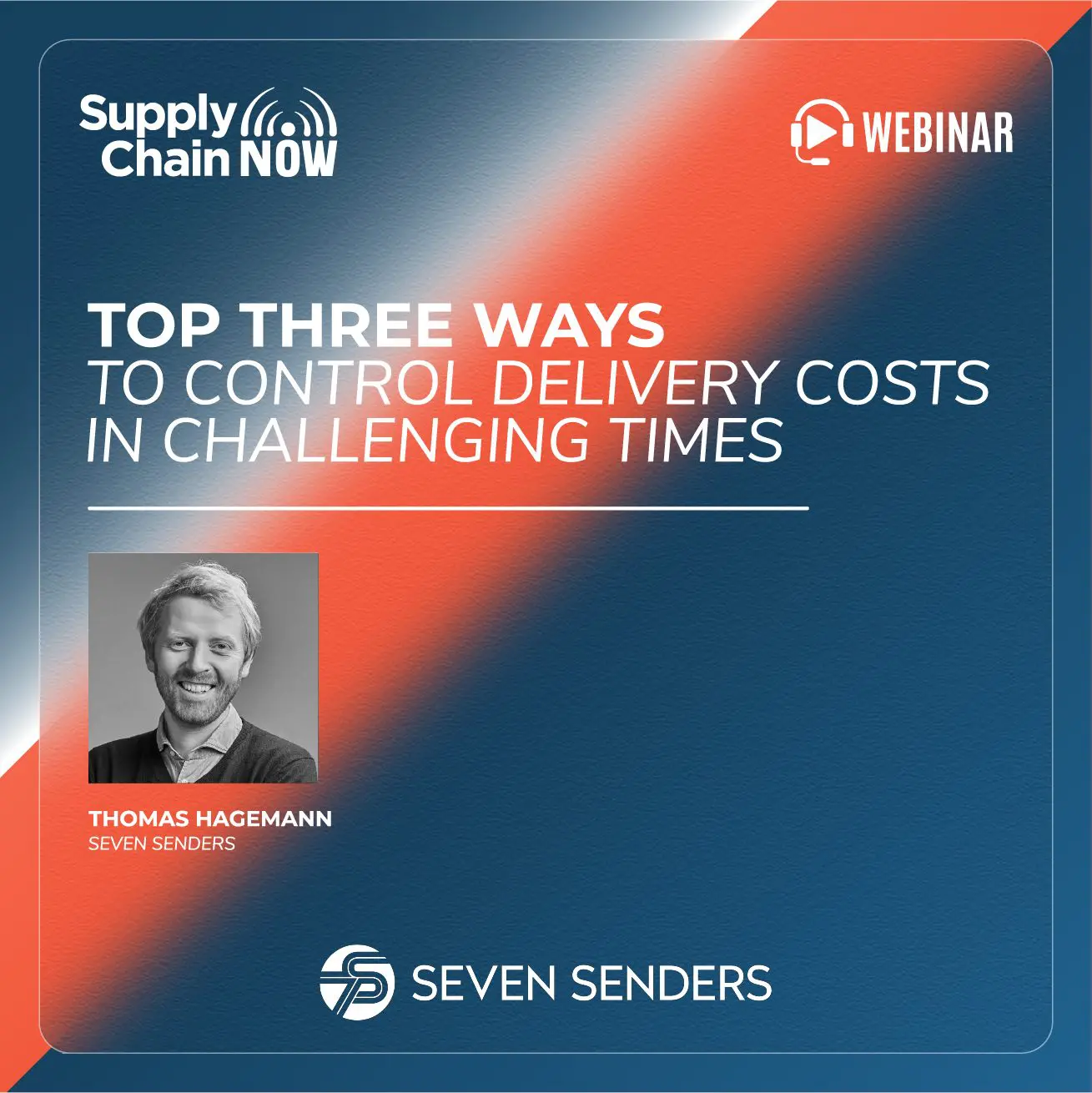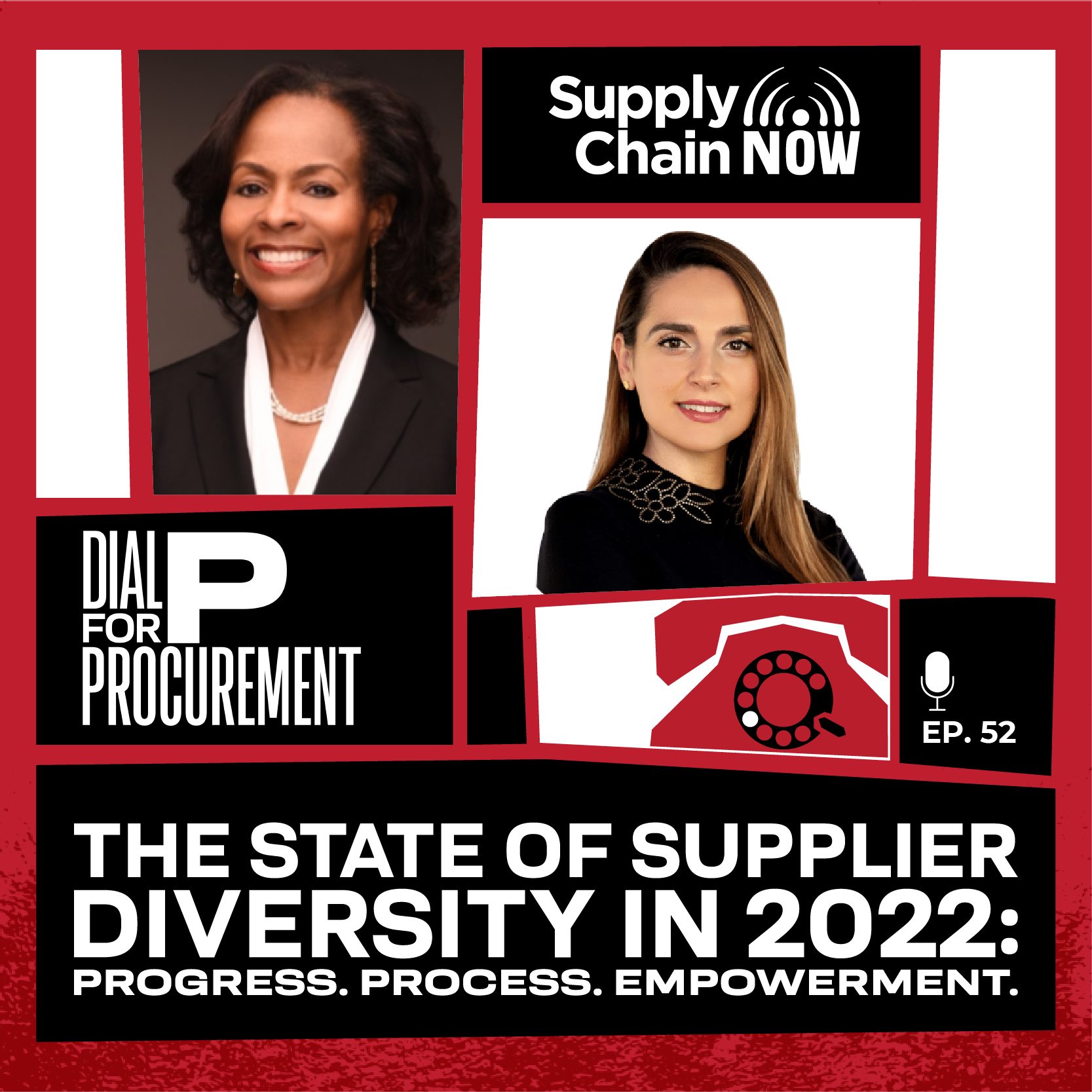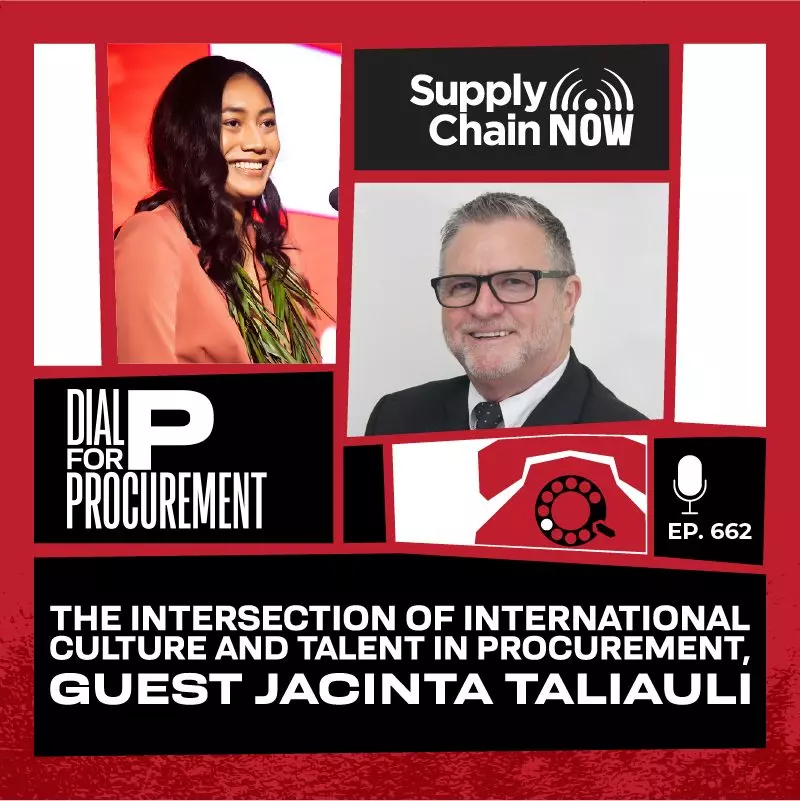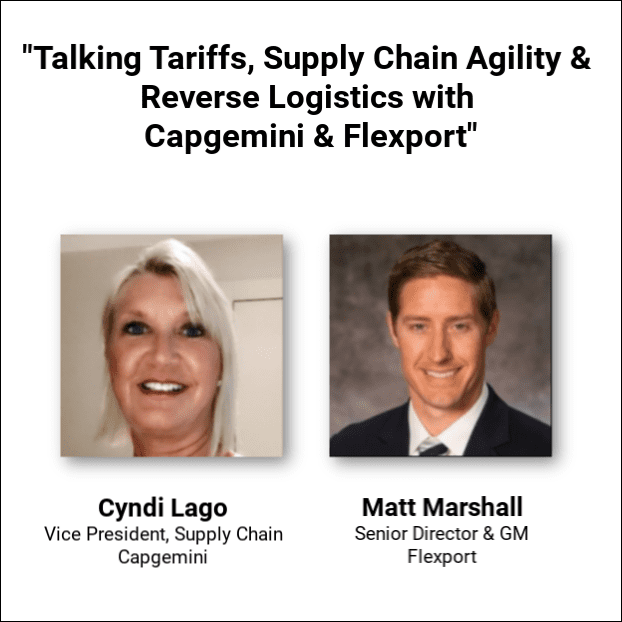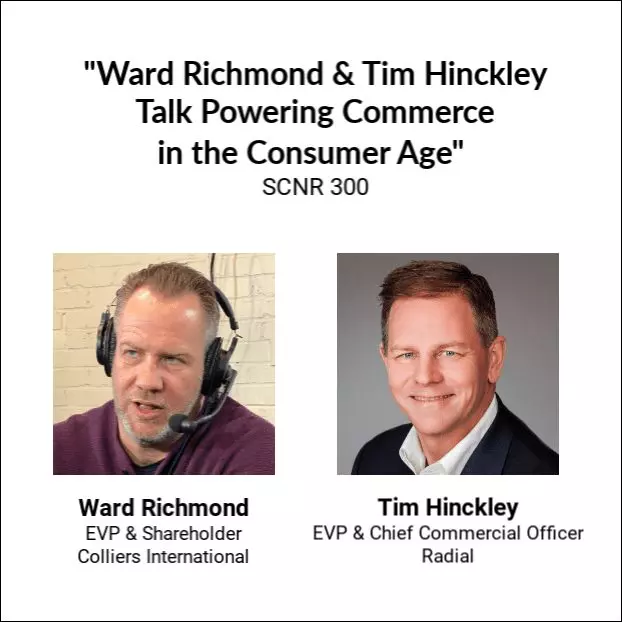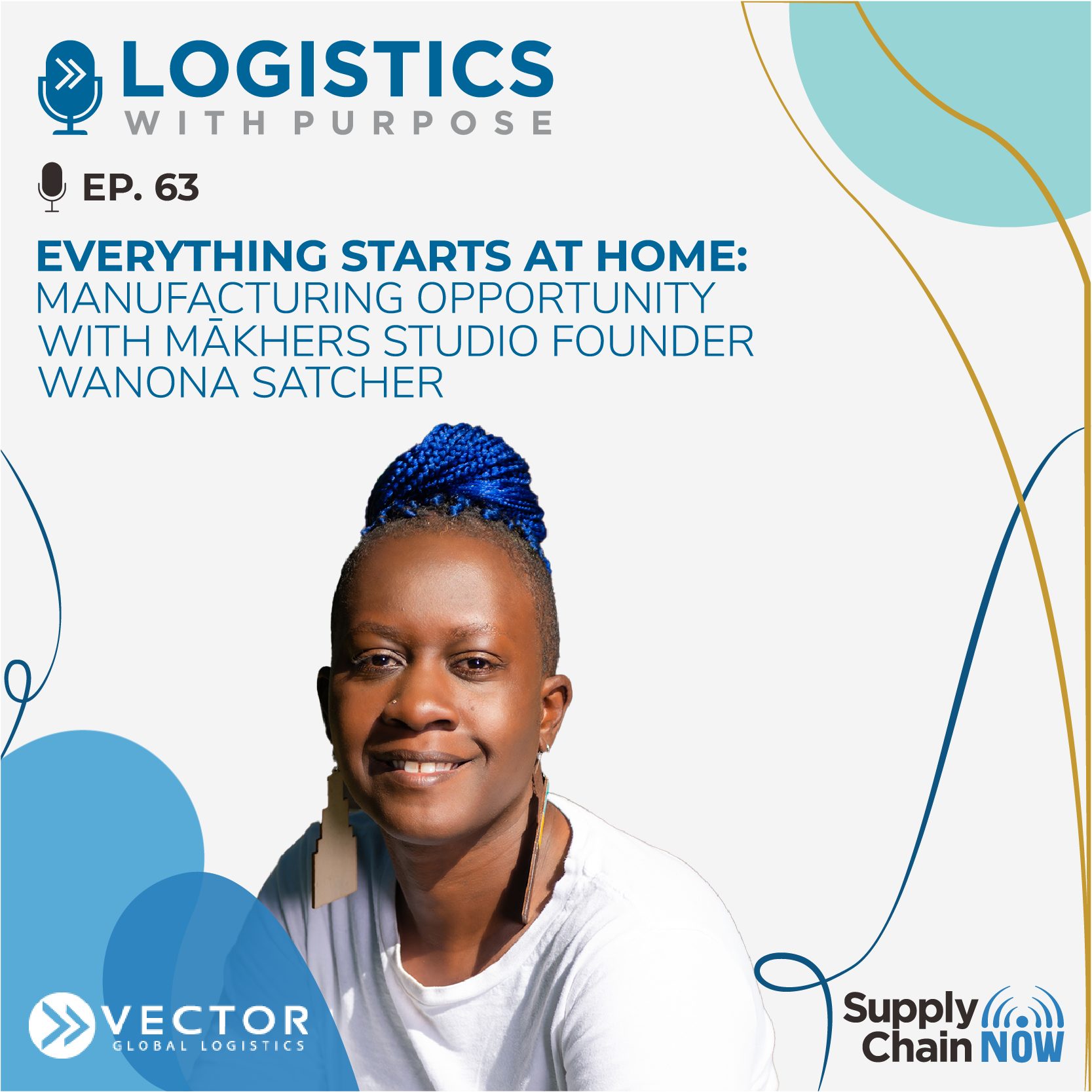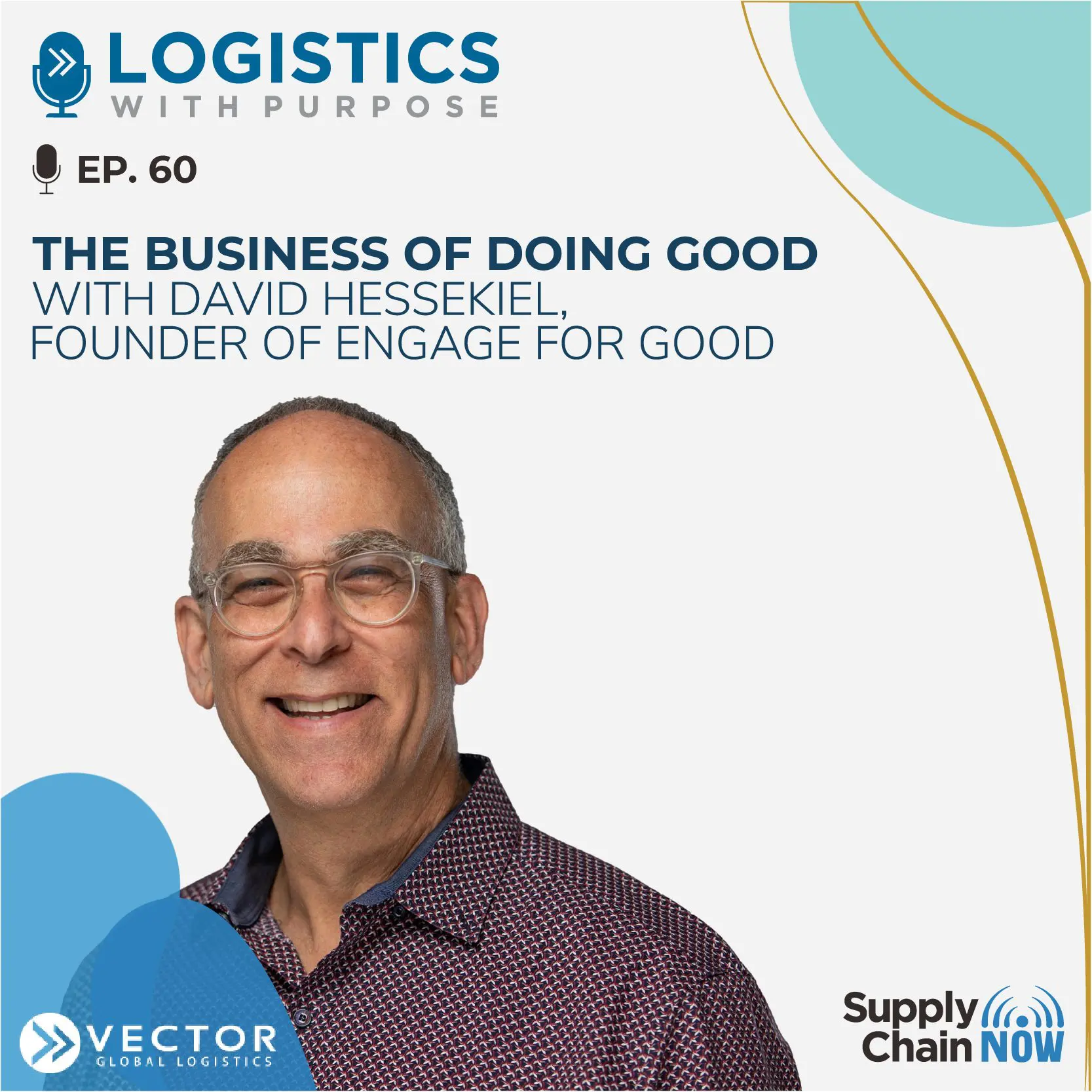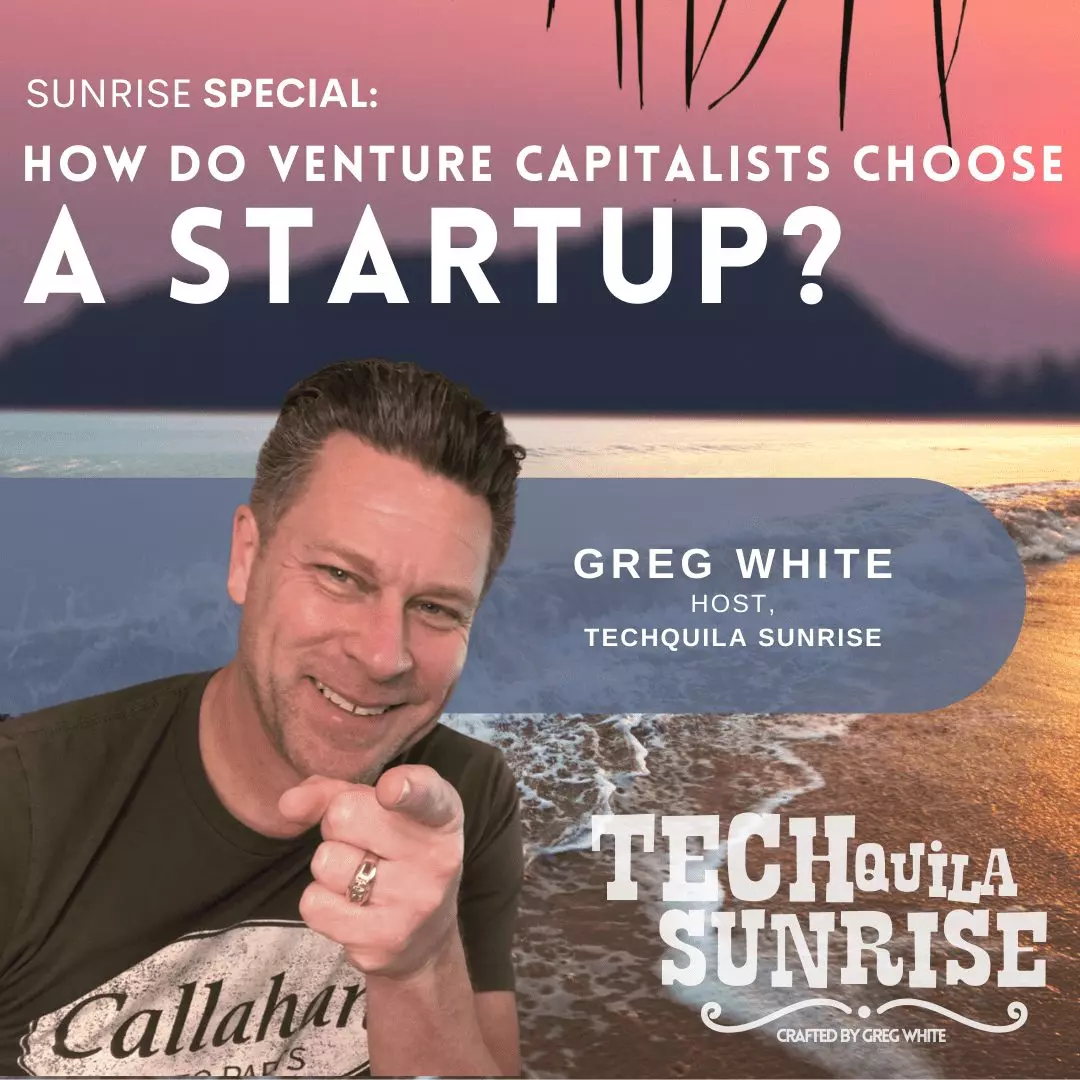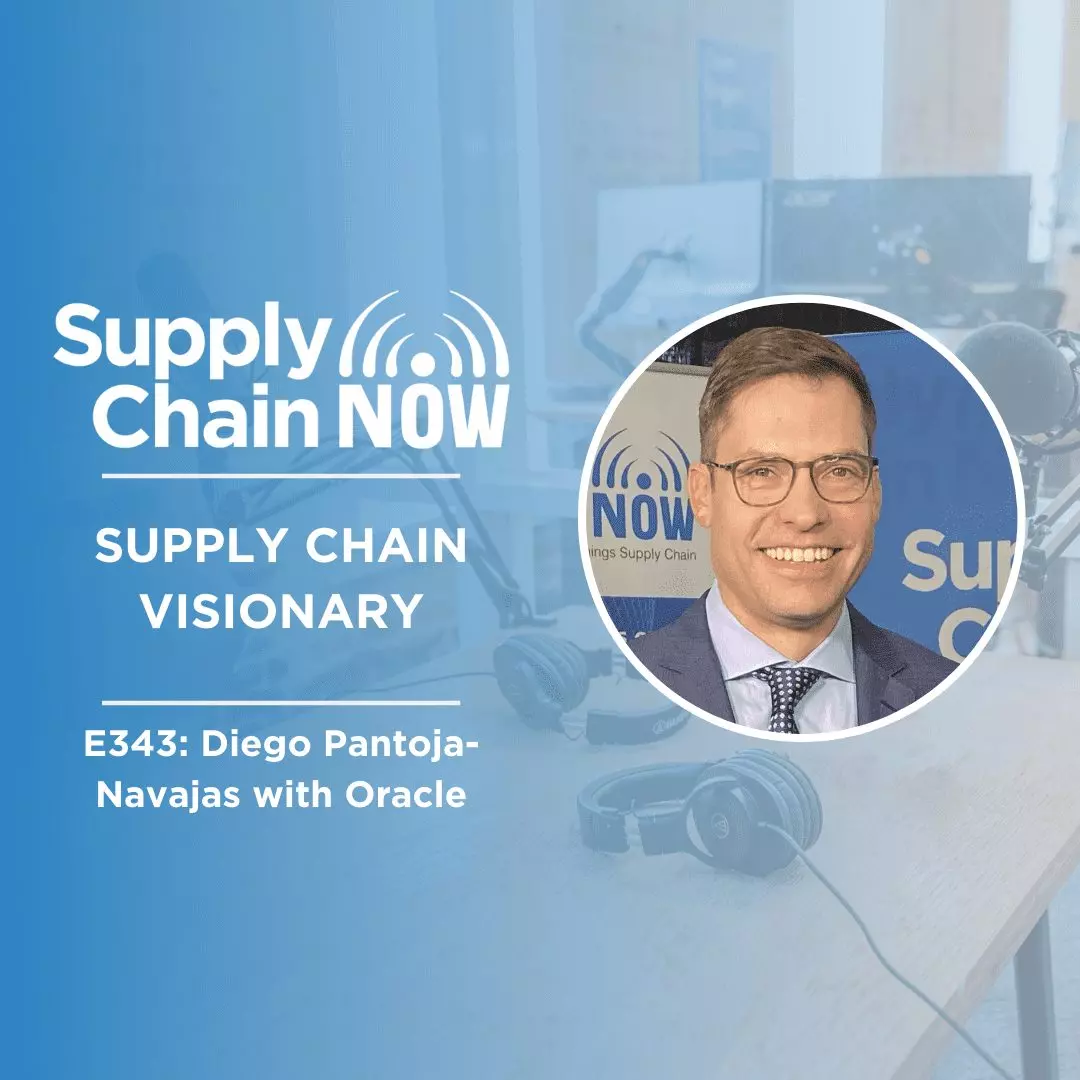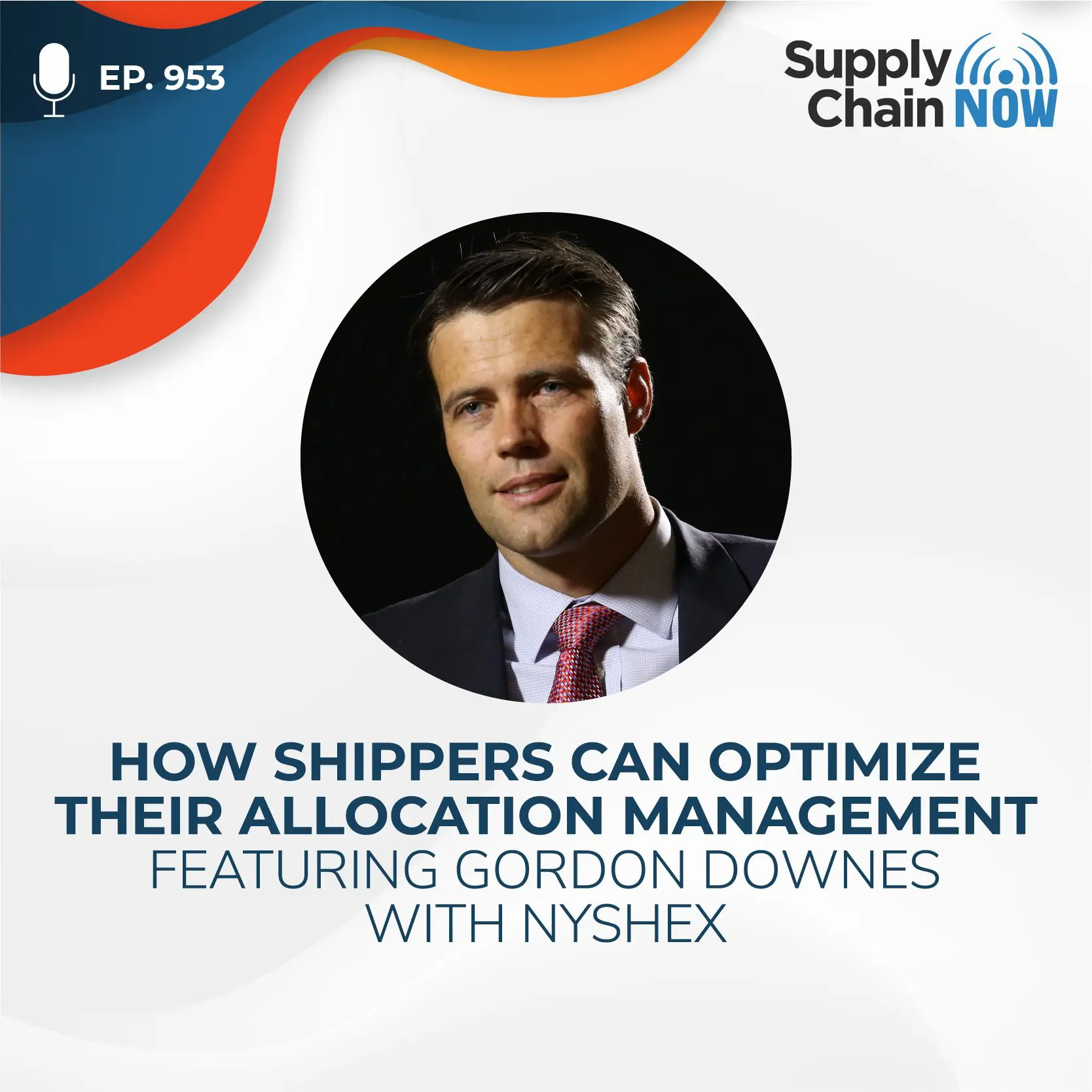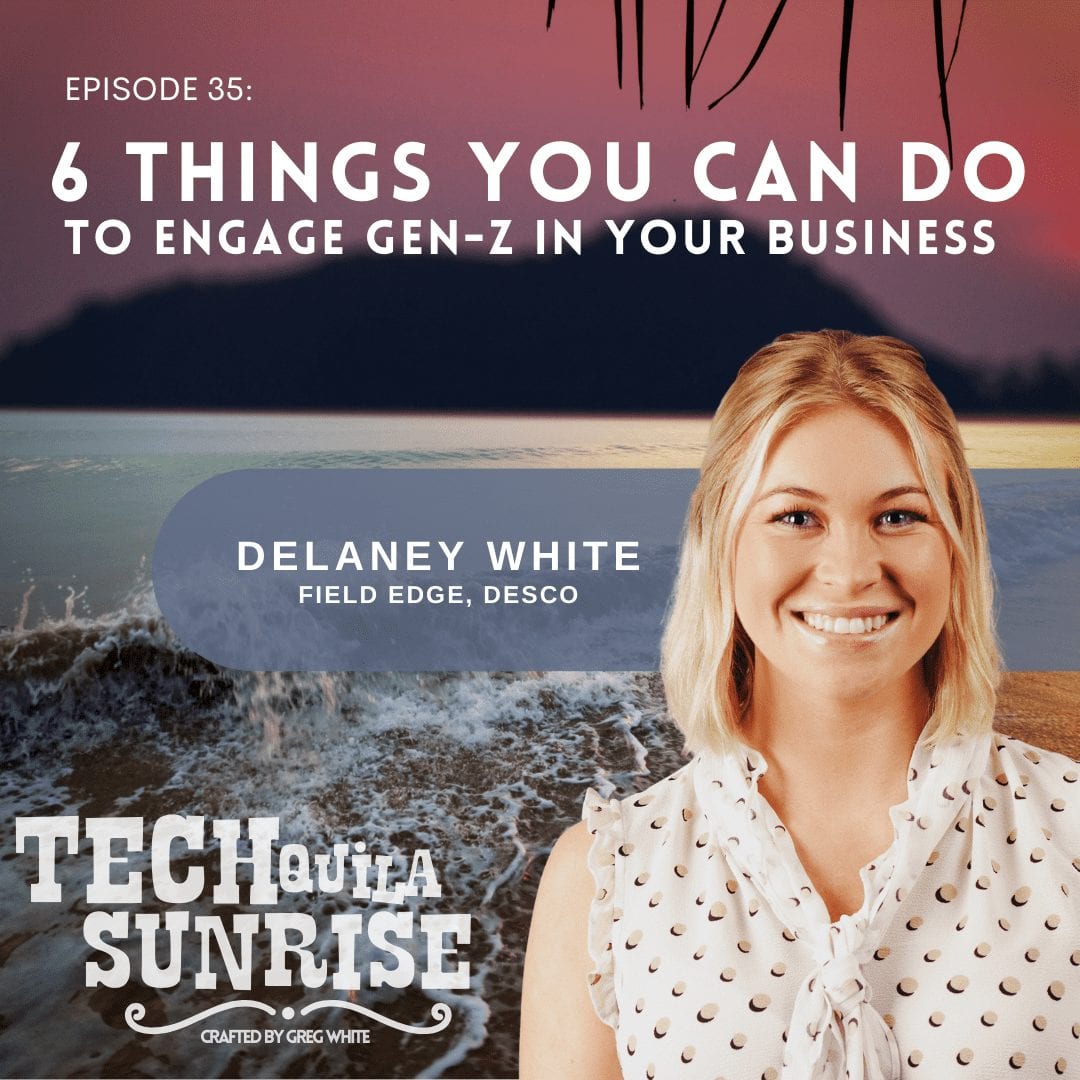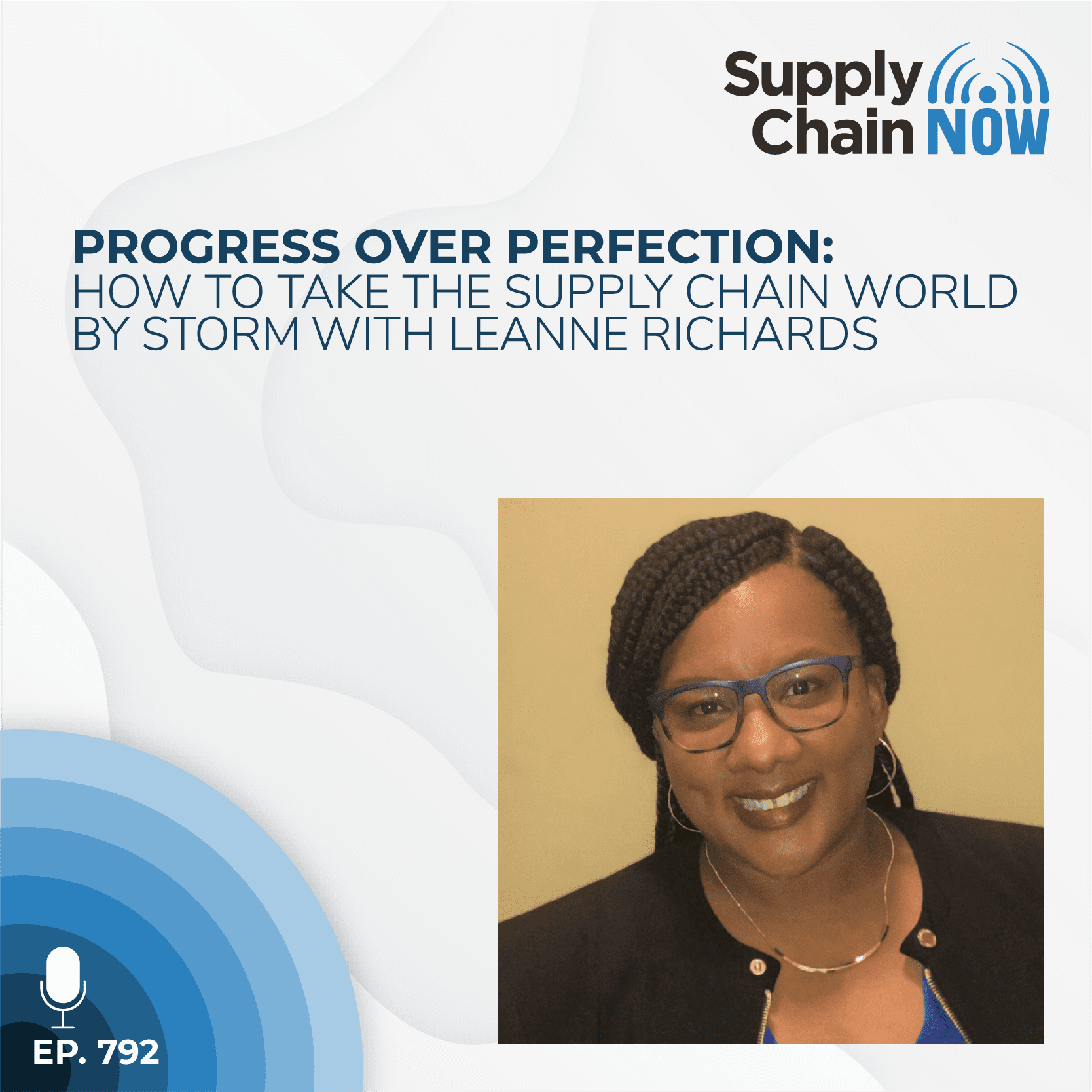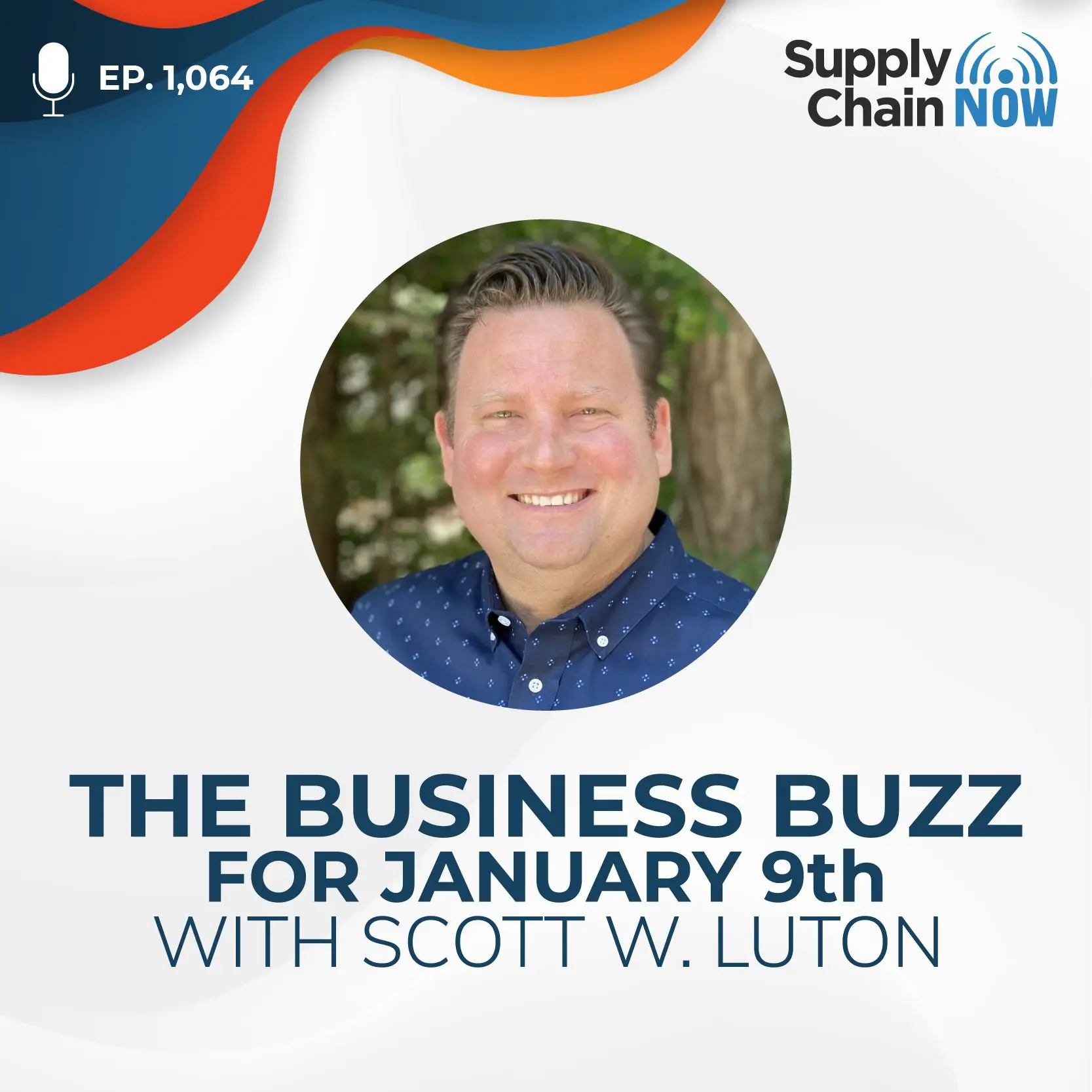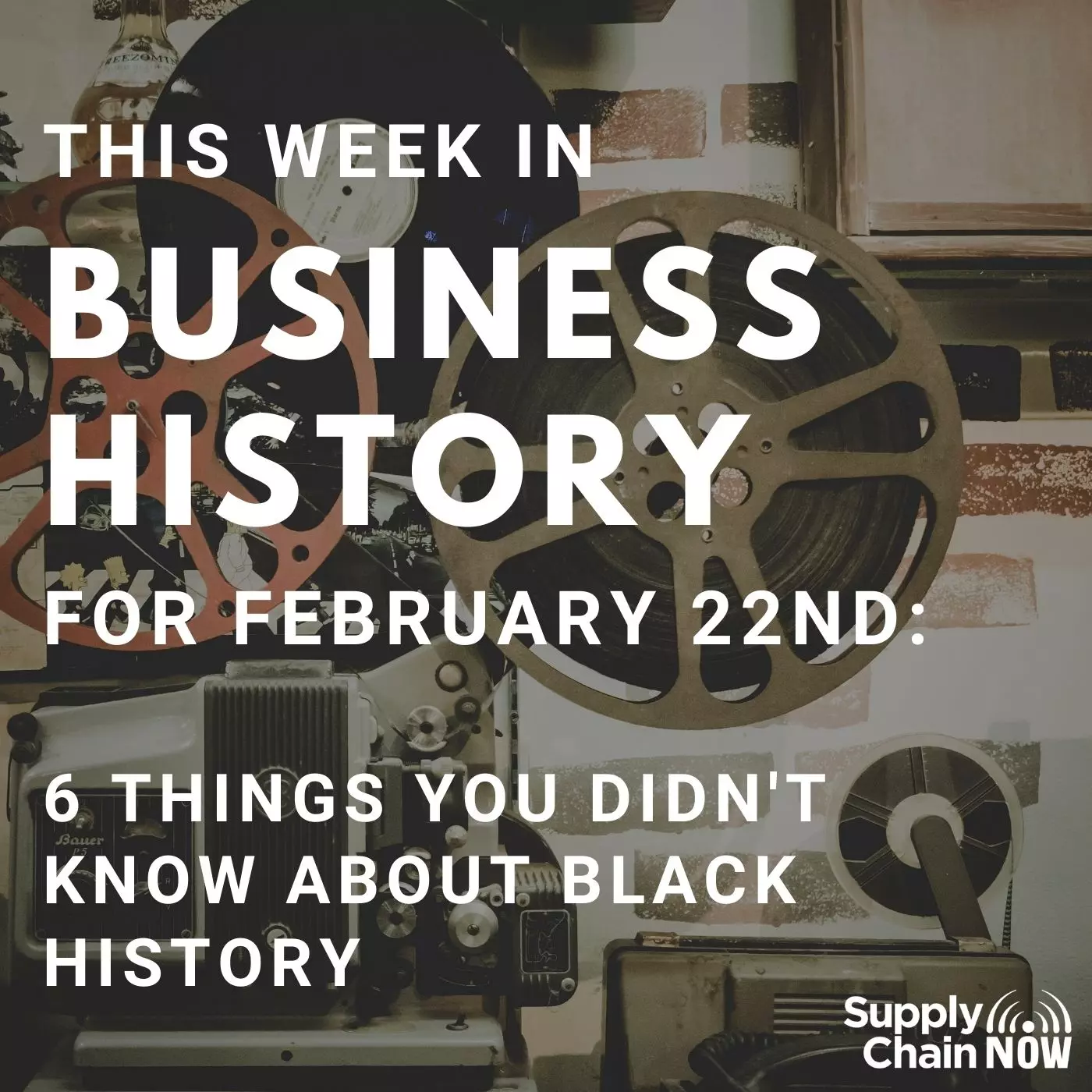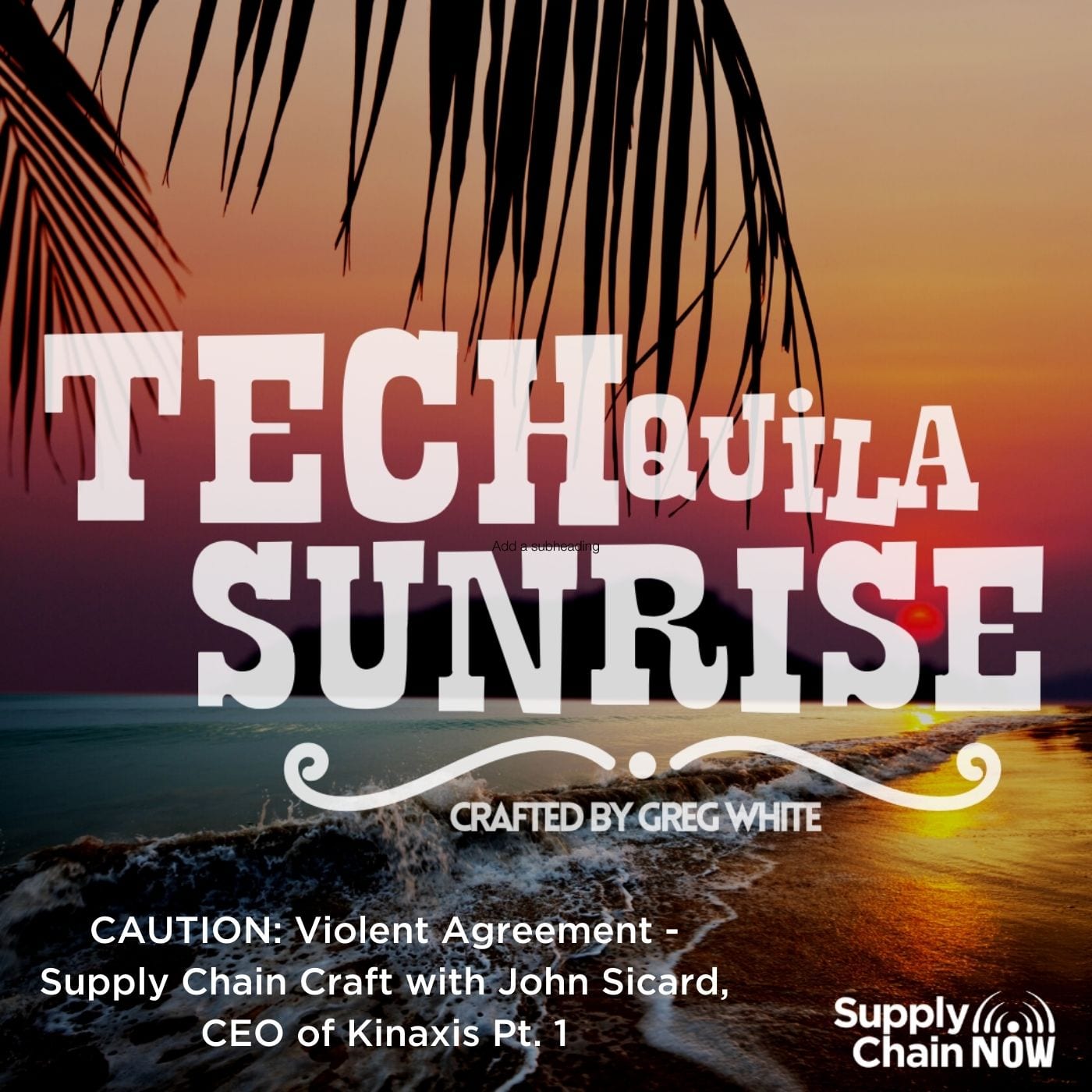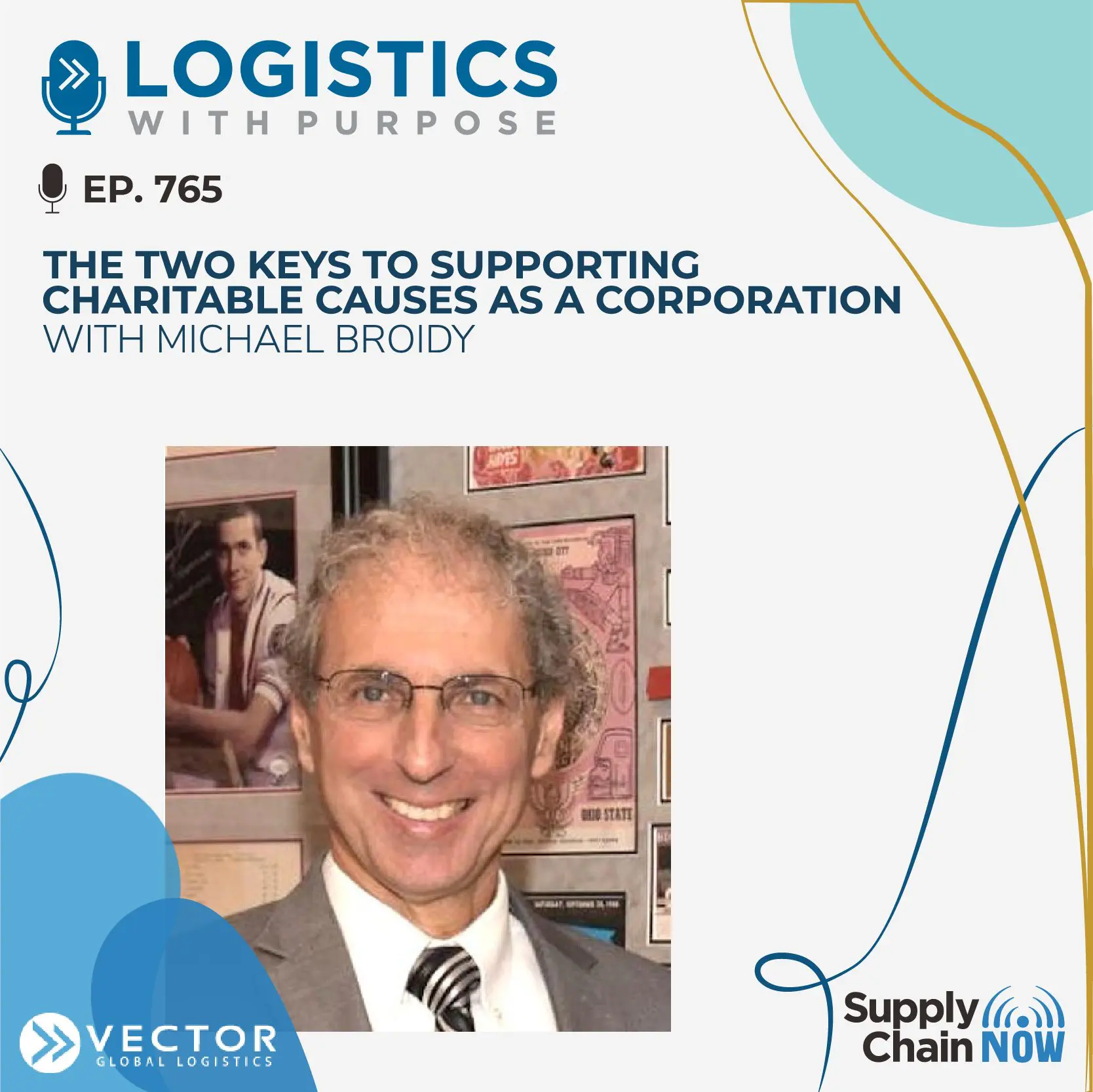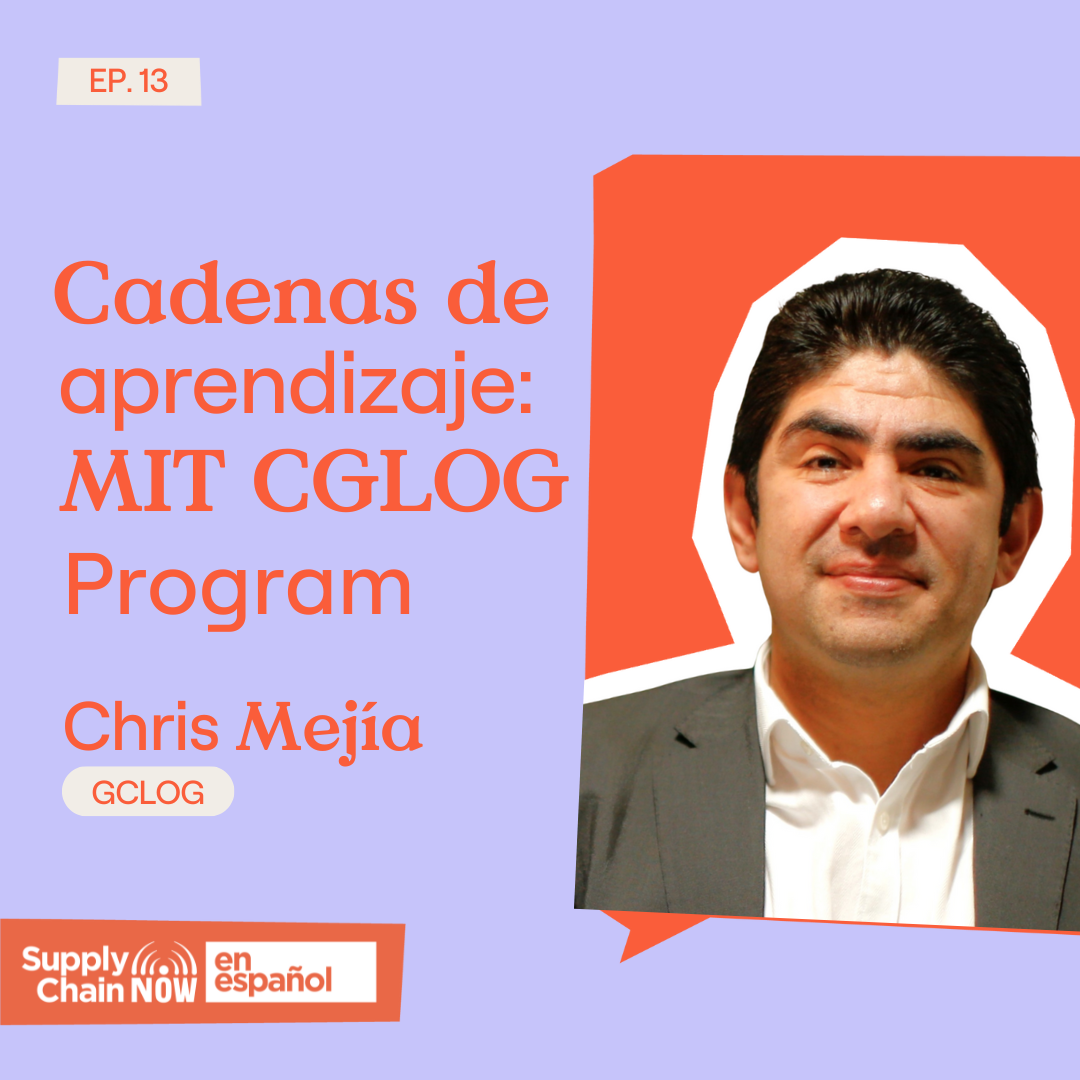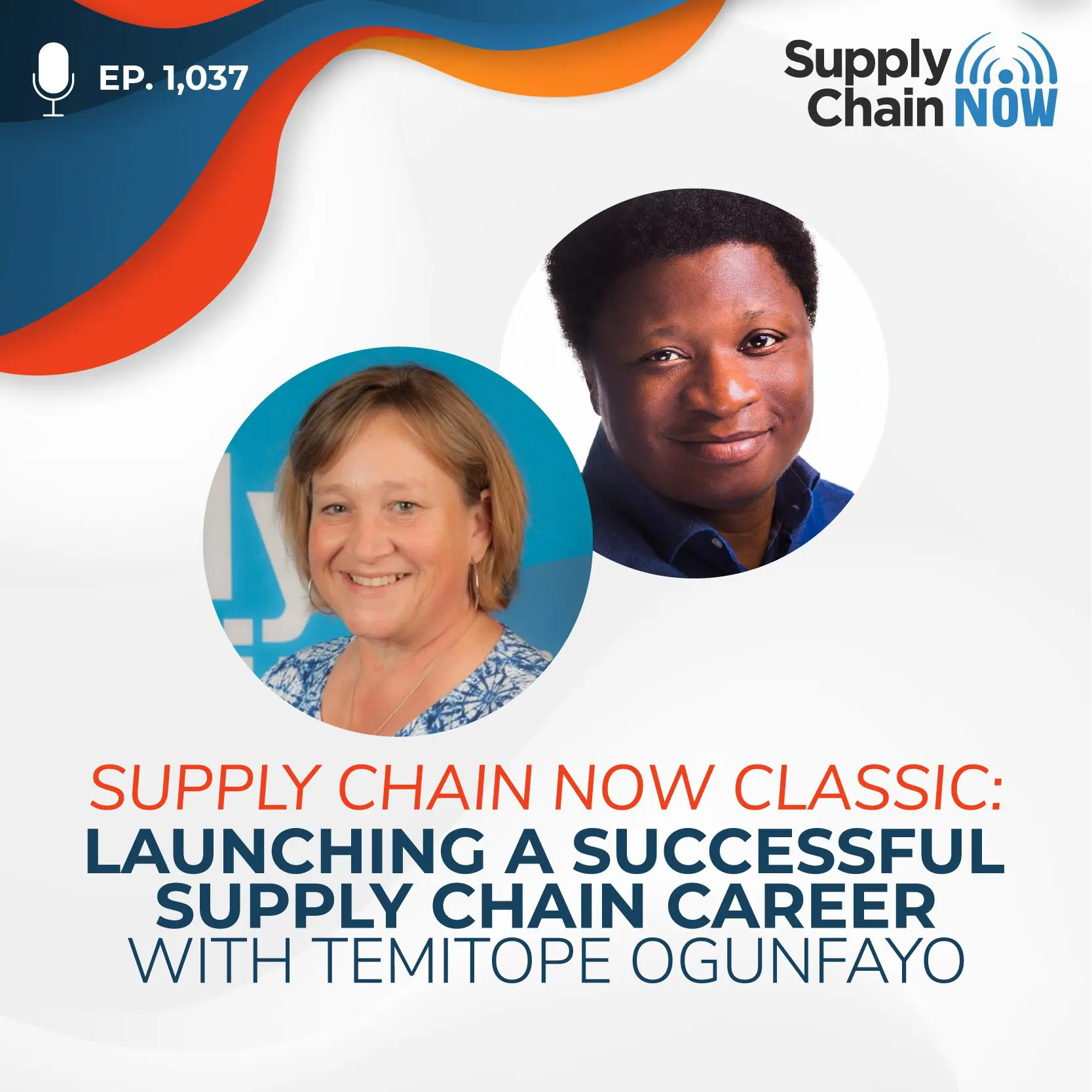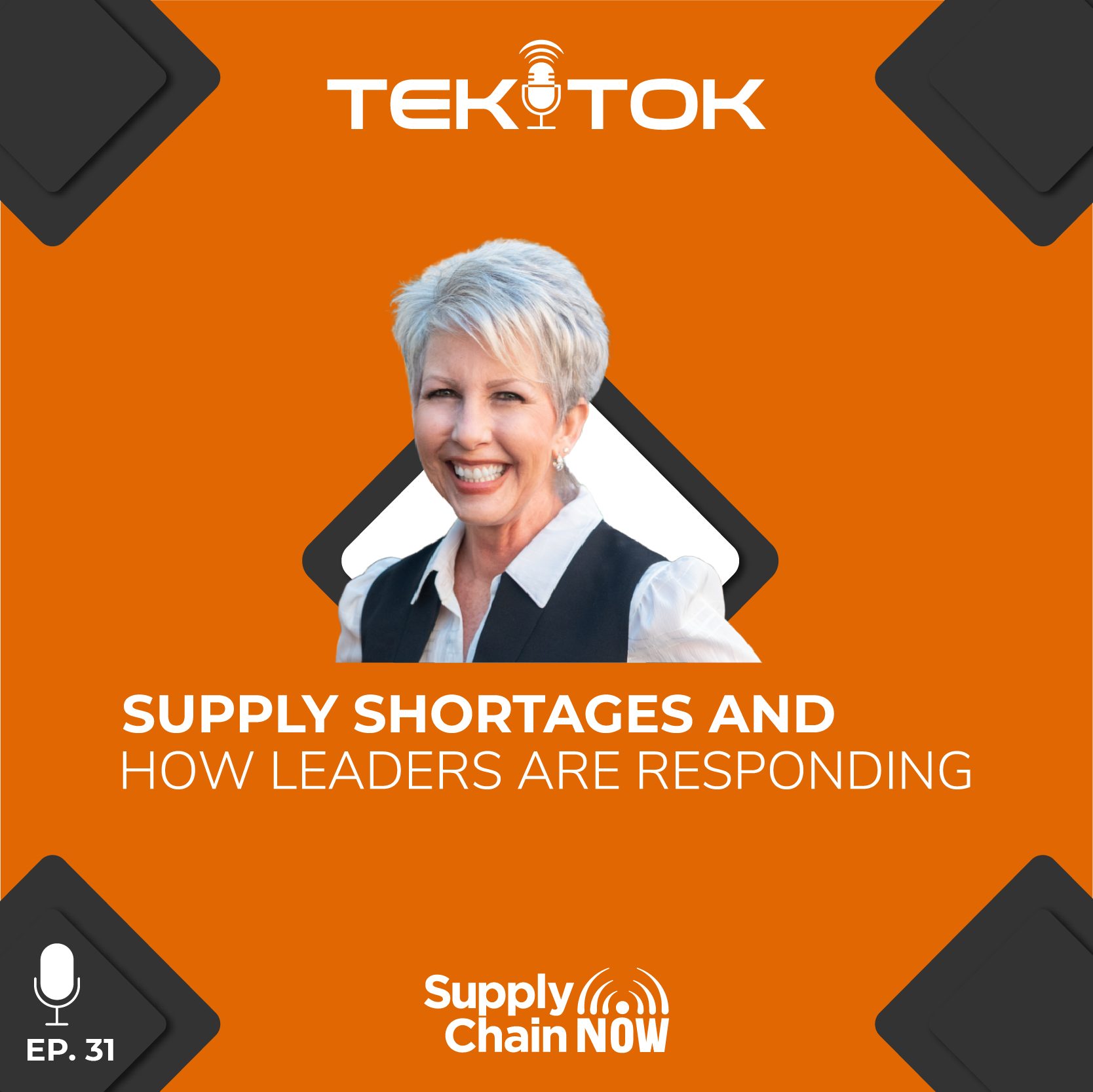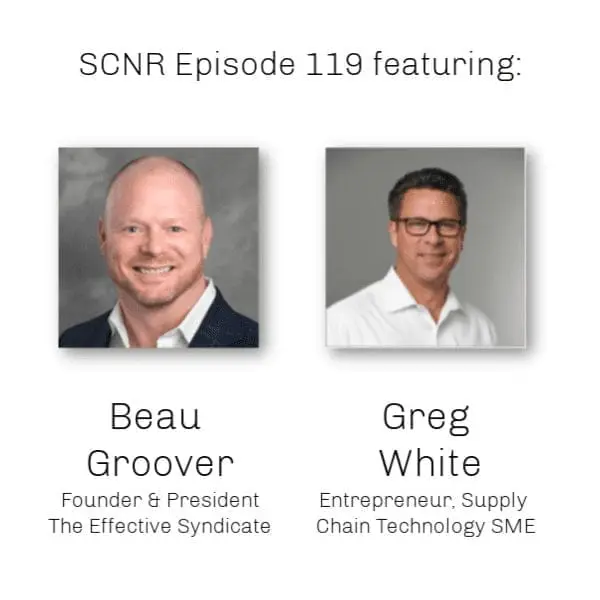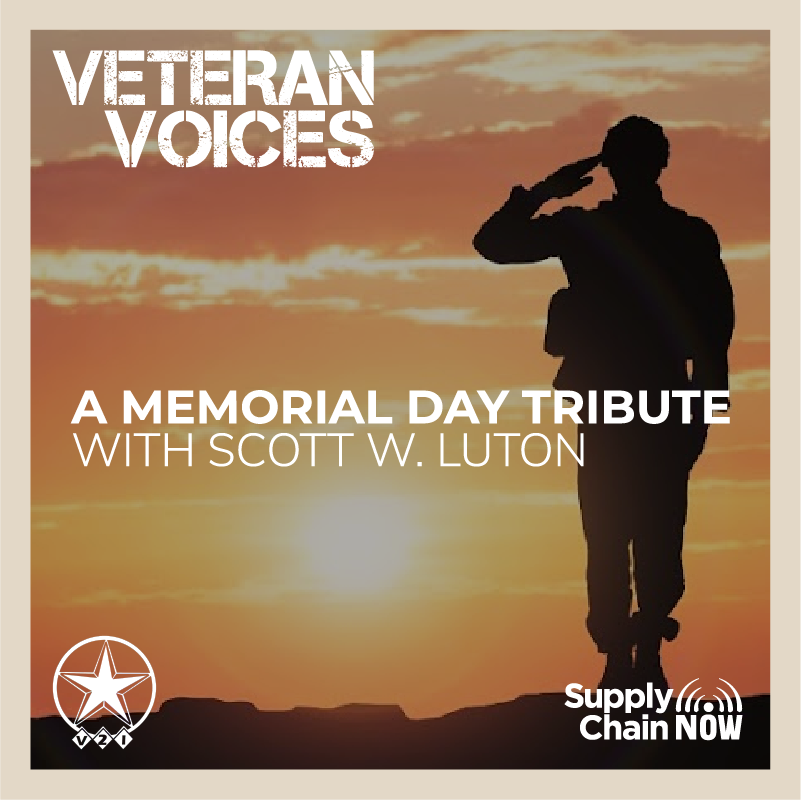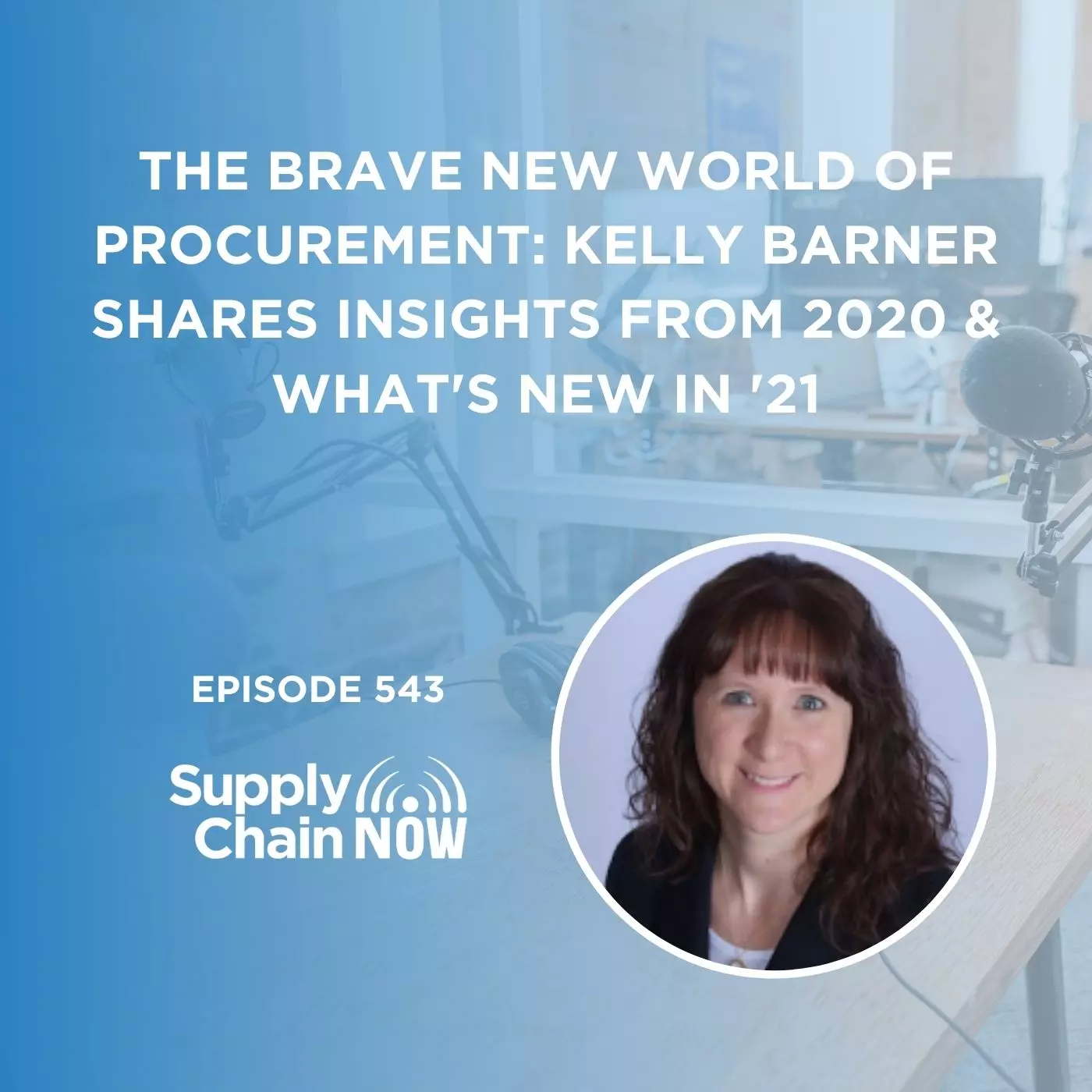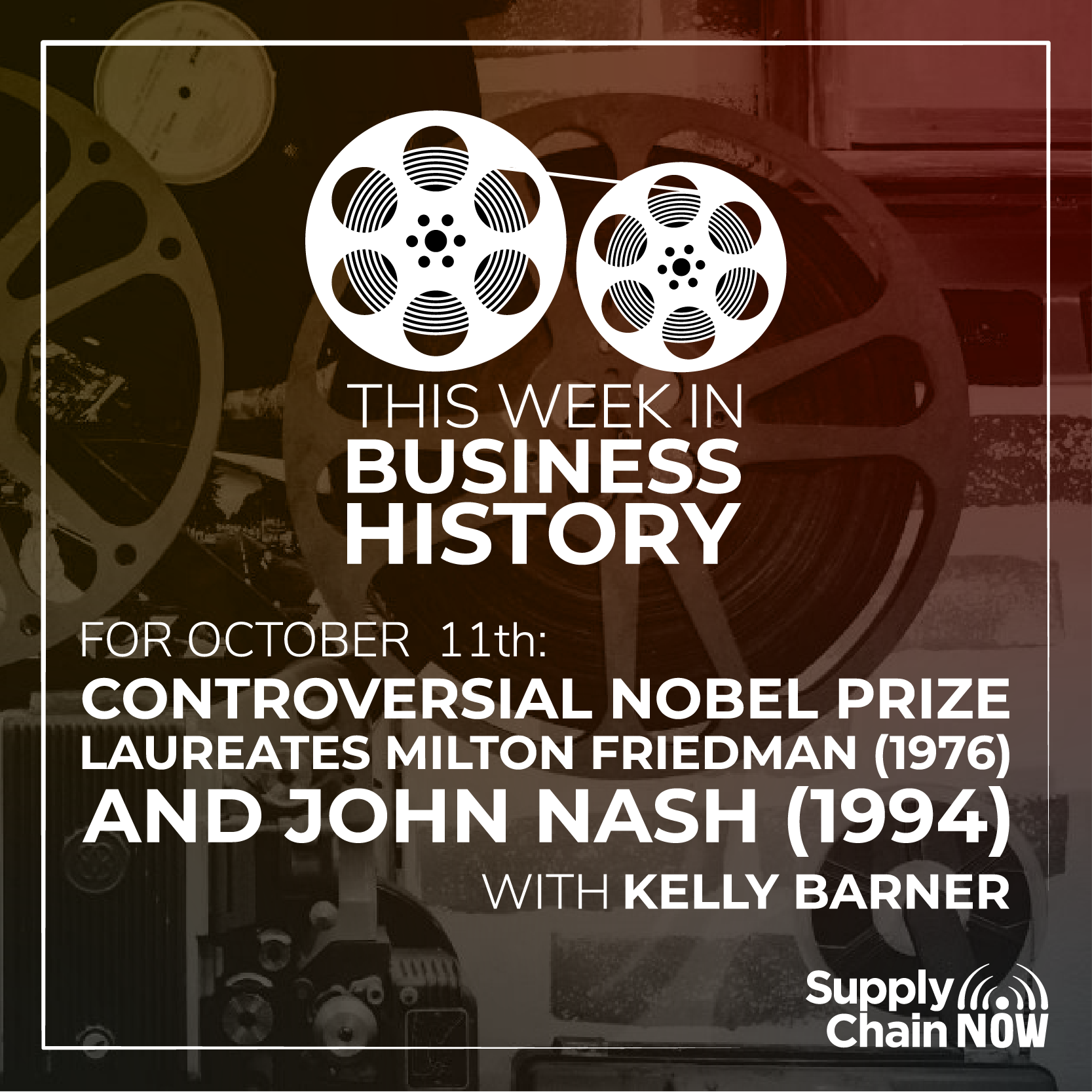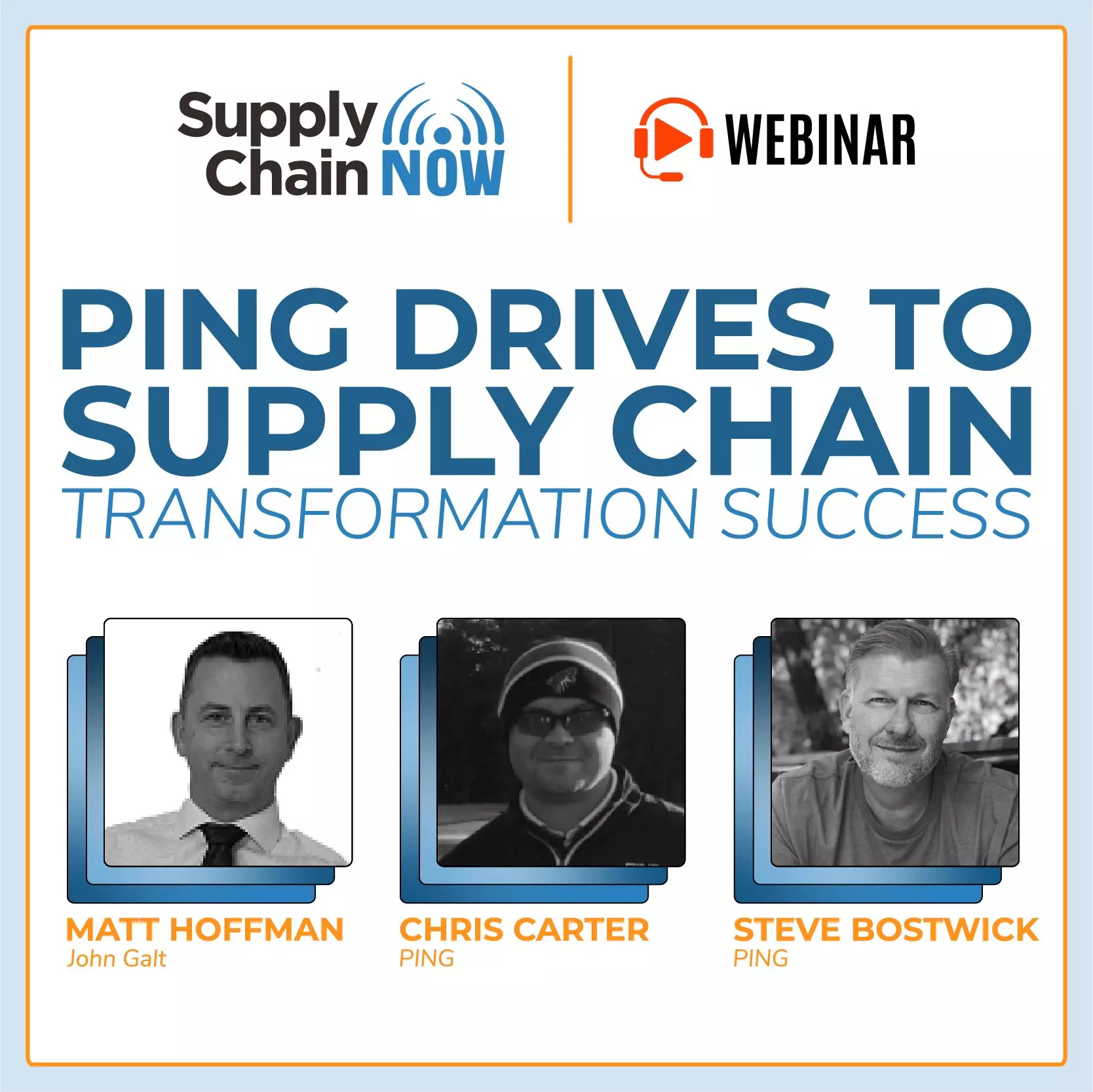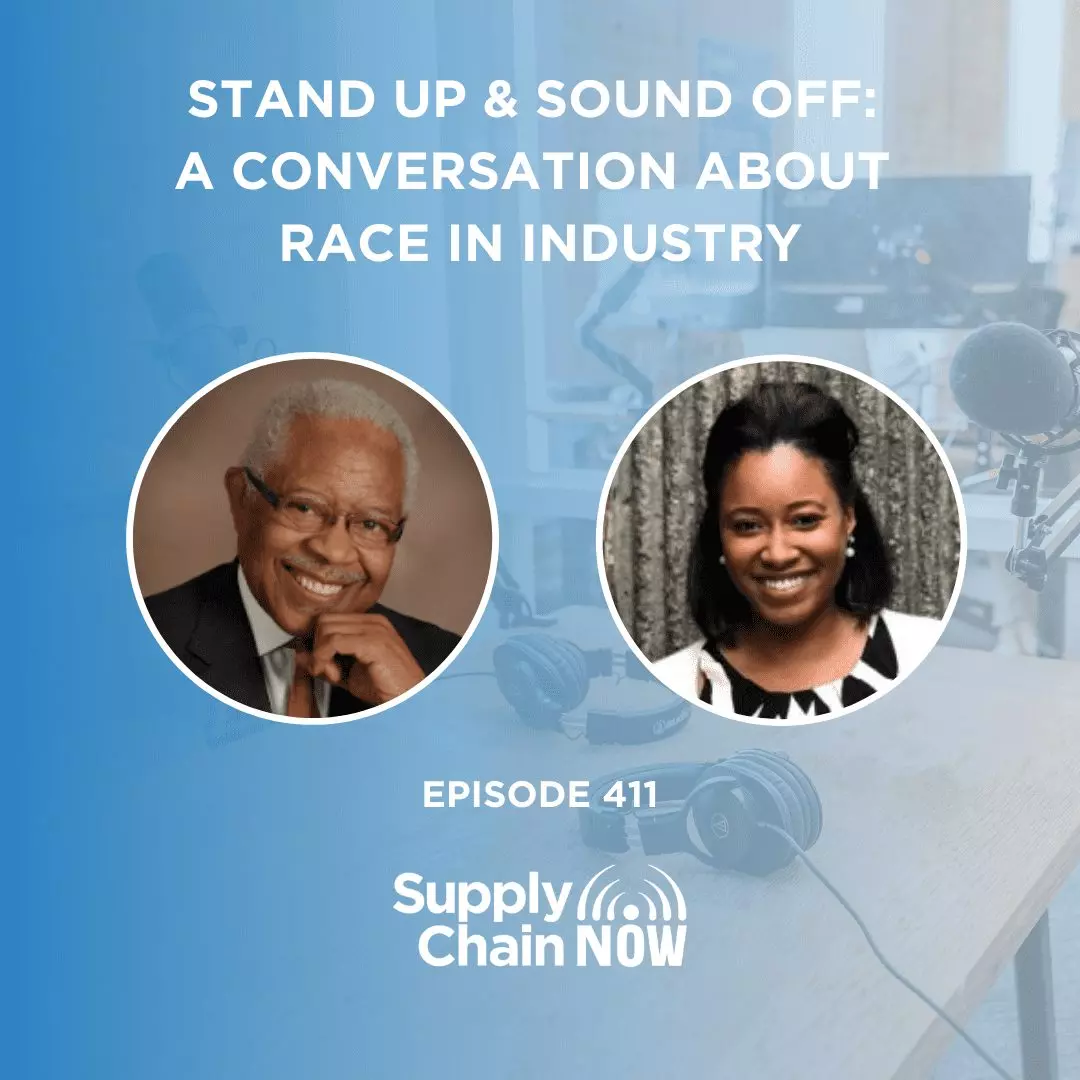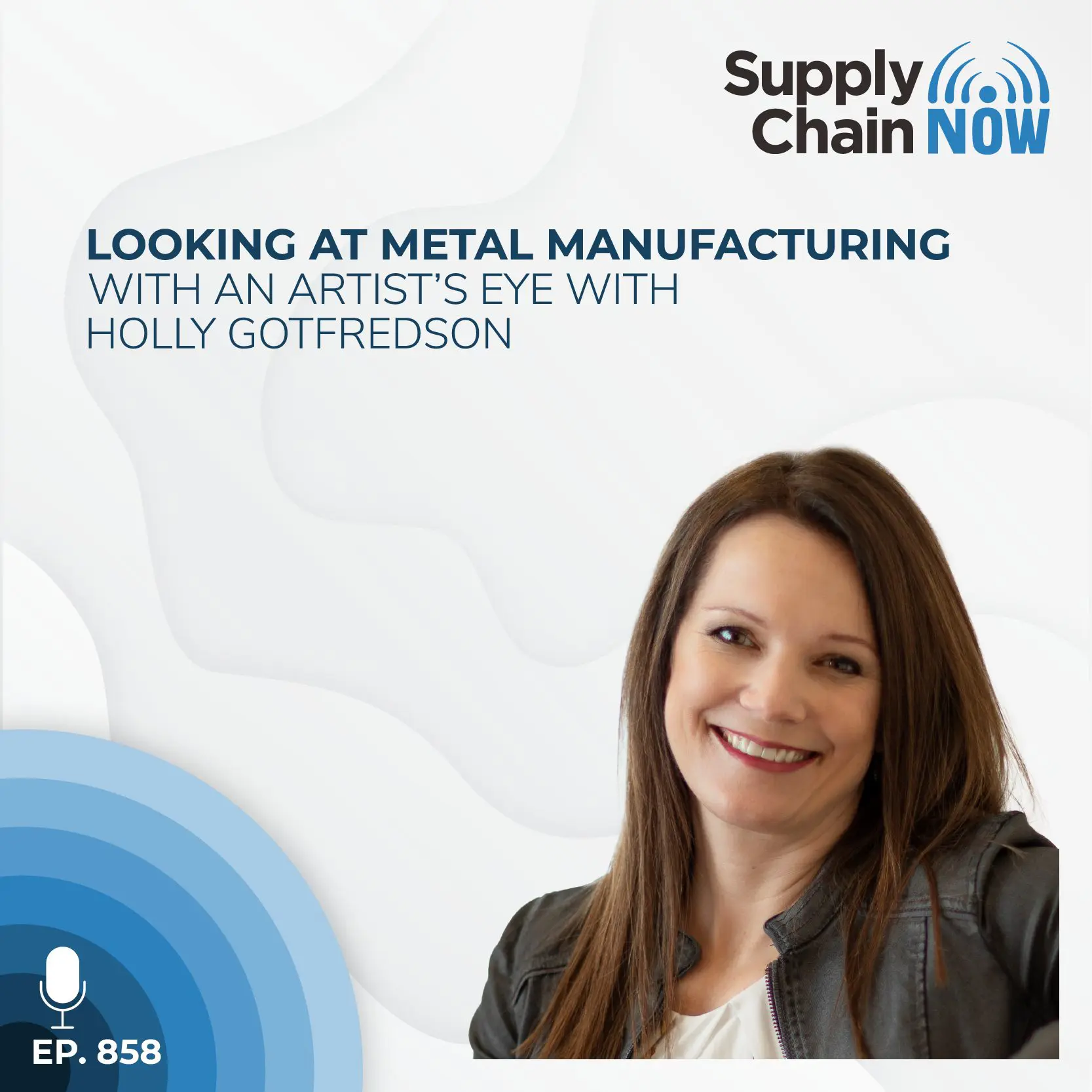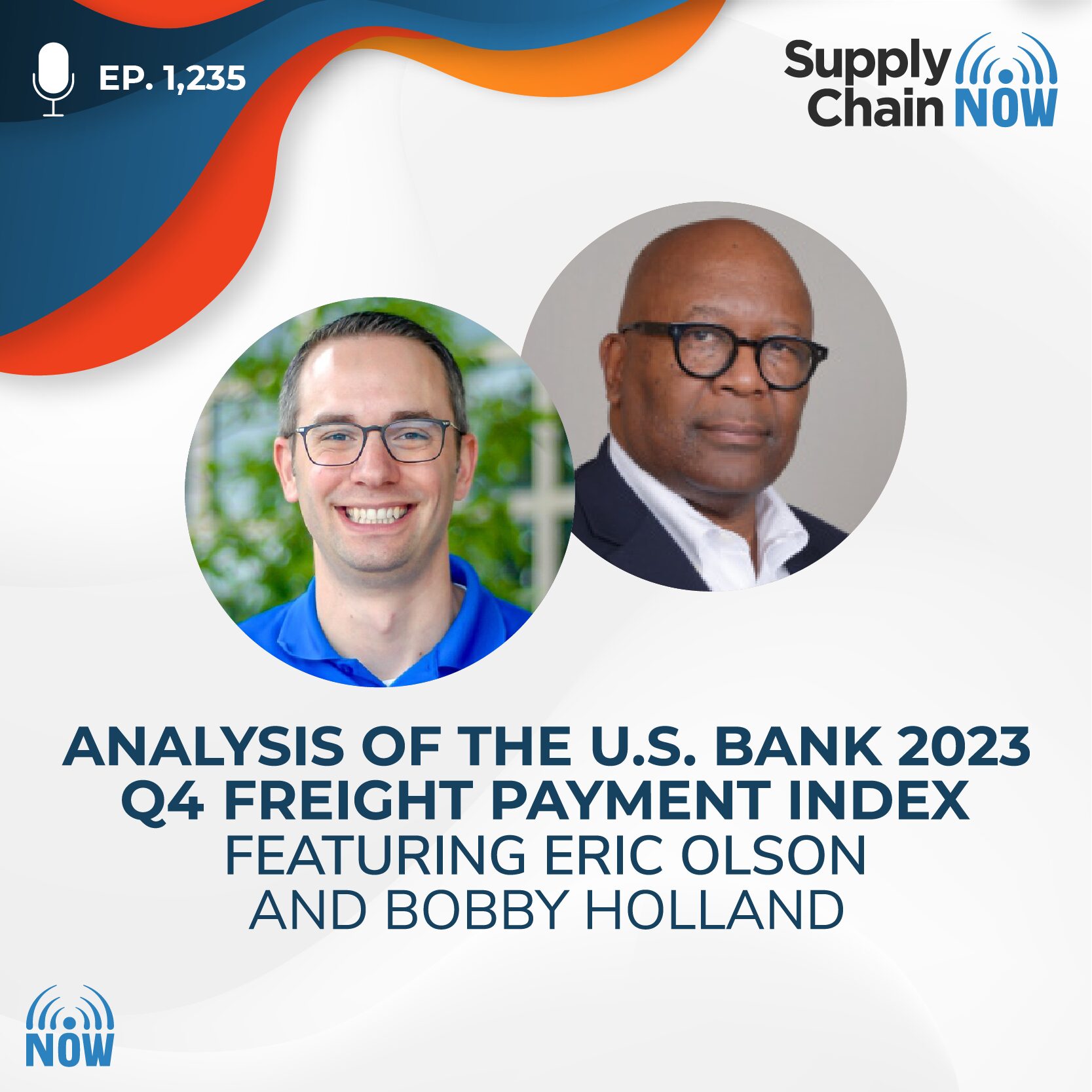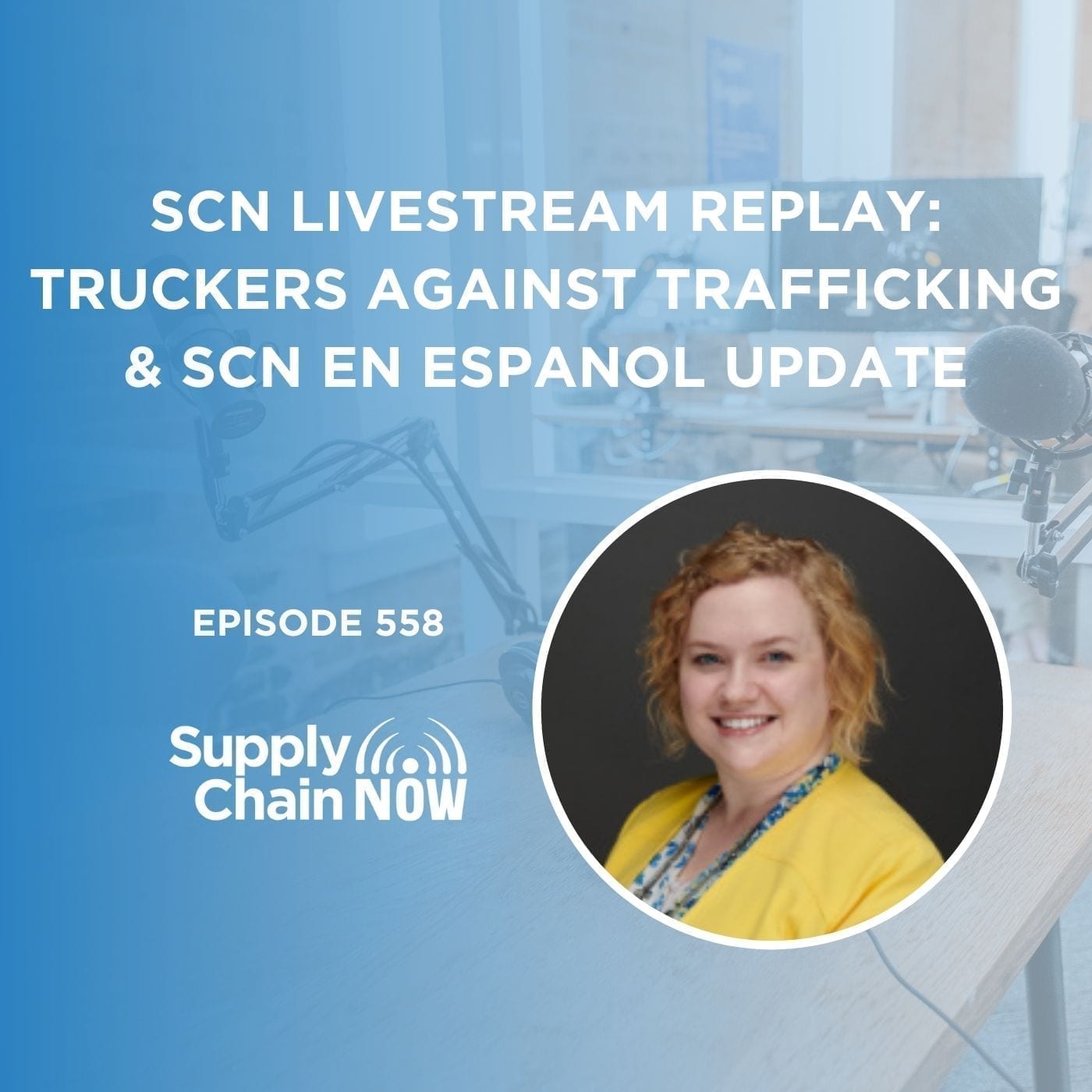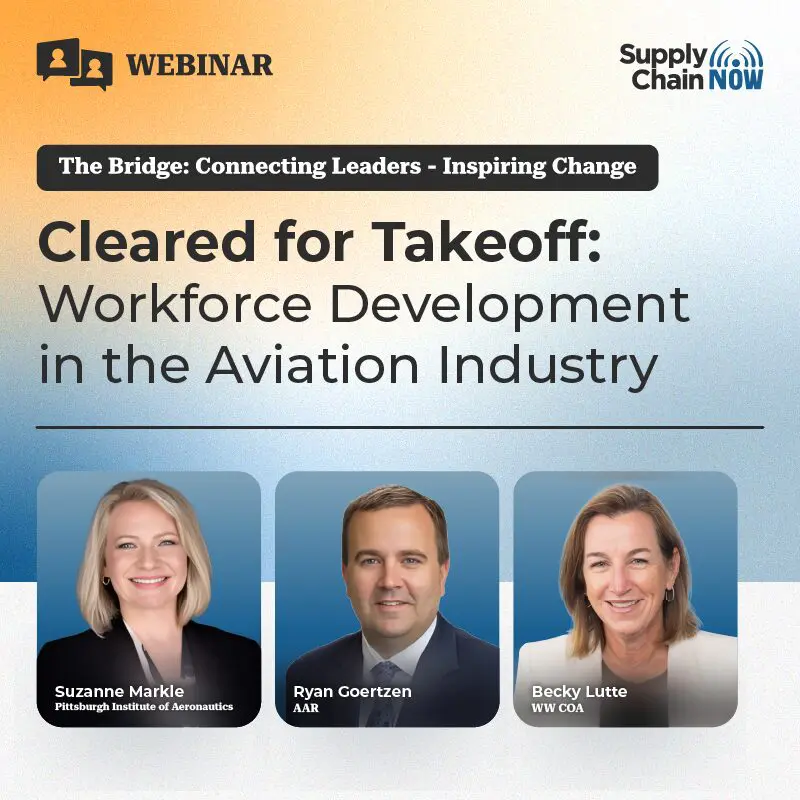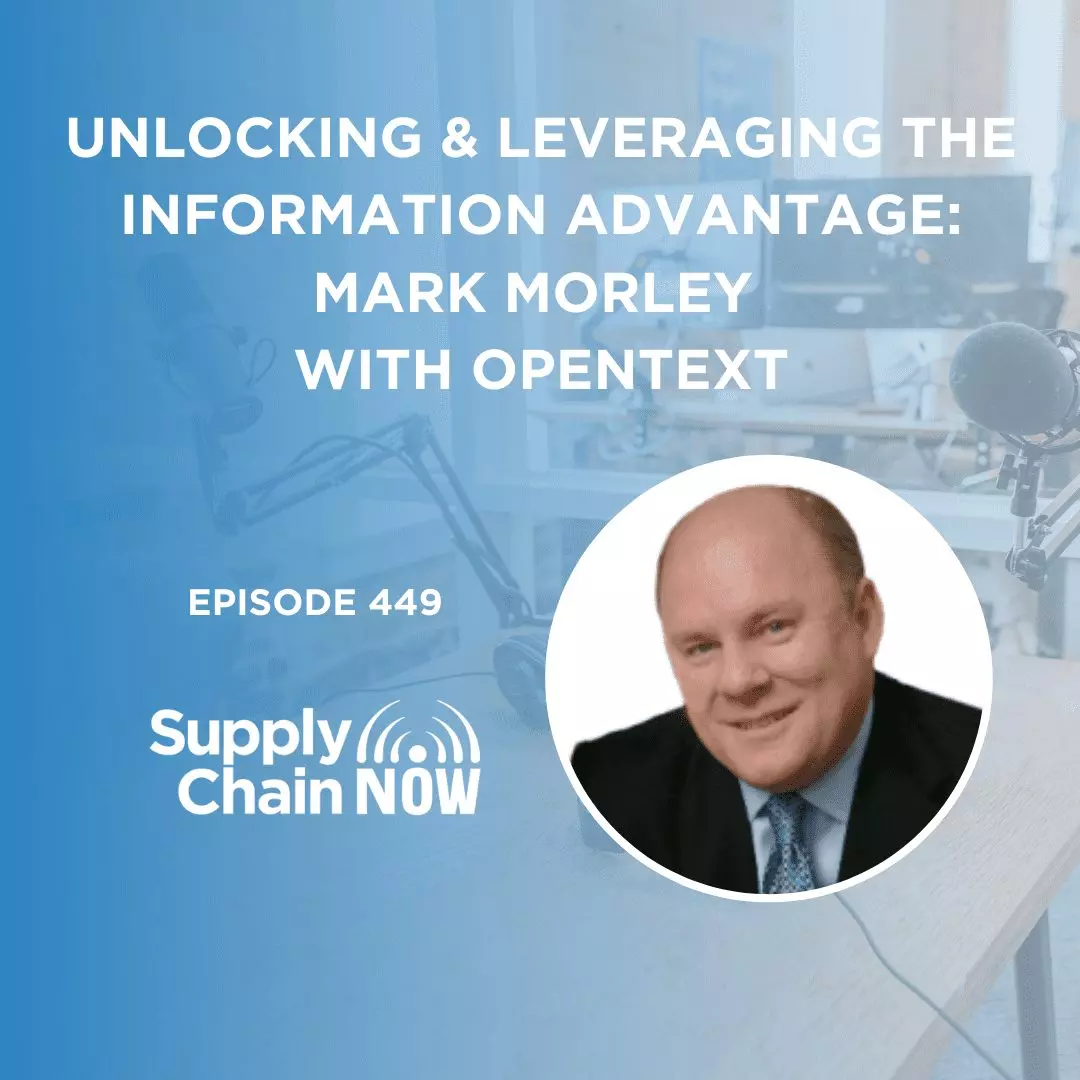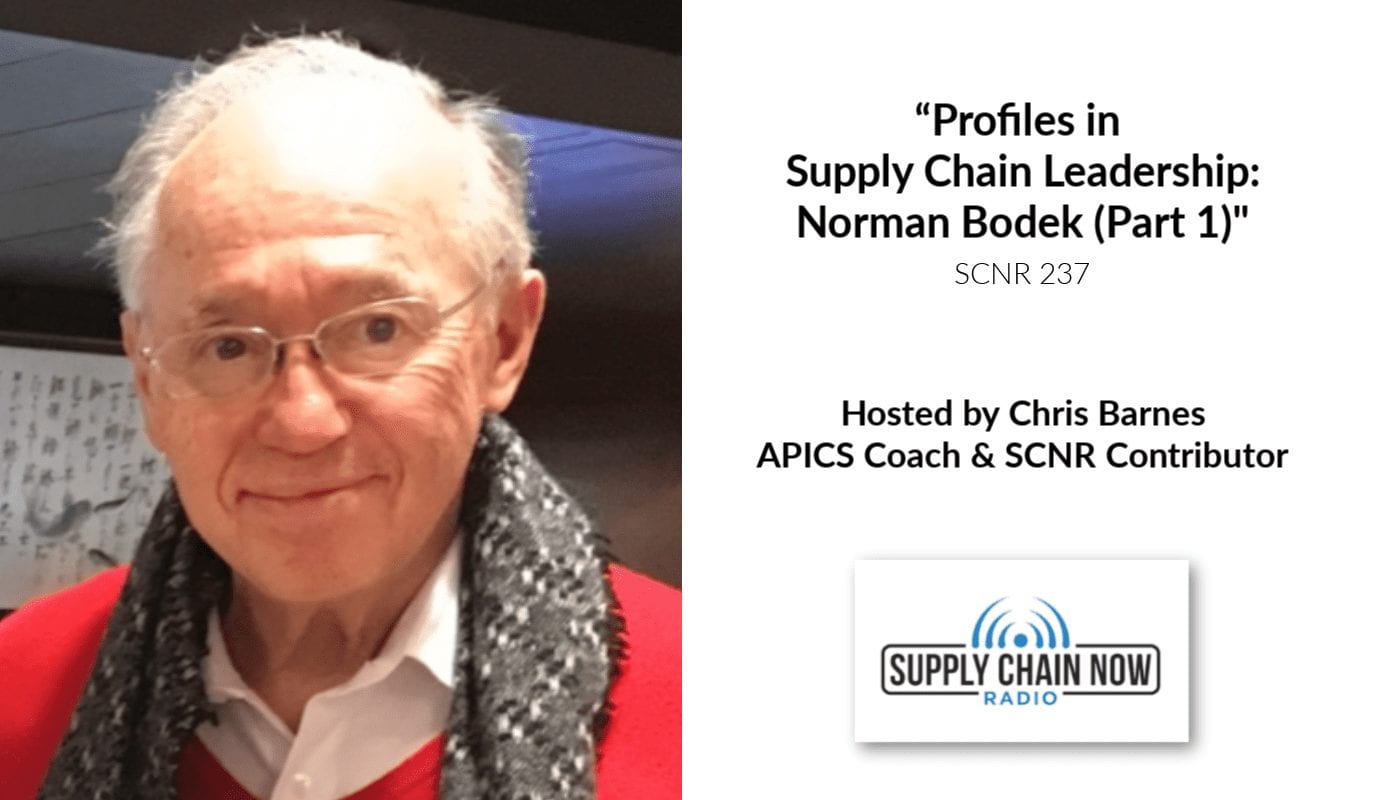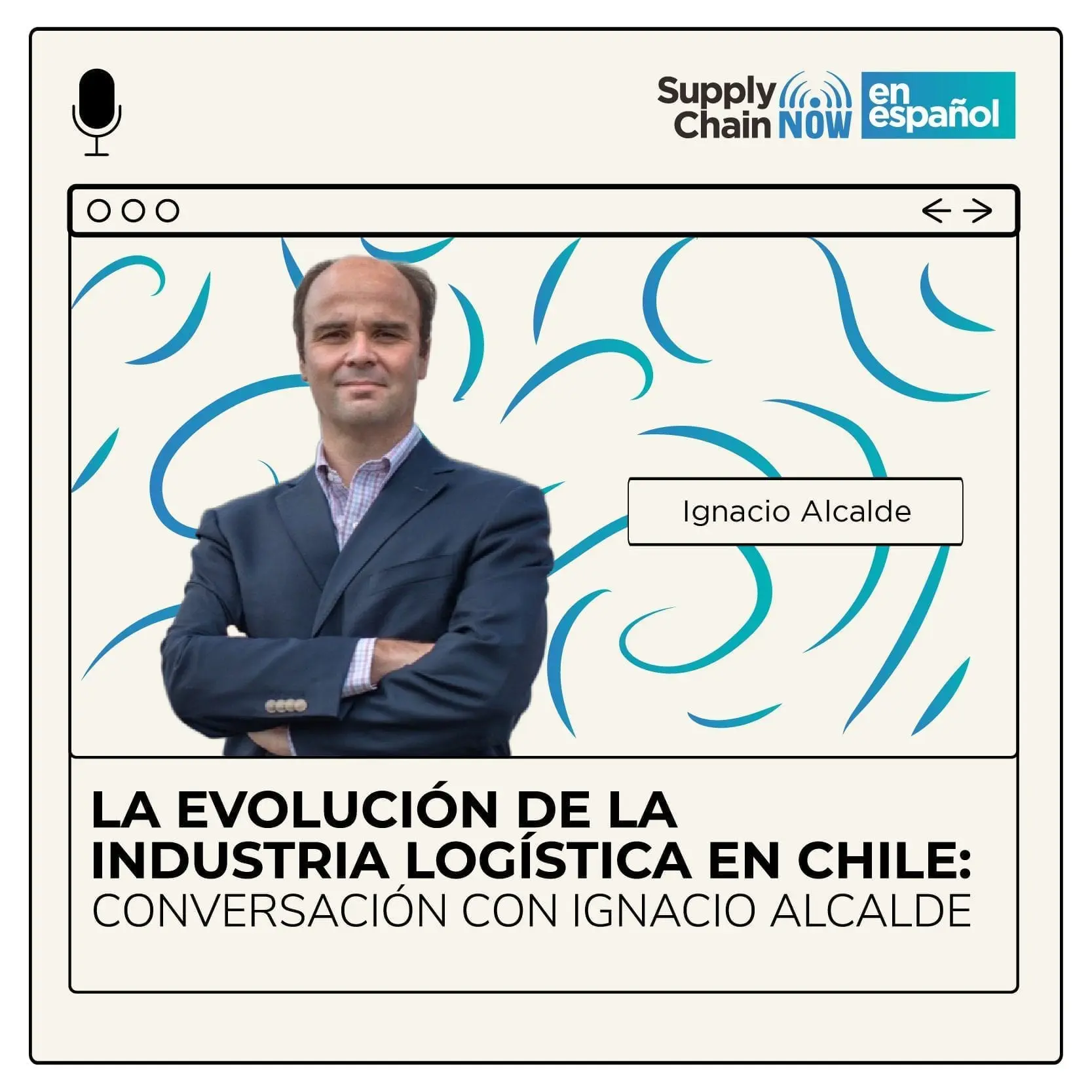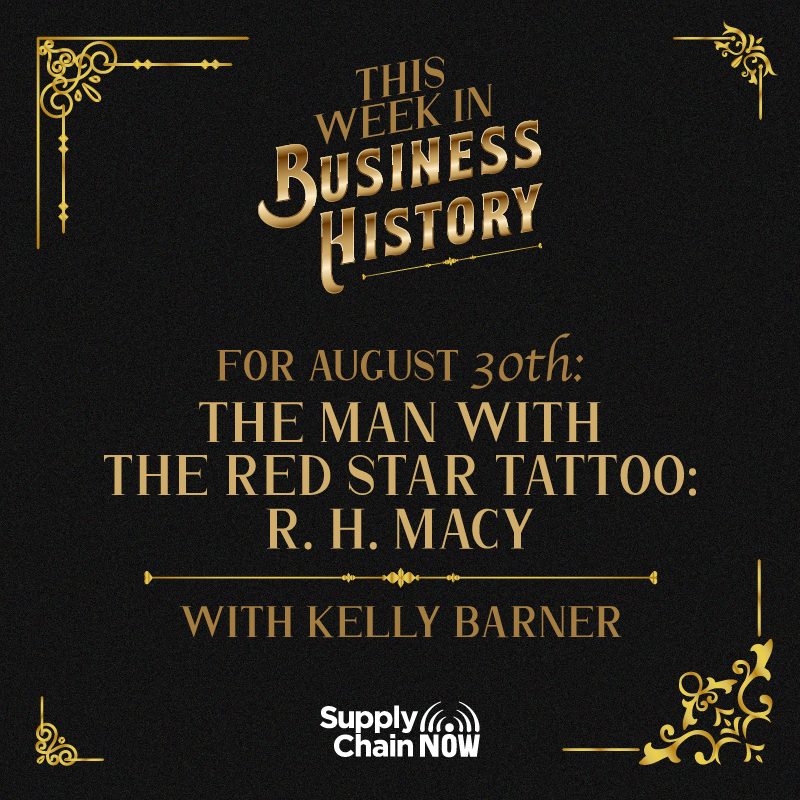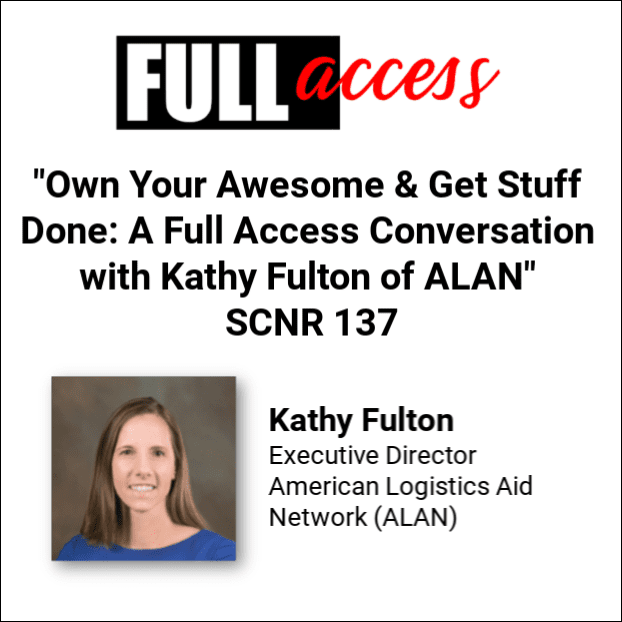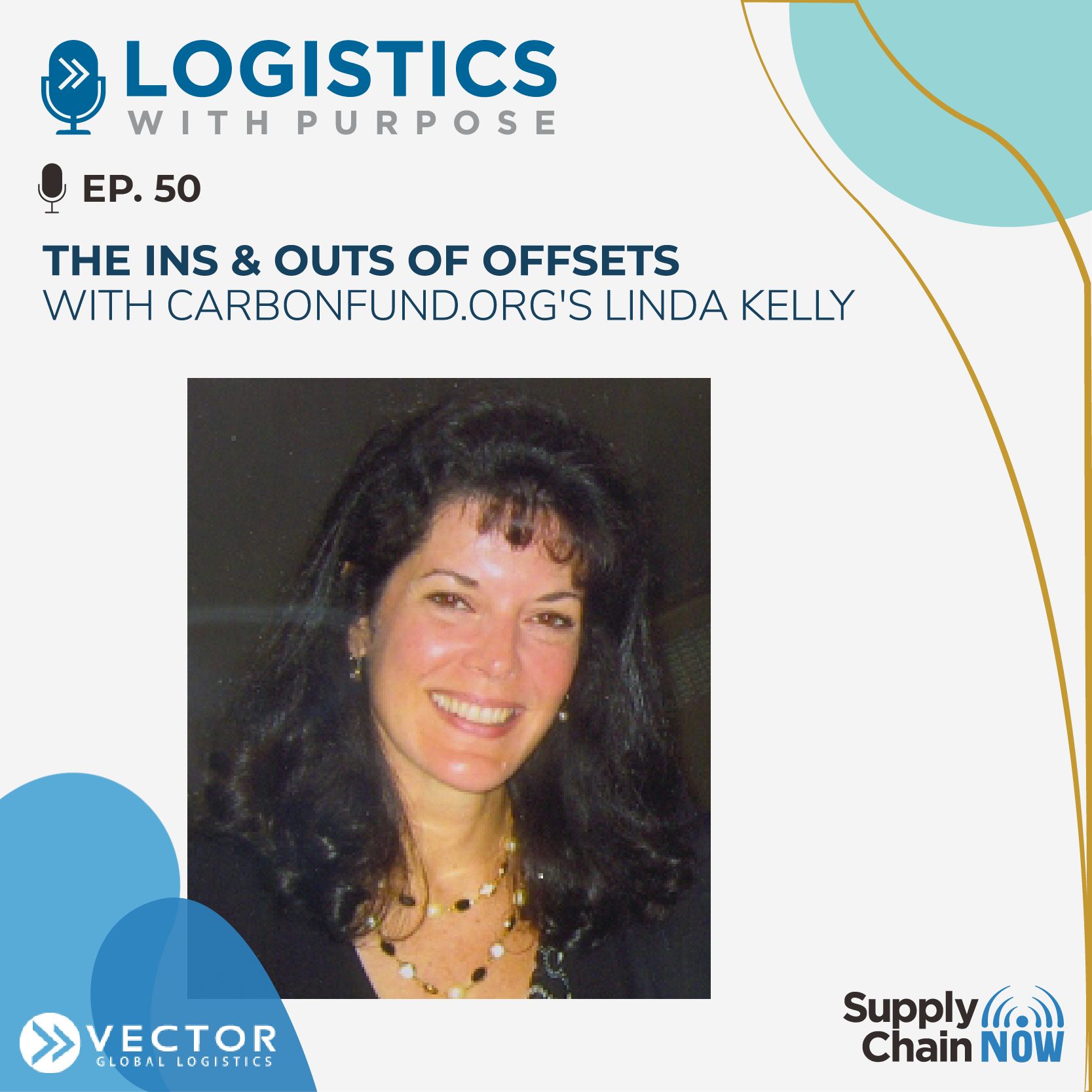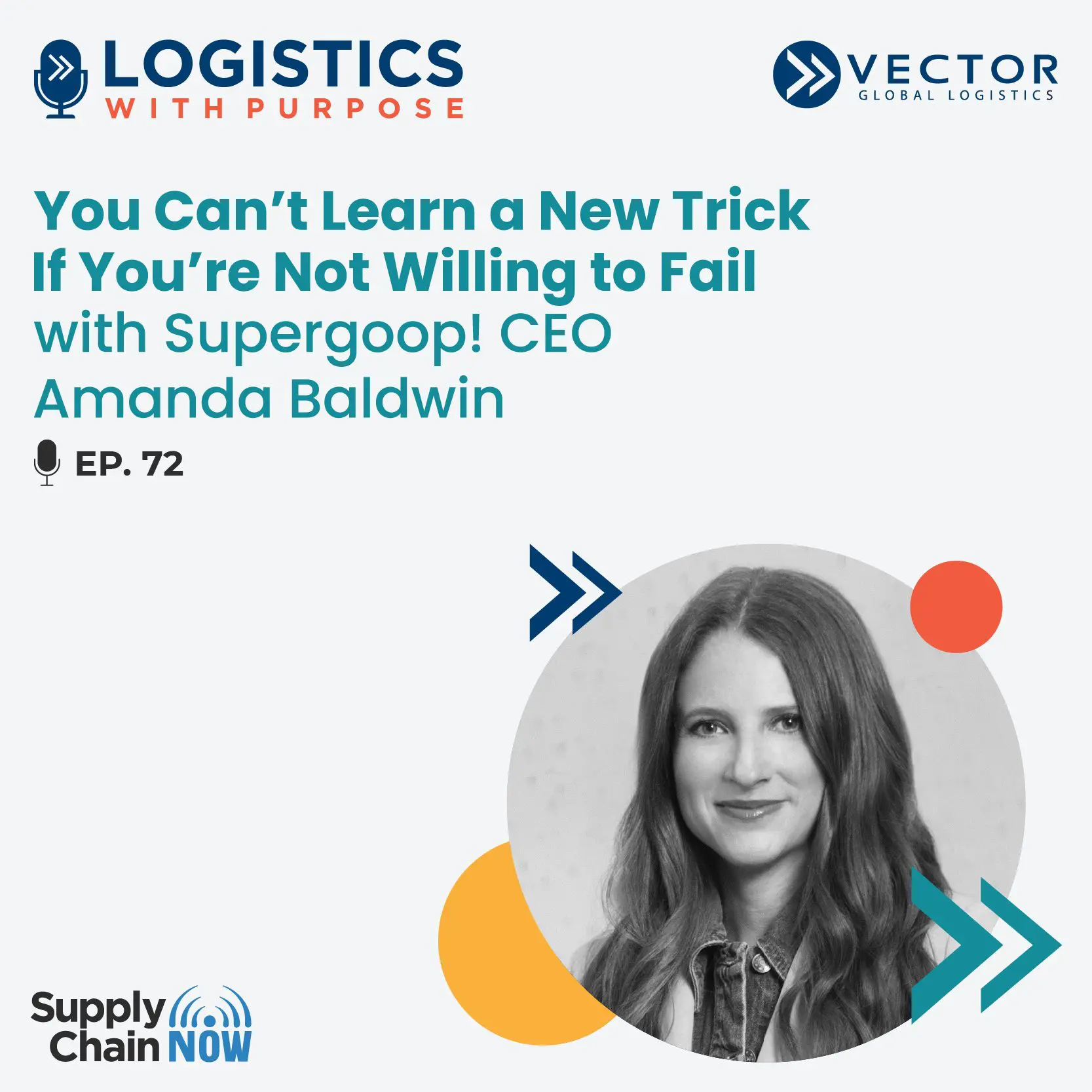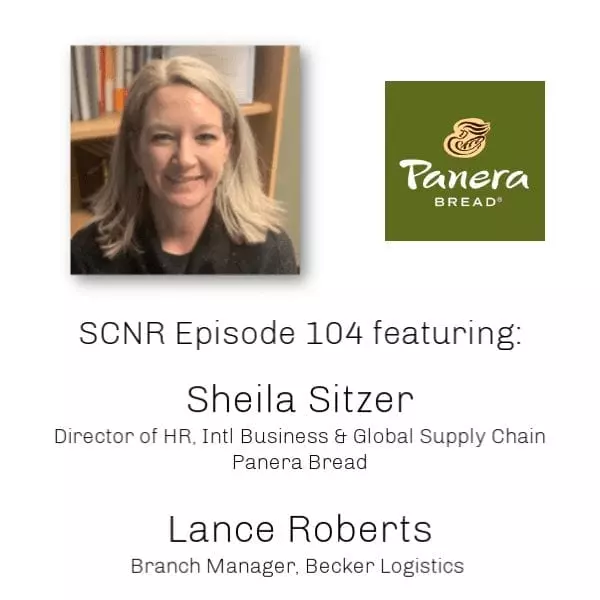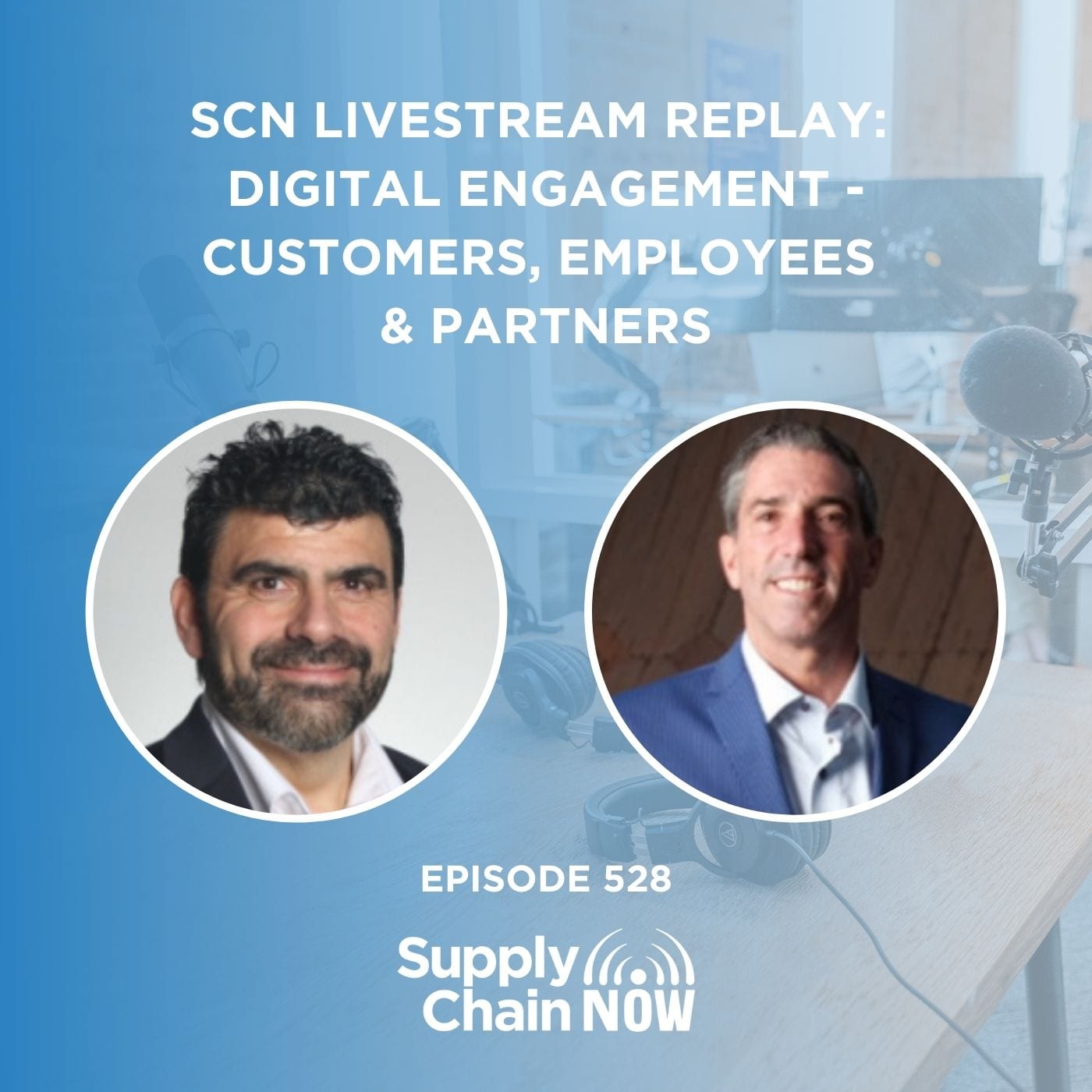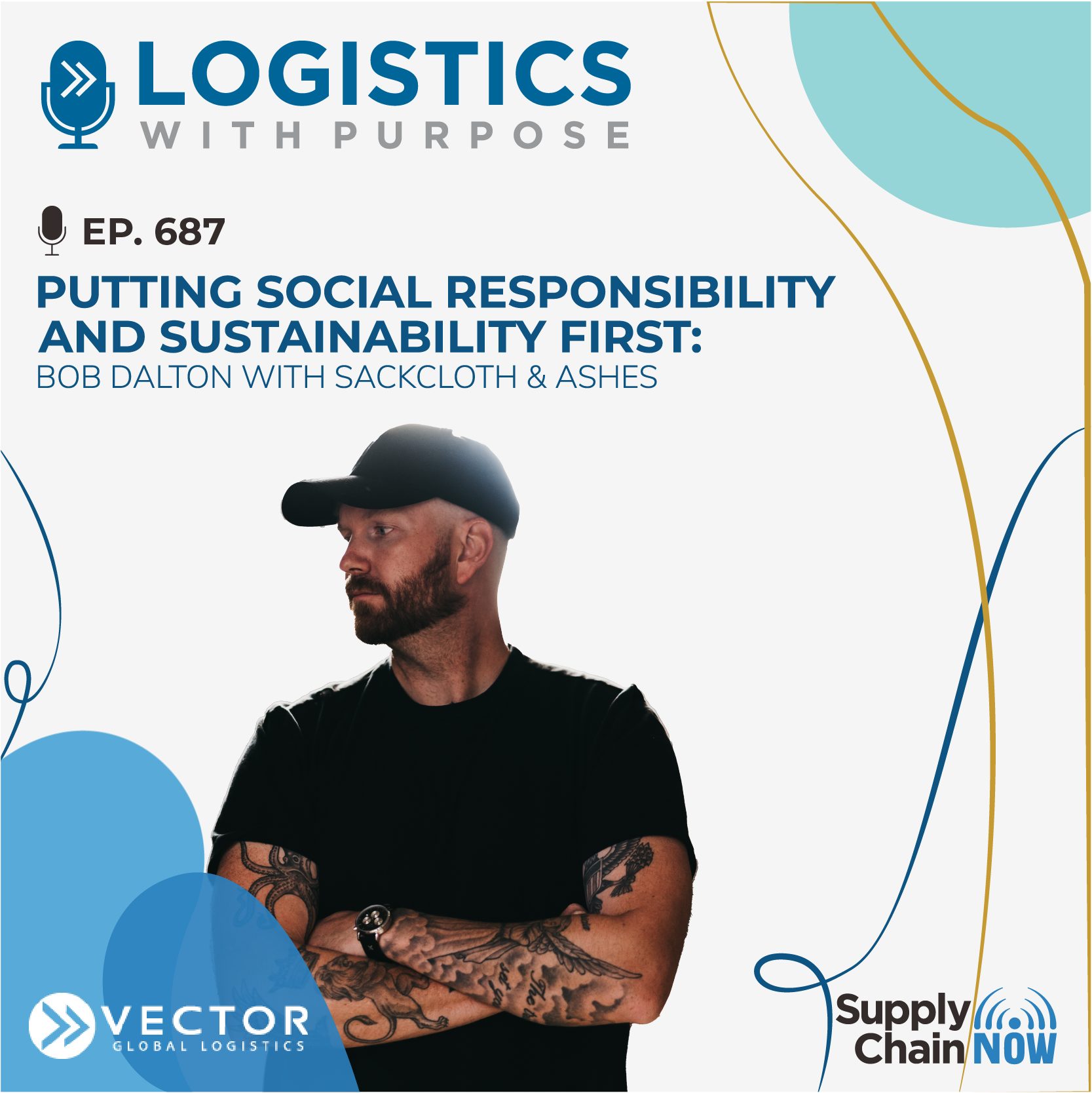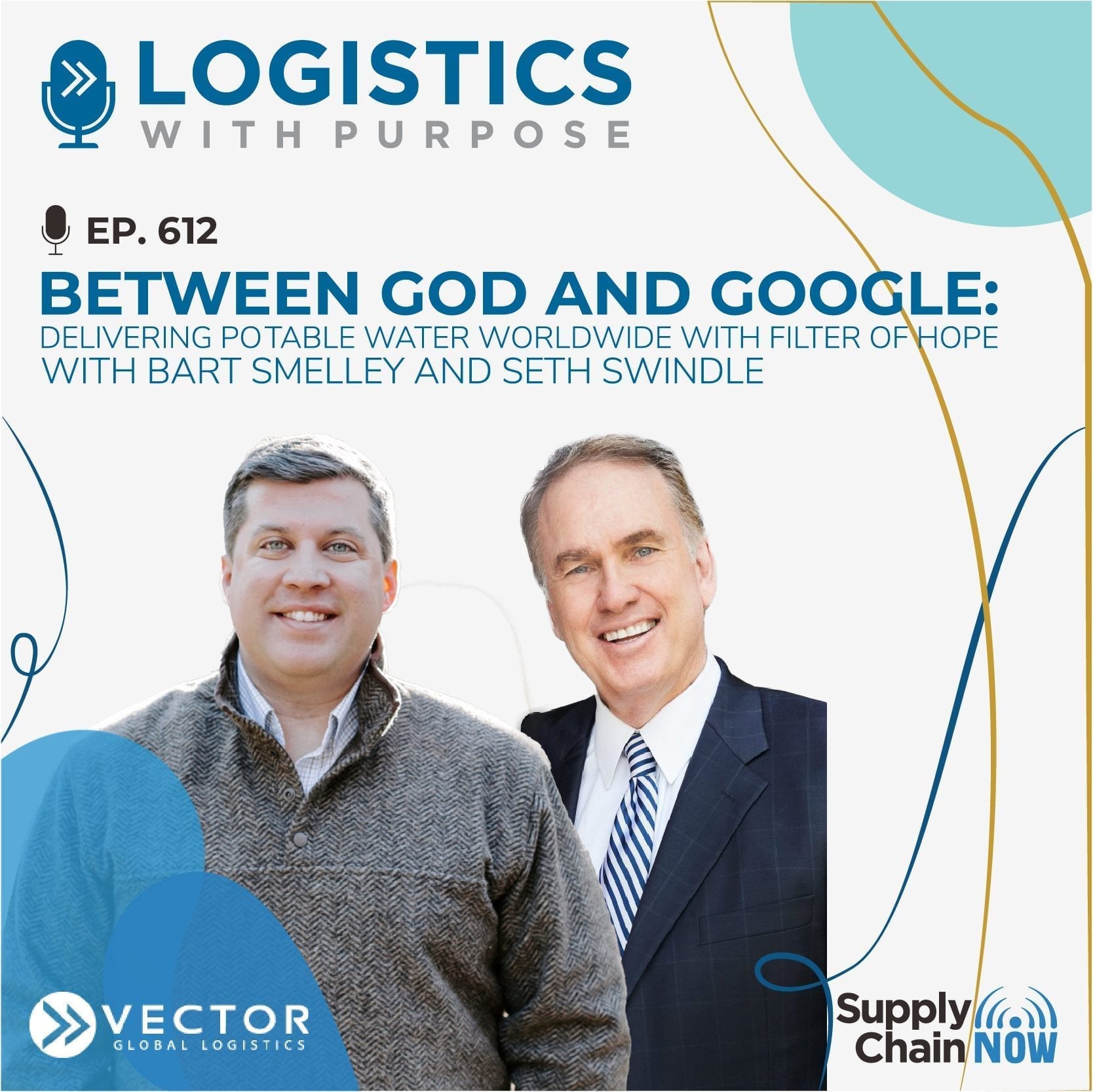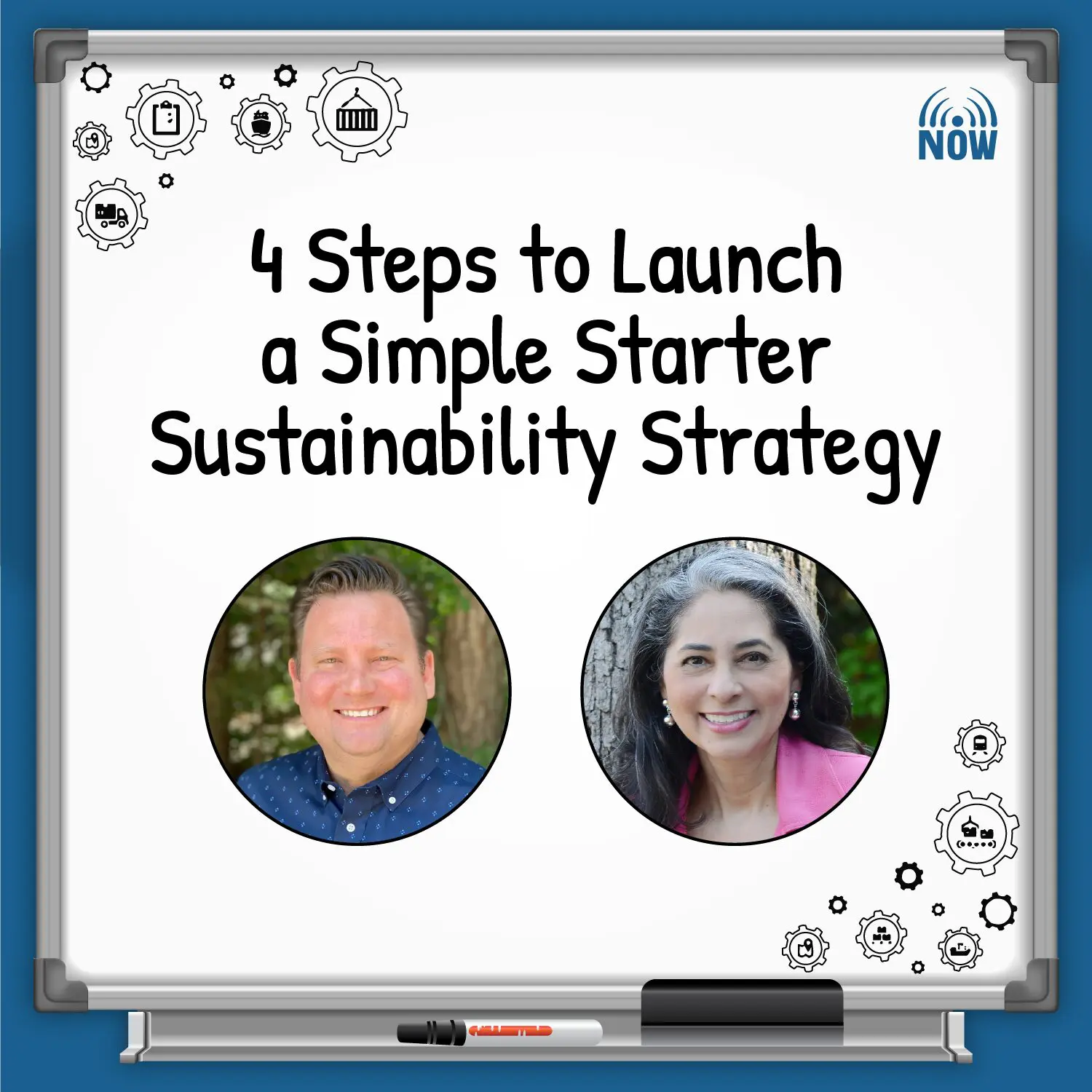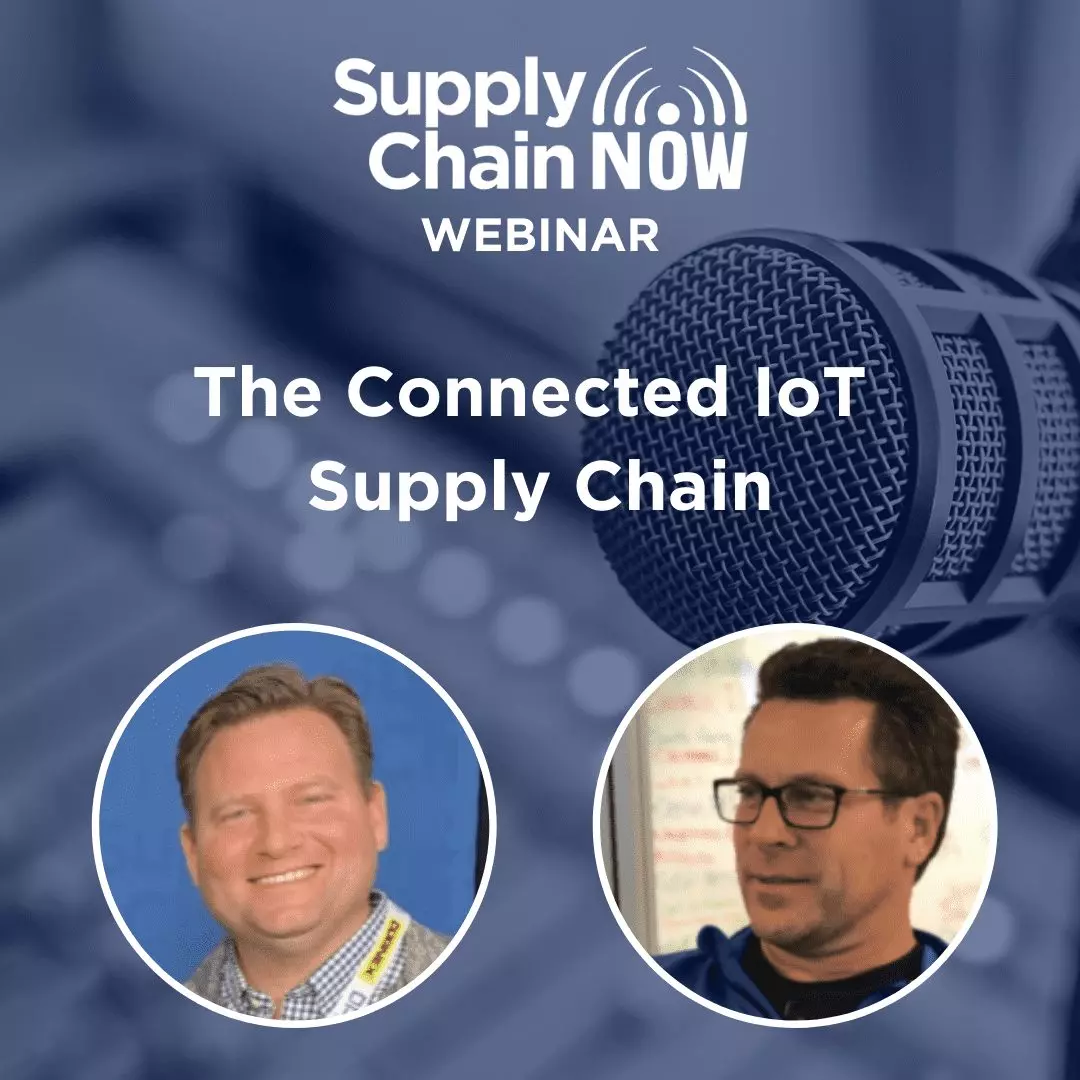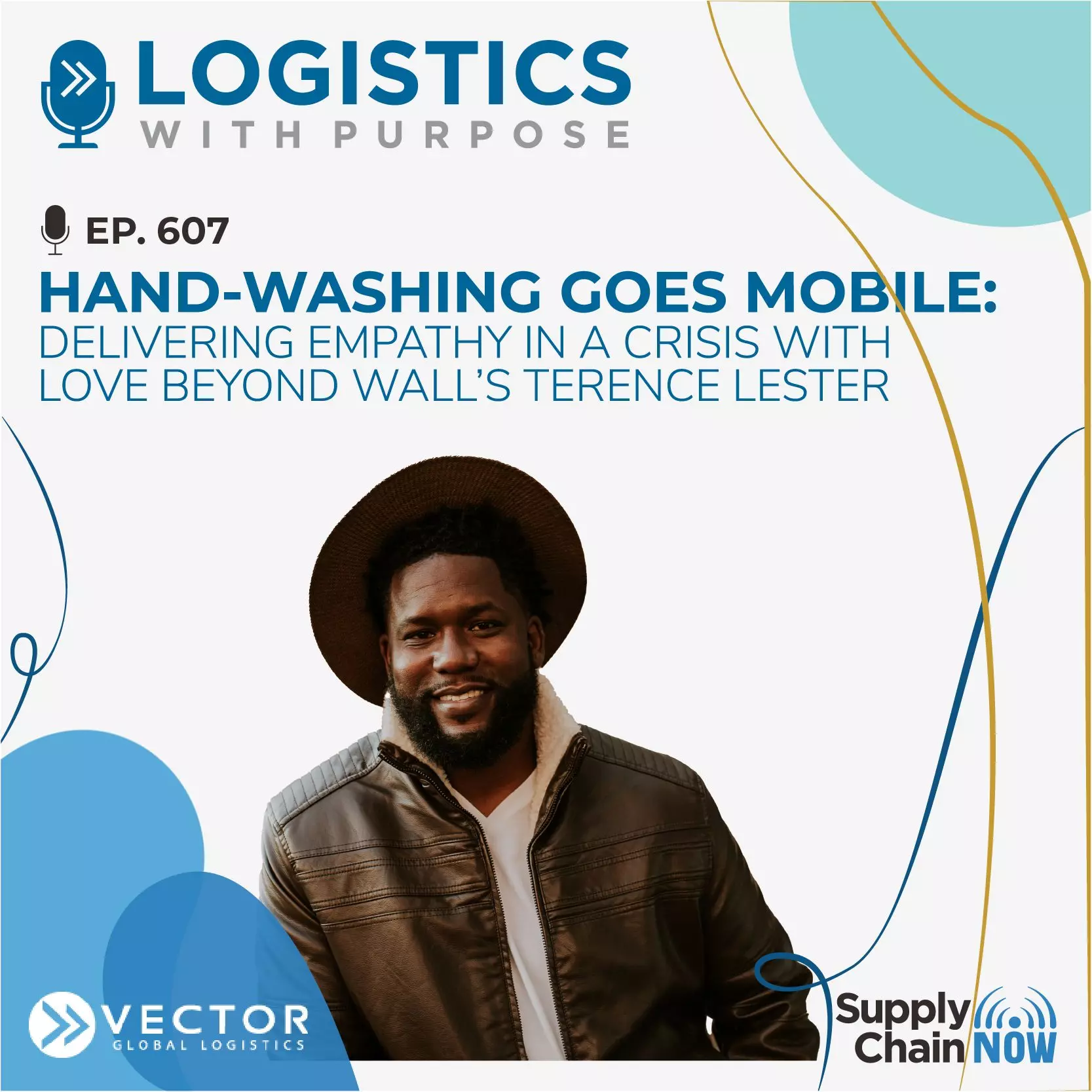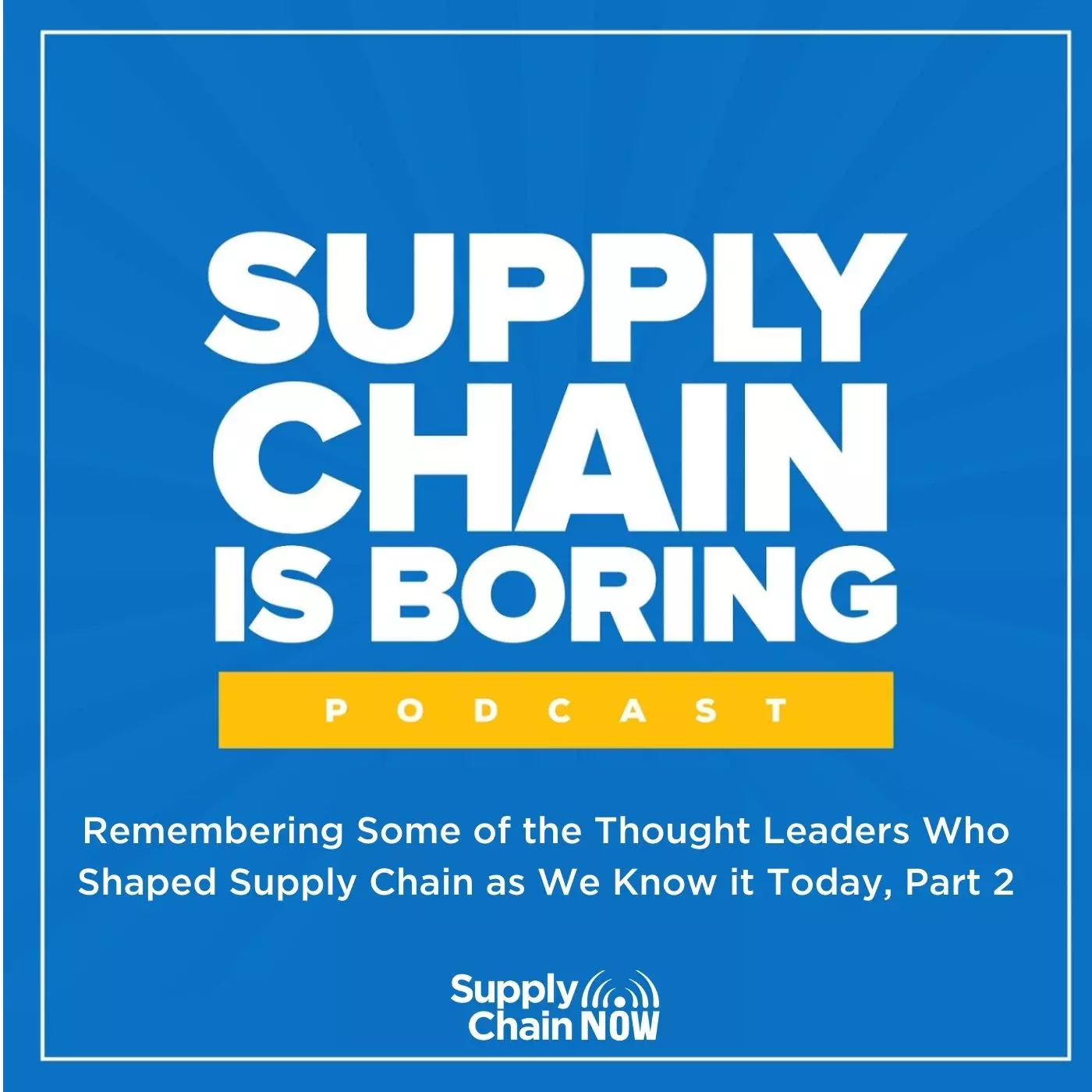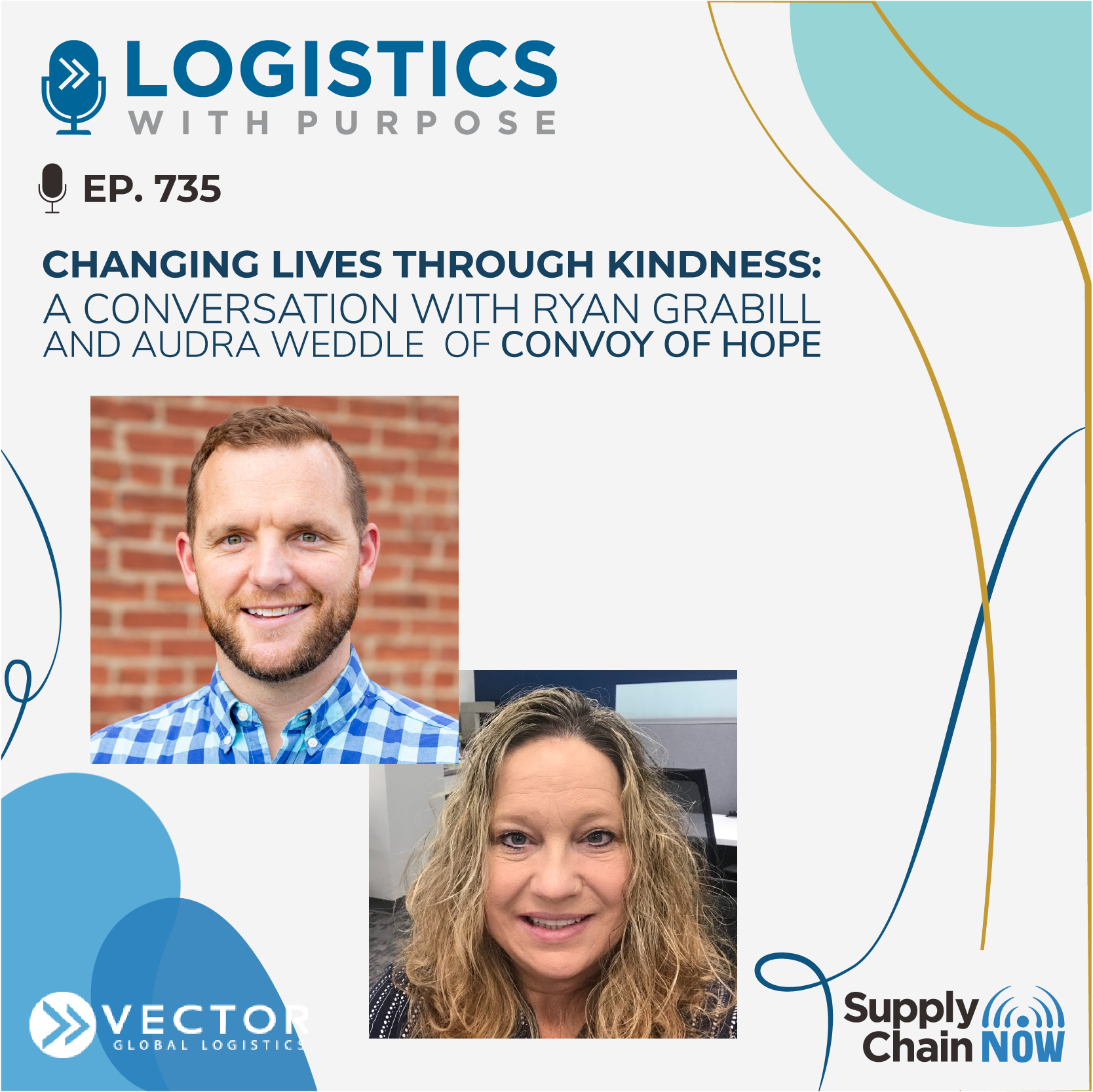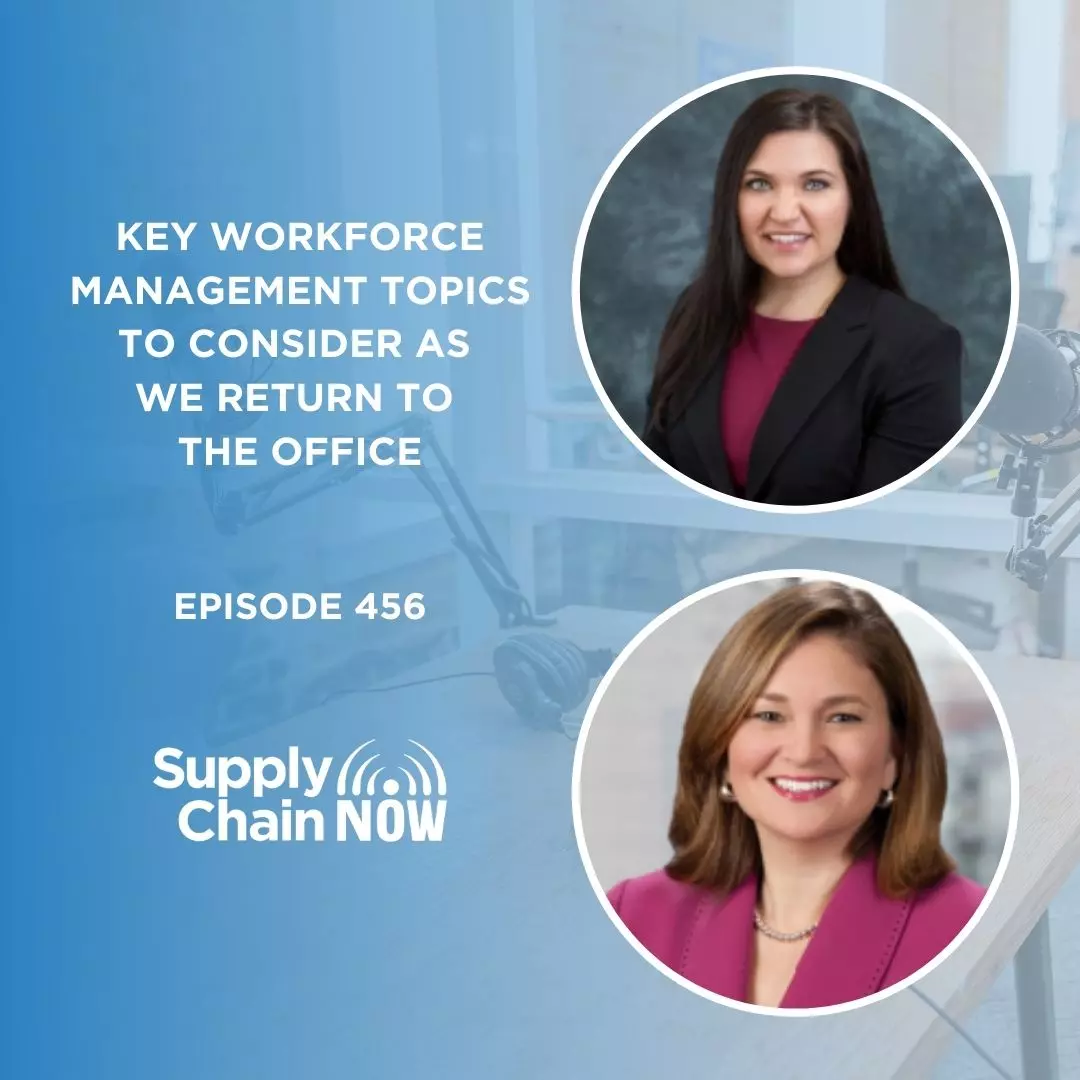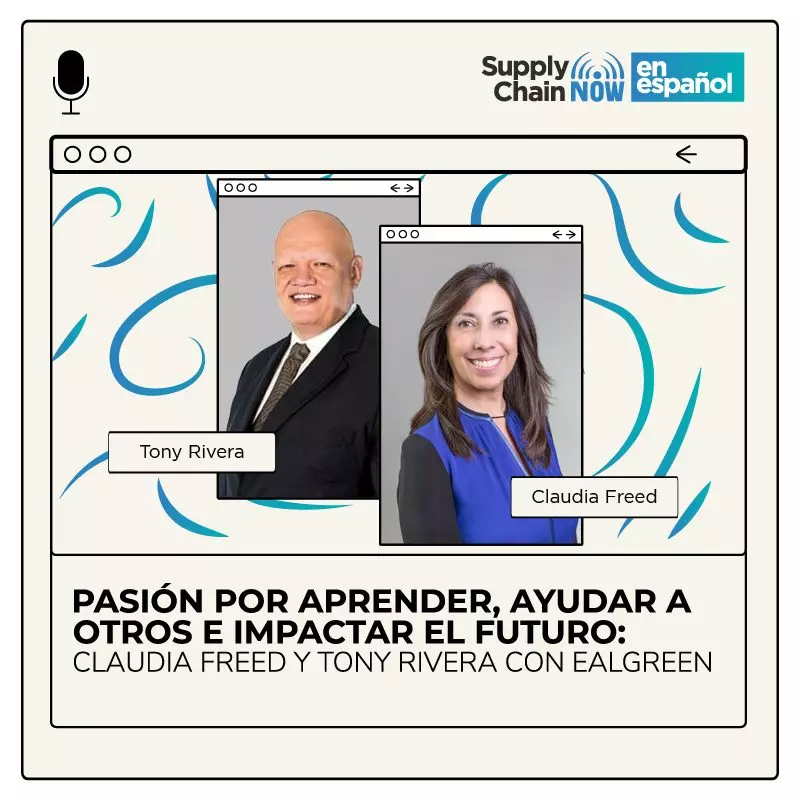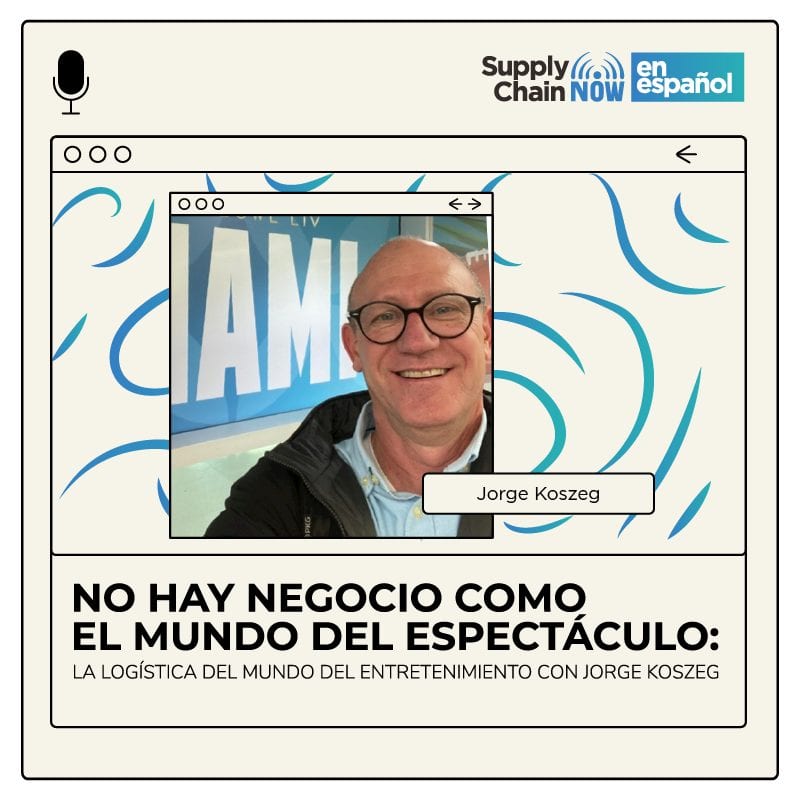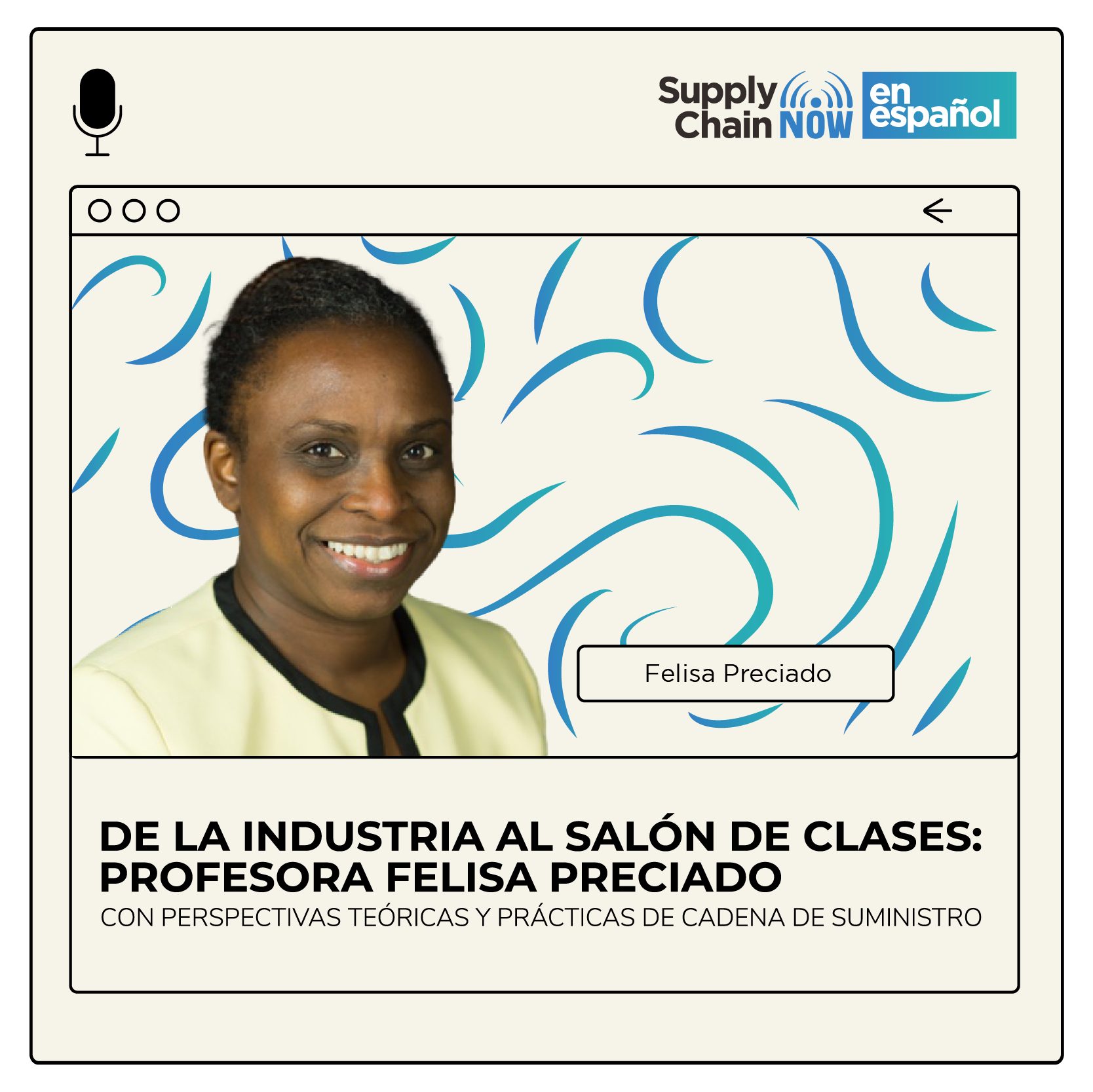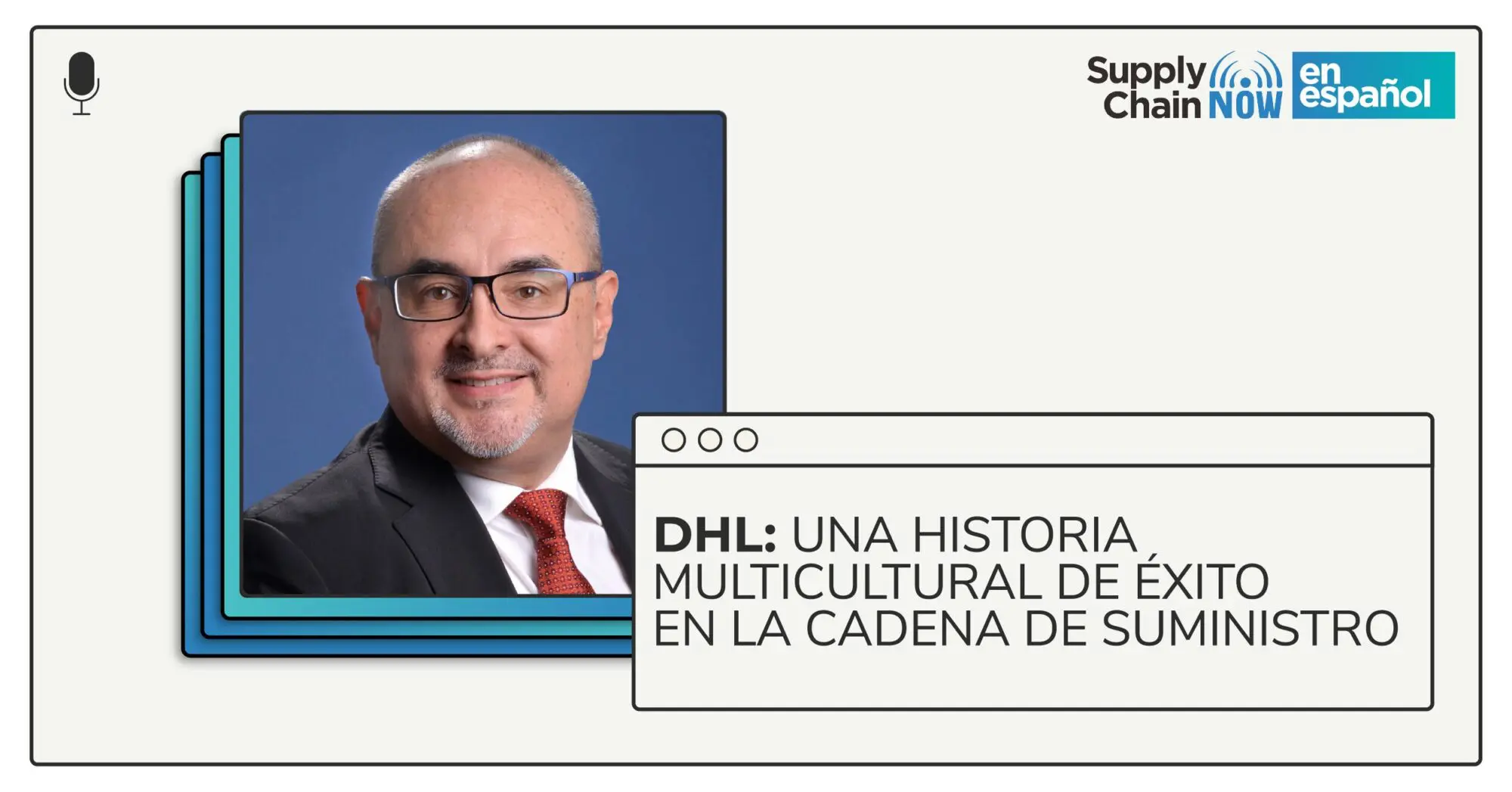
En el mundo todo es adquirible, las bodegas y el transporte son comunes para todos, pero lo verdaderamente invaluable son las personas. Ahí es donde nos debemos de enfocar.
- Mario Rodriguez
Resumen del Episodio
¡Descubre la apasionante historia de DHL, una compañía multicultural que valora el talento y la diversidad de las personas.
Enrique Alvarez tuvo el honor de entrevistar a Mario Rodriguez, Presidente de DHL México, quien cuenta con una extensa trayectoria de 30 años en la industria. Aprende sobre los retos y oportunidades que demanda la cadena de suministro en una empresa global. ¡No te la puedes perder!
Transcripción en Español
[00:00:01] Bienvenidos a Supply Chain Now en español presentado por Vector Global Logistics y Supply Chain Now. Este es el programa que da voz a las personas de habla hispana en la industria logística en constante cambio. Únete a nosotros mientras descubrimos las historias inspiradoras de nuestros huéspedes y aprendemos de su experiencia colectiva. Nuestro objetivo no es solo entretenerte, sino fomentar tu pasión por esta emocionante industria y apoyar tu desarrollo profesional en el camino. Y ahora aquí está el episodio de hoy de Supply Chain Now en español.
[00:00:34] Muy buenos días y bienvenidos a otro episodio más de Supply Chain Now en español. Mi nombre es Enrique Álvarez y el día de hoy tenemos a un gran invitado, una persona con una excelente trayectoria profesional y personal con nosotros. El día de hoy está Mario Rodríguez, presidente para DHL Supply Chain. ¿Mario qué tal? ¿Cómo estás? Muchisisimo gusto tenerte aquí con nosotros.
[00:00:57] Muchísimas gracias por tenerme, la verdad es que un gusto platicar con ustedes.
[00:01:00] Oye, para empezar cuéntanos un poco sobre tu infancia. ¿Quién es Mario? ¿De dónde eres? ¿Dónde creciste? Cuéntanos un poco de ti.
[00:01:07] Pues muy bien, este realmente es una infancia muy, muy agradable. Nací aquí en la Ciudad de México ya hace más de 50 años. El. Una familia balanceada de clase media muy feliz. La verdad es que una infancia muy diversa en cuestiones de sentido de familia. Yo tengo una familia que viene de México, americana, madre americana, mi papá mexicano, entonces con muchas este vicisitudes en sentido de después familia en Sonora, familia en en Tamaulipas. Entonces la verdad es que muy muy muy acogida, muy feliz la esa parte así muy agradable.
[00:01:48] Bueno, y yo también soy de la Ciudad de México. ¿Aquí a quién le vas? Mario eres. No me digas que eres americanista.
[00:01:54] Lamentablemente. Entonces, afortunadamente tuve la visión de no irle a ningún equipo. Entonces disfruto los partidos, quien sea, quien juegue. Si tengo un hijo americanista, tengo que confesarlo, pero no soy yo.
[00:02:07] Es, es, es buen equipo, igual que todos, Aunque yo no le voy al América, le voy a las Chivas. Pero. ¿Pero bueno, te gusta, disfrutas el futbol que que te gusta en tus ratos libres?
[00:02:17] Fíjate que yo yo sí fui más apasionado del futbol americano, entonces por muchos, mucho tiempo fui el único loco que le iba a los jefes de Kansas City.
[00:02:27] Ah, qué bien. O sea, desde el principio, porque antes no eran tan buenos, ahora todos famosos.
[00:02:32] Entonces era el único en la. Yo siempre crecí alrededor de gente que era o de Dallas o de Pittsburgh.
[00:02:39] Sí, los Raiders de.
[00:02:41] Raiders de los cuando eran todavía de Los Ángeles. Entonces el. Y era el único loco que traía. Es más, mis jerseys los tenía que traer de Estados Unidos. Pero últimamente me siento reivindicado.
[00:02:54] No 100%. No Kansas City. Una una franquicia que cuando tú y yo éramos chicos, realmente nadie la conocía, como dices en México y probablemente en Latinoamérica. ¿Y bueno, ahora me imagino que todos nuestros hijos y los jóvenes con los conocen porque llevan ganando varios años, no? Un buen equipo.
[00:03:11] Buen equipo, buen equipo. Me fui siguiendo yo Montana, pero si quieres hacemos el programa de fútbol americano más relajado.
[00:03:20] Hay que y bueno y seguro hay que hacer uno, porque yo también soy fan de Joe Montana, pero yo sí me quedé con los 49. No lo. No lo seguía Kansas City. Pero. Pero volviendo un poco a la logística y a tu pasado, este. Compártenos una experiencia que tuviste, algo que te impulsó a lograr a donde estás ahora. Algún mentor, alguna enseñanza de esos primeros años, de tu. ¿De tu vida?
[00:03:43] Mira, claro, yo yo salí de yo soy ingeniero industrial de la Universidad Panamericana, entonces salgo y la verdad es que de logística no se hablaba mucho, era algo más militar, si tú quieres, y había a lo mejor compañías que tenían áreas de distribución, que tenían transporte, que tenían almacenamiento, bodegas, pero no tenían una formación profesional de logística, no, este se hablaba como caso muy aislado de de negocio Bimbo, pero era un caso muy muy muy puntual, no era ni una ciencia ni ni era una profesión. ¿O eras bodeguero o eras transportista, no eras un logístico como tal, no? Entonces, cuando salgo a buscar trabajo me encuentro esta compañía inglesa que se llamaba Excel Logistics y este, y empieza y estoy hablándote del 94, 93. Okay, En ese momento Procter and Gamble la trae a México porque la compañía no existía en México, pero ya estaban en en Estados Unidos. Había algunos años anteriores, se había fundado y la traen a México para ayudarles a la logística en México. ¿Y empiezan a buscar gente y un amigo de generación me me contacta y me dice Oye, no quieres trabajar en esta compañía? Y y y de manera muy apresurada entro y dije bueno, por un ratito en lo que me encuentro algo mejor.
[00:05:16] Y era porque tu realmente no tenías la noción de o sea, no, no veías la noción de la logística, la cadena de suministro como tú dices, no se conocía que que en ese momento y hablando con el Mario de ese entonces, qué hubiera sido tu tu trabajo ideal en donde querías, en alguna planta, en algún.
[00:05:33] No, yo quería trabajar, yo yo traía la moda de que yo quería ir a a al área financiera, a bancos. Entonces eh, era un momento también en México donde había muchas fusiones, adquisiciones, estaba entrando Santander, pero era un momento que muchos ingenieros industriales nos estábamos yendo a al área de banca de banca y la vocación de la Universidad Panamericana en ese momento también estaba dando muchos ingenieros al a las industrias financieras, entonces casas de bolsa había mucho, mucho movimiento en ese sentido y de logística era una era una materia de investigación de operaciones en 8.º, 9.º semestre. ¿Que decías? ¿Bueno, pues vamos a a intentar a ver de qué se trata, no? Claro, no, no era. No era nada para para mí. Entonces. La verdad es que fue. Fue muy casual. Yo entré sin. No era mi apetito, la logística y. Y entré en una compañía, tengo que confesarlo, con testigos de que era temporal. Era claro. Veamos. Un encuentro. O sea, claro. No era romántico. Mi papá me decía. ¿Dónde vas A trabajar A con camiones y bodegas y, ah, entonces vas a ser transportista, no a vas a ser bodeguero? Pues entonces tampoco está socialmente En mi casa tampoco fui muy bien recibido.
[00:07:04] Si no, no, pues bueno, es que no, no se entendía realmente lo que era, no al final de cuentas. Pero bueno, por alguna razón lo hiciste y te quería preguntar en esa época. Bueno, cuando la gente está tratando de encontrar cuál es su profesión, cuál es su carrera, qué les gusta, qué no les gusta, algún mentor, algún maestro, alguien que a lo mejor te haya ayudado y Y qué te. ¿Qué te enseñó?
[00:07:25] Fíjate que que sí. La verdad es que tuve varios, dos, tres importantes en la en en la principio uno uno se llama José Pariente, el otro era un CEO ya retirado que es Bruce Edwards, y había varias personas que cuando yo empiezo a platicar con gente que ha vivido la logística como tal, como industria, como profesión y ellos venían de Estados Unidos, este ya te dan la idea de que oye, eso es mucho más que ser bodeguero, mucho más que ser transportista. Es realmente ser algo que aporta mucho a una cadena de a una cadena de eventos. Y la cadena de distribución es la parte más importante porque ya sale de producción y tiene el último contacto con el cliente final. Entonces ya empiezas a ver que no es almacenar producto y almacenarlo bien o transportar producto y rogar que llegue ese ser mucho más. Y tienes oportunidad de traer ahorros, tienes oportunidad de de generar un producto diferenciado en el mercado. Ya cuando te empiezan a explicar estos conceptos dices ah, esto puede ser interesante.
[00:08:38] ¿Tiene, tiene su encanto, Definitivamente no, y como tú dices, creo que este hasta hace poco yo te diría eh? Se empieza a reconocer la cadena de suministro como tal. Yo creo que la pandemia dentro de todos los males que trajo este algo positivo, fue un poco más de visibilidad para nuestra profesión y nuestra carrera. ¿No? Antes todo mundo compraba, todo mundo iba a la tienda, pero nadie se preguntaba bueno, de dónde viene, cuándo, cómo llega, quién compone, quién. Totalmente de acuerdo. Bueno, entonces entras a Excel Logistics y obviamente entras. Me imagino a una posición este de supervisión, supervisión y luego. Y cuéntanos de ahí. ¿Cómo? ¿Cómo, Cómo pasa tu carrera? ¿Qué sigue después de eso?
[00:09:22] Tener este entre la parte de las habilidades este ingenieriles que traía. Y después, como te comentaba, yo vengo de una familia mexicoamericana, entonces tenía muy buen o tengo muy buen inglés, este me considero bicultural y bilingüe y en ese momento no había tantas personas preparadas con ese nivel de inglés que tuvieran el contacto con una compañía americana que estaba aterrizando. Claro, entonces me empiezo a comunicar de manera correcta. Empiezo por supuesto a aprender de manera correcta y paso a ser un supervisor a un training, digámoslo así. Y ese. Y ni este. Eventualmente, un par de años después, subo de supervisión a gerente y después hago unas. Es 111 internado, si tú quieres. De la organización que me tomó un año en en Estados Unidos, en ciudades como Dallas y Columbus.
[00:10:19] Qué bien, Qué interesante eso está todo con Excel todavía.
[00:10:22] Todo con Excel y este y ese y ese entrenador en todas las áreas, operaciones, finanzas, este desarrollo de negocios, diferentes áreas. Entonces ahí estoy un año y regreso ya como un gerente, ya a full a a Excel en ese momento y ahí uno empieza una carrera que el cliente que teníamos era Procter and Gambo y subo con ellos hasta el nivel eventualmente de director de de operaciones y este y y en ese inter no solo empieza a crecer Procter, sino empieza a crecer Excel con otras cuentas y entonces paso a ser director de operaciones de una de una sola cuenta a múltiples cuentas.
[00:11:06] Oye, y un preámbulo rápido al paralelo con tu carrera. Este en la logística en general en México no, y a lo mejor en los países latinoamericanos llega Excel. ¿Mira, creo que es un un parteaguas importante para la logística de nuestro país, cómo está en esa en ese momento cuando ya tienes eh una dirección en Excel, Qué, qué cambios hay o qué tipo de tecnologías hay? Cómo compararías el el ese momento cuando eras director en Excel todavía contra lo que estamos viviendo ahorita.
[00:11:35] Todavía el sistemas eran había MS mucho más simples, casi todos hechos en en casa. En algunos casos ya se estaban desarrollando productos de de de las.
[00:11:49] Pantallas verdes todavía no, que te salía todo en verde y hace.
[00:11:53] 400.
[00:11:55] Si.
[00:11:56] Risc 6000, o sea procesos de IBM, entonces y y en ese momento ya empezaban a perfilarse algunas compañías también en situación de mercado, ya había unas compañías americanas aterrizando también en México. Este no había, había algunos. Este local era lo que le llamamos, pero compañías mexicanas este institucionales en ese momento, este que estaban, que era un jugador importante también por ahí este entonces.
[00:12:29] Dhl, DHL también lleva muchos años en México, también me imagino la parte de DHL paquetería existía desde hace años.
[00:12:39] Como paquetería estaba pero no hacía todavía sus pininos en en logística en ese momento. Entonces sí empieza a haber varios jugadores locales y extranjeros a crecer transportistas también empezando a hacer sus pininos de pues de ser solo un transportista, a empezar a poner una red. ¿Claro, interesante no? Entonces a la gente para y hago un brinco de 94 al al dos 2000 es casi ya empiezas a ver un crecimiento interesante de diferentes compañías locales, extranjeras movimiento y además vemos a las a los clientes empezando a reconocer que sus áreas de transporte y áreas de almacenamiento no eran lo mejor. Entonces empiezan a empujar, a buscar mercado a ver quién puede hacerlo mejor que ellos. Entonces empieza a tener una demanda con una con una oferta interesante de servicios, claro, pero sigue siendo a comparado de. Hay mucho más simple. No había TMS meses de 3/4, si tú quieres llamarlo así. Este por ejemplo si eran bueno para consumo, pero a lo mejor no era bueno para el sector tecnología porque no manejaba números seriales, pero sí manejaba caducidades, pero solo en algunos formatos. No, no manejaba fechas julianas. Entonces era era todo un poquito más, mucho más. Este no quiero decir improvisado, pero de mucho más.
[00:14:13] Mucho más, mucho más eficiente. Manual no las cosas. Y bueno. ¿Y tú estabas en el área, pasaste por todas las áreas, me imagino desde la parte que entraste como de training hasta ser director, eh? De todas las áreas. Te gustó también la parte de operaciones, ventas, finanzas. Tú iba quería ser, eh, la parte de banca. ¿Qué área te te gusta más? Sé que tienes una experiencia en todas y eres, eh, bastante bueno en todas. ¿Pero cuál? ¿Alguna que te guste o en ese entonces, alguna que te te gustara más?
[00:14:43] En Operaciones.
[00:14:44] Operaciones.
[00:14:45] Soy.
[00:14:46] Es el corazón de la logística. ¿A final de cuentas no?
[00:14:48] Este pero lo dejas de hacer porque te tienes que volver. ¿Más ventas? Claro, claro, pero. Pero sí, la verdad es que me me divierte mucho. Además, déjame hacer una analogía. Paralela conmigo. Empezamos en módems de 28, ocho, 56, seis computadoras super simples habían navegador era Netscape, no había acuerdo de Netscape. Entonces todo esto viene evolucionando a una velocidad correos electrónicos. Bueno, yo tenía un aparato que se llama un beeper, un skytel que caminaba en las noches celulares. No eran tan comunes, fueran mucho más caros. ¿Entonces imagínate pasar una logística donde tenías radios, donde tenías Skype, donde? Pues si tu nivel de servicio de 95% y te dabas de aplausos. Hoy estamos en niveles de 99.98 99.99. En algunos indicadores, por supuesto, todo es instantáneo. Next Day Delivery. Entonces es lo que me tocó. 30 años son disquetes a hoy. Pues lo que tú quieras.
[00:16:00] Manejamos inteligencia artificial y si ha sido un cambio radical y bueno, estás en una empresa que este dentro de muchas de las cosas por las cuales se identifica es por la tecnología, la creatividad y O sea, de hecho DHL está a la cabeza de cualquier área en la logística que uno pueda pensar. Entonces te ha tocado un excelente, una excelente trayectoria también con ellos y y cuéntanos de dirección de Excel cómo pasa tu cambio. ¿Este a a DHL, Qué tanto falta para llegar a DHL?
[00:16:33] Pues no mucho porque nos adquirieron. Yo yo vengo de una transición.
[00:16:38] ¿Entonces realmente nunca te saliste de Excel?
[00:16:40] No, por eso yo tengo 29 años, yo entré, este es mi. Creo que fue mi tercer trabajo cuando.
[00:16:47] Cuando fue la adquisición de.
[00:16:49] Eh, si bien me acuerdo, creo que podría haber sido 2002 más o.
[00:16:53] Menos. Sí, 2002 por ahí.
[00:16:56] Este fue la adquisición y oye.
[00:16:59] ¿Y un cambio, no? Como todas las adquisiciones, obviamente hay muchas cosas que cambian, pero me imagino que una cultura muy diferente en su momento.
[00:17:06] Fíjate que no tanto. Fue una un cambio light porque DHL Solutions, que era la compañía de de logística que tenía DHL Express, este era muy pequeña, en México casi no tenía presencia el footprint. Entonces cuando nos adquieren literalmente insertan esta compañía Excel, claro como una parte más. Entonces había Global Forwarding, había este express y logística. Nosotros fuimos entre comillas, quienes absorbimos las dos tres operaciones que eran más pequeñas que estaban de entonces y nos quedamos con nuestros sí mismos. Ceo Entonces para nosotros nada más.
[00:17:46] Fue, no fue mucho.
[00:17:48] Un cambio de de de de colores. Éramos azul y gris y ahora no somos amarillos y rojos. Y es. Oye, y.
[00:17:55] ¿Para los que nos escuchan que a lo mejor no saben todavía, eh? ¿La diferencia entre DHL y lo lo distinguen más por la paquetería, o sea, cuáles son las divisiones en ese momento? Y bueno, ahora eh, el Global Forwarding es diferente a paquetería. Háblanos nada más un poquito o danos un poco de contexto sobre quién es DHL este. Y bueno, cómo se dividen las diferentes este organizaciones.
[00:18:20] Y y este y recordando mejor es de 2005 la fue la adquisición y este. Pero bueno como te digo como no has cambiado te parece idéntica, pero en el 2005 y DHL Express sucor Por supuesto ellos ya venían de ser adquiridos por el Deutsche Post. Entonces Deutsche Post, que es el correo alemán, empieza a diversificar su portafolio de negocios, compra un forwarder importante en Europa, danzas, hace muchas adquisiciones, unas en Italia, unas en Portugal y de repente se topa DHL Express ya tenía una participación en esa compañía y simplemente unos años antes la adquiere completo. Entonces ya tienes a DHL, Deutsche Post para el correo alemán y tiene otros correos y tiene esta tiene un un brazo de Global Forwarding importante, tiene esta paquetería y su análisis dice que le falta una parte de logística entonces pero en forma. Entonces hace esta adquisición de el logístico independiente más importante en esa parte del mundo que éramos nosotros era Excel. Entonces con eso conforma un grupo que se llama Deutsche Post, DHL y este y es con cuatro patas importantes. En ese momento tenía DHL Express, DHL, Global Forwarding, DHL, Supply Chain, que somos nosotros, y después se queda con el correo alemán y tenía parte de un banco. Hoy tenía otros componentes que eventualmente fue vendiendo para quedarse principalmente en estas cuatro grandes compañías. Eso van evolucionando en el tiempo y ahora, por ejemplo, ya se adiciona una una parte más a la familia, que es DHL e-commerce, que es para e-commerce. Claro, entonces la misma compañía va segregando algunas divisiones, pero ahorita si tú quieres verlo muy. Y para la audiencia general somos cinco grandes divisiones, hay otras de una.
[00:20:31] ¿Una excelente historia, no? ¿O sea, no sé si existan películas o documentales en Netflix de DHL, pero definitivamente este debería haberlos porque es una historia sumamente interesante, no? De del correo alemán a lo que llegaron a ser ahorita muy exitoso, impresionante.
[00:20:49] Y uno que pasa por por esta, por este, por este tramo. Yo creo que lo que a tu punto de inicial de lo que vas preguntando, ese crecimiento tan espectacular que tiene esa organización, te arrastra a ti como individuo. Claro, y de tener un cliente tenemos hay más de 130. ¿Y si habla mi vanidad un poco el tema de oye, por qué no te cambiaste nunca? Pues porque nunca me puedo aburrir. La verdad es que de tener un solo cliente, que era Procter con la familia de productos, después tienes compañías de tecnología, después tienes compañías. Entonces descubres que la logística no es solo eso, sino como te insertas a producción, te insertas a marketing de esas organizaciones. O mueves zapatos, tenis o y mueves este ropa, o mueves productos de consumo, medicinas, entonces no tienes chance de aburrirte porque estás todo el día aprendiendo cosas diferentes. Entonces te das cuenta que a veces hacer una carrera dentro de una compañía 30 años puede ser medio aburrido. Mi papá la hizo así, pero cuando la haces en un DHL, claro, claro, hoy está en consumo, pero pasado mañana estás en retail. ¿Cuando pasado la semana anterior estabas en en industrial, pues no te aburres un segundo?
[00:22:09] ¿Si, si, si algo tiene nuestra industria es que es difícil aburrirse, no? Creo que siempre hay suficientes retos y bueno, y y hay que decirlo, tú estás en una de las mejores empresas logísticas del mundo con una cultura envidiable. Al final de cuentas, para qué te cambiarías a a cualquier otra empresa si probablemente fuera un movimiento este a una empresa no tan tan integrada y culturalmente desarrollada como la LA es DHL.
[00:22:39] Ah, mira. Y y para mis amigos que tengo 30 años, esos amigos en todas las compañías, en todas las industrias, seguramente todas las compañías tienen sus méritos, pero como tú dices, DHL tiene las suyas y y en ese mérito propio no es una compañía que solo se ha dedicado a crecer de manera o estructural y y tecnológica, sino también personal, donde hemos visto a lo largo de la evolución. ¿Pues ahora que estamos en en en el mes de Del Orgullo, pues también dices oye, tienes un lugar donde quieres que la compañía sea un lugar bueno para que todo mundo trabaje? Oye, es una compañía que se involucra en la comunidad, es una una compañía que hace objetivos de industria es ser una industria limpia para el 2050 cero emisiones. Entonces ataca varios vértices que te dicen Sí, quiero trabajar aquí porque esta compañía no solo te impulsa profesionalmente, pero porque si solo fuera dinero pues eres medio mercenario, sino si es por supuesto un crecimiento profesional, pero es un lugar donde quieres trabajar, compartir e intercambiar ideas profesionales con gente, conocer gente muy interesante. Entonces la verdad es que ese crecimiento te dices y no te aburres, Bueno, pues vale.
[00:23:58] Vale la pena. Definitivamente. Oye, y hablando un poco de de no aburrirnos y cambiando un poquito el tema, te quería preguntar Bueno, desde que empezaste a hacer ser presidente para DHL de Supply Chain me imagino que has pasado por muchos retos. Tendrás alguno algún reto particular que que haya sido desafiante en su momento y que a lo mejor te te ayudó a ser la persona que eres y y el eh el profesionista que eres. ¿Algún reto que nos puedas compartir?
[00:24:27] ¿Qué aprendiste antes de ser presidente de Supply Chain? Hace algunos años fui presidente de Chile y Argentina. Y este.
[00:24:36] Desde México tuviste la oportunidad de vivir.
[00:24:39] Estuve allá, viviendo en Chile y Argentina. Sí, y me tocó justo después de de lo que fue el corralito este, eh. Y un y un tema para mis. Mis amigos de Argentina saben perfectamente cuál es, qué pasó y qué años fueron, pero fue la. La Argentina tiene un un una logística complicada y Argentina y Chile más, o sea, Argentina y Chile son países de más de 5000 kilómetros de largo, logísticas norte sur. Este Argentina mucho más compleja porque tiene este varias fotografías. Es casi cuatro veces el tamaño de México, este con 1/4 de la población, entonces aprender a. Y en ese momento nosotros teníamos flota propia ya entonces, cosa que en México no podemos tener por cuestiones de ley. Entonces, aprender de administrar una flota propia, talleres, choferes, este recorridos de distancias, este sindicatos tienen un sindicalismo mucho más activo en Sudamérica que México, este estar en un país diferente, mudarte con la familia, Entonces esa experiencia fue muy formadora, era un mini laboratorio porque es mucho más chico que México, pero sigue siendo el responsable de todo el panel de la logística de tus clientes y tienes éxitos y fracasos y y los vas capturando, los vas este transformando, los vas digiriendo y este. Y yo creo que fue de mis experiencias más, más duras, porque pues estás ahora, si eres el dueño, eres estás solo, tus decisiones son definitivas, entonces tienes que vivir con ellas, Entonces aprendes mucho de esas experiencias. Este cosa que le estoy muy agradecido a la organización por Oye, estabas.
[00:26:26] Viviendo en en Buenos Aires entonces o en Santiago, Buenos Aires, Buenos Aires y viajabas a Chile. Seguido a hoy comparando un poco a México, Argentina y y Chile. ¿Obviamente países muy diferentes por por muchas razones pero similares a la vez en la parte de supply chain o de logística cómo algunas este peculiaridades de cada uno este hablando ya ahora algo que veas de Chile, algo de Argentina, algo de México?
[00:26:55] Fíjate que sí. Yo cuando llegué a Chile el yo estaba muy pero muy sorprendido. 2011 el que ya tenía este cliente Carrefour, que era un. Es una compañía de autoservicios grande francesa, estuvo un rato aquí en México. ¿Yo llego allá y veo el primer almacén automatizado y este y ya tenía algunos años ese almacén como estuvo el el dólar y el peso 1 a 1? Pues sí, la mano de obra se volvió cara y este y veías pues que les fue muy veías varias inversiones de de mecanización, automatización. Este mondelez o craft tenía también el suyo muy importantes, de muchísimo dinero puestas a puestas. Ahí ya entonces llegabas y decías esperabas ver lo que teníamos en México operadas por mucha gente y ya veías algunos edificios ya con alta tecnología para el momento ya trabajando donde hacían tenían estas aditamentos que parecen de la luna, que venían unos un una, un aditamento del para, para selección de picking y hacían con chupones la succión de arriba por cama. Yo era la primera vez que veía eso y lo.
[00:28:16] ¿Y lo viste en Chile? Sí, claro.
[00:28:20] Y y este y. Y decías Wow, qué cosa tan espectacular. ¿Chile no? Chile no tenía una logística tan avanzada como la.
[00:28:29] Que tenemos en Argentina. La, la la de la logística avanzada.
[00:28:32] ¿Por mucho y este y cosas ahí medio no? Chile era mucho más similar a a a México, México, pero el. En el caso de ellos cosas que se ven traído de Estados Unidos de Europa muy interesantes eh Ya tenemos este con con entonces tenías algunas cosas que no se podían mantener en el en el en el futuro, porque otra vez el costo se estaba empezando a evaluar. Tenía 3 a 1 cuando yo estaba ahí. Hoy está en 500 $ a uno casi el el peso argentino contra el dólar. Pero sí era un tema muy importante la tecnología y la calidad de profesionales que encontré en ambos países. Espectacular. Entonces allá la profesión tenía un poquito más de avance, era mucho más educada la la base este de estudiantil que los nuestros. En la materia de logística entonces encontrarás muchas cosas que no esperabas ver claro en Sudamérica, esperabas ver en Brasil, pero no en Argentina. Y muy sorprendido. ¿La verdad es que súper súper profesionales y este y bueno, como personas encantadoras no?
[00:29:44] ¿Se ve que tuviste una gran experiencia, me imagino que creciste mucho también como personalmente como profesionista este sigues teniendo algo que ver con esos países ahora en tu nuevo rol o no?
[00:29:57] Tengo, tengo bueno este. Mi jefe Agustín, es el que lleva la la región. ¿Okay, Y si preguntamos si tenemos un intercambio fuertísimo de experiencias? Claro, porque ellos traen como traen también mucho enojo, entonces lo que hace Agustín, que es mi jefe, el CEO de la región, es tiene foros donde participamos todos los CEOs del países y la idea es intercambiar y este mejores prácticas. Entonces estamos en contacto con ellos. Yo justo antes de esta llamada estaba en una en una junta con Colombia, viendo algunas prácticas de unos dashboards, entonces cuando hace sentido lo replicamos en México y viceversa hacia el hacia el cono sur.
[00:30:41] ¿Bueno que es un poco lo que hace DHL tan tan exitosa no? El el poder compartir dentro de sus diferentes mercados. Hablando de de la región. Mario, si nos pudieras decir brevemente qué países que constituyen la la región.
[00:30:57] Los países más importantes, por supuesto.
[00:31:00] Los más importantes, claro.
[00:31:02] ¿Brasil, Argentina, Chile, este, Perú, Colombia, eh? Aunque estamos en todos los países con con una presencia de menor o menor, mayor o menor tamaño. Pero lo principal son estos grandes países que acabo de comentar que hacen el. Yo creo que el 95% de del del de la foto de la región oye algo.
[00:31:27] ¿Volviendo a tu experiencia, este algo que te acuerdes, algo que te hayan dicho, algún consejo así muy puntual, alguna frase que recuerdes que te haya dicho alguien, ya sea familiar o en el trabajo o en Argentina? Algo que te que te acuerdes.
[00:31:42] Mira, yo creo que el eh, más que yo tuve una plática, porque por supuesto cuando estás relativamente solo y a veces un poco desconcertado o o empiezas a dudar porque no tienes a veces el la confianza o la tranquilidad mental para compartir ciertas circunstancias. Este en una plática con con unos amigos que ya estaban aquí en México me decían oye, no te desesperes, seguramente tu problema de hoy desaparecerá en una semana y en una semana tendrás nuevos problemas que serán los de el futuro. Entonces déjalo de hoy, para lo de hoy, ya lo de mañana deja que se cuide solo. Y este. Y aunque suena muy, muy trillada y muy simplista, efectivamente, a veces nos abrumamos con los problemas de hoy, pero también con los de mañana y con los de la y los del pasado.
[00:32:42] Sí.
[00:32:44] Entonces de repente dices no, pérame, no me da la la agenda para administrar todas mis problemáticas. Entonces es enfocar en lo que puedes resolver hoy. Dedícate a hacer lo que puedes resolver hoy. Por supuesto, no dejes de hacer planes hacia el futuro. Claro, claro. No son planes entonces y se pueden modificar y se pueden adelantar o se pueden atrasar, pero hay que tener una dirección, hay que tener una orientación. Pero no olvides que tienes que hacer lo de hoy. Entonces. Pues si, si vas terminando tus problemas del día a día, ya para mañana ya no será un problema.
[00:33:21] Entonces no es un es un excelente consejo. ¿No, no te abrumes con los problemas, o sea, porque hay muchas veces que estamos preocupados y dejamos de hacer las cosas y nada más, eh? Exponencialmente crecen todos los problemas si no hacemos nada a final de cuentas, entonces es una excelente, una excelente consejo más para eh los profesionistas en la logística y en cadena de suministro, porque los problemas siempre van a estar ahí. Sí, pero te quería.
[00:33:47] Tendría más pelo, pero bueno, me lo dijeron tarde todo atribuido.
[00:33:52] Todo atribuido a la cadena de suministro.
[00:33:55] Entonces la administración del estrés.
[00:33:59] Mario, muchísimas gracias por esas palabras. Te iba a decir algo que hay que presumir y hemos hablado un poco, pero no lo mencioné oficialmente. Es que bueno, DHL no solo es una empresa reconocida a nivel mundial por ser las mejores empresas para trabajar, sino que han ganado este como best place to work cuatro años consecutivos en México. ¿Nos puedes platicar un poco acerca de de este muy buen reconocimiento y un poco acerca de la cultura de trabajo del DHL eh?
[00:34:28] De ahora fíjate que lo hago con mucho gusto porque hace muchos años llegamos al reconocimiento de que no las cosas que teníamos como como organización, lo único que no era replicable era la gente, porque los sistemas son todos comunes. Ya casi todo lo puedes comprar, las bodegas todas las puedes adquirir. El transporte los es común a todos, pero las personas no son replicables, no son, son individuos, personas únicas que traen un valor a la organización fundamental. Entonces nos empezamos a enfocar en ese tema, en ser un lugar agradable para no solo agradable, sino un lugar no donde trabajar, sino donde vivir de manera adecuada la mitad de tu día. Entonces empezamos a hacer conciencia de cómo tratar a la gente, cómo tratarnos y como individuos, cómo tener esa política de de puertas abiertas. No era simplemente un tema de respeto, de poder entrar a la oficina, sino era un es cómo comulgamos todos en una organización para hacer servir al único propósito que es a nuestros clientes. Entonces empezar a tener ese lugar donde puedas respetarte, independiente de tu credo, de religión, de preferencias, de color, de piel. Y eso lo vivíamos mucho cuando íbamos a Estados Unidos de Oye, vas a. Mexicano este.
[00:36:00] Entonces decían Oye, nunca fui discriminado por ser mexicano, por hablar inglés, y aunque lo hablo muy bien, sigo hablándolo con algunos temas o a lo mejor algún acento. Este Entonces decían pérate, yo quiero estar vivo en un lugar a gusto, donde ese profesional gringo de tres metros de alto me respeta por ser un profesional, por la inteligencia, ni siquiera por mis credenciales académicas, porque les vale un cacahuate, sino porque podía aportar entonces ese mismo sentimiento de pertenencia, de respeto, de de lugar seguro, ambiente tranquilo de para vivir. Los empezamos a llevar a la gente y reconocer que hacemos una diferencia en la gente, donde a lo mejor aquí es el. En nuestra organización es el único lugar donde pueden tener una comida caliente, donde se puedan bañar, donde se pueden tener sentirse seguro, donde pueden ir sin miedo a que los asalten en la esquina, o sea, entonces todo ese tipo de cuestiones empezamos a hacer, a reconocérnoslo, a responsabilizarnos nosotros como líderes de la organización de que nos debemos a nuestra gente y a todos nosotros y empezar a hacer esos cambios ya nos ha llevado algún tiempo y este y bueno, afortunadamente se ve reflejado, se refleja claro.
[00:37:18] Cuatro, cuatro años seguidos que a lo mejor se dice muy rápido, pero para la gente que está trabajando adentro de una organización tan grande y relevante a nivel mundial, pues es es un gran mérito. Entonces muchas felicidades a ti y a todo el equipo de DHL que hacen posible tener un ambiente de trabajo como el que tienen y y sigan adelante. ¿Estoy seguro que inspiran a otras empresas y a otros profesionistas a hacer lo mismo y creo que es algo sumamente importante para el futuro, no? La La cultura de tu empresa ahora es más importante que nunca y yo creo que en un futuro va a ser la única ventaja competitiva que las empresas van a tener.
[00:37:58] Yo creo que sí, y es algo que no sale en México. Si lo hacemos a nivel mundial, no es una, no es una iniciativa local, entonces casi, casi somos mejores que las Naciones Unidas en ese sentido, eh Hace poquito salía en una estadística. Nosotros tenemos en nuestra organización más, más nacionalidades activas. ¿Wow, varias organizaciones, o sea entre Ucrania, de Rusia, de México, de tenemos más nosotros este nacionalidades activas que varias organizaciones a nivel mundial no?
[00:38:33] ¿Eso, eso es un muy buen dato, no? La la diversidad en DHL obviamente de estar encabezando los los eh todas las tablas de de otras empresas. ¿Te iba a preguntar tres tres cosas este Mario, tú como presidente, tres cosas que que nos puedas compartir de lo que tú pones atención en el mercado de la logística, no? Tres cosas nada más. ¿Muy puntuales, muy resumidas en qué ponen atención? ¿Mario eh? ¿A qué le da importancia en cuanto a el mercado de la logística y el supply chain? ¿Eh?
[00:39:05] Tenemos la la primera y la más importante para para nosotros es, por supuesto, si hablamos de crecimiento, la única forma de crecer es estar atento a qué necesita el mercado. Entonces estamos muy en contacto con las industrias. Tenemos seis sectores aquí en en DHL que casi todas las industrias aeroespacial, este minería, consumo y así Life Sciences, Tec. Tenemos de todo y este. Entonces tenemos que estar muy atentos de qué está.
[00:39:39] La necesidad de esas industrias. Ese es tu número uno.
[00:39:43] Muy importante, entonces. Dos Por supuesto, lo que es tenemos que mantener la competitividad interna. Entonces, si hay un esfuerzo de no solo ser competitivos a nivel monetario, sino tenemos que ser competitivos a nivel servicio. O sea, no podemos dejar todo el peso del éxito sobre la marca. La marca no vale nada si tú no le pones ese backing, entonces constantemente. Si estoy viendo hacia adelante, pues también estoy viendo hacia adentro, donde estamos viendo cómo hacemos las cosas mejor, de manera más efectiva, de manera más económica y y esto es importantísimo. Y la tercera que creo que es nada de esto se materializa sin talento. Estamos buscando talento todo el tiempo y y la búsqueda del talento va en dos vías en por supuesto, el talento, déjame llamarlo así en bruto, que es las nuevas generaciones, gente que viene del mercado, por supuesto. Y después el desarrollo del talento. Nosotros dedicamos mucho nuestro tiempo a desarrollar gente internamente, concursos internos con una. Universidad virtual que tenemos en las redes, que es a nivel mundial. Estamos constantemente empujando una agenda de cómo te hago a ti un mejor profesional. O sea, entonces estamos en en ese tema, ese triángulo, si quieres llamarlo así, viéndose el mercado, que eso por supuesto da, viendo cómo somos competitivos en todos los sentidos y por supuesto viendo el talento. Si esas cosas no las ves, puedes enfocarte en muchas cosas, pero si eso no lo tienes bien y y como tú lo marcaste todo en un ambiente de respeto y resultados, en en, en, en todo esto simplemente es un sello que avala eso. Pues no, no avanzas, o sea, algo se te va a caer en el camino, claro.
[00:41:46] Oye, pues muchísimas gracias. ¿Este ya lo tienen ahí los que nos están escuchando, eh? ¿Parte del éxito, no solo de DHL, pero yo diría de cualquier empresa en cualquier industria no? El estar atento a la necesidad del mercado, este competitividad interna no solo en dinero sino. Y algo que dijiste Mario que que me llamó mucho la atención, la marca no vale si no está respaldada con la parte operativa y los resultados y el equipo y el talento que es Muchas veces algunas empresas se les olvida que al final de cuentas somos tan fuertes como eh, el más débil de nuestra, de nuestros empleados.
[00:42:26] Y es yo creo que, y otra vez muchos alrededor del componente humano y y yo creo que la. Yo creo que todos en alguna vamos a acordar en el 90% de las cosas que que acabo de mencionar. Por supuesto, todo mundo tenemos un espín en esa idea, pero lo que creo que todo mundo al 100% vamos a coincidir es talento. El talento no está. Este otra vez. Nuestras organizaciones, como tú dices, son tan buenas o tan malas como ese profesional que al final tiene que tener ese contacto con el cliente y traerle una solución y un alivio que está en manos de un profesional.
[00:43:04] Totalmente. Mario, pues muchísimas gracias eh, por darnos tu tiempo. Sé que una persona sumamente ocupada este ha sido un placer platicar contigo. Nos encantaría en un futuro volver a molestarte para que nos des un poco más de tu perspectiva sobre las cadenas de suministro en México, en Latinoamérica y en el resto del mundo. ¿Y bueno, como como último, eh? ¿Cómo pueden? Cómo pueden conectar contigo, conocer más de DHL las personas que a lo mejor quisieran aplicar, etcétera. ¿Cómo? ¿Cómo te pueden contactar los que nos están escuchando?
[00:43:36] Yo creo que la forma más ágil, porque si es a través de mis probablemente sea poco ágil, pero. Pero tenemos redes sociales que por supuesto están en Instagram, Facebook, algunas redes sociales muy particulares que pueden entrar ahí y contactarnos. Tenemos webpage que también está disponible, que es muy fácil entrar ahí y tenemos una cantidad de profesionales que están contestando estas estos medios que son muy digitales. Yo te diría mándame un fax, pero creo que ya mi mi tarjeta tiene un.
[00:44:10] Creo que eso ya creo que eso ya no va a funcionar mucho.
[00:44:13] Pero este pero todos los demás que son los chicos este. Yo creo que la forma más fácil por correo por estas redes sociales y va a haber gente respondiendo a la brevedad y nos estarán. Nos da muchísimo gusto estar en contacto con él.
[00:44:25] Perfecto. De hecho nosotros vamos a poner un poco las ligas a donde pueden contactarlos, donde pueden aplicar para alguna carrera, etcétera Y bueno, nuevamente muchas gracias, Ha sido una cátedra y bueno una excelente trayectoria profesional. Te damos. Te deseamos lo mejor, te felicitamos por tus logros. Presidente para DHL Supply Chain. Muchísimas felicidades. Muchísimo gusto platicar contigo el día de hoy y bueno a todos los que nos escuchan si les interesan pláticas con las que tuvimos el día de hoy con Mario Rodríguez, por favor no se olviden de suscribirse y nos vemos en el próximo episodio.
Episode Summary
Discover the fascinating history of DHL, a multicultural company that values the talent and diversity of people.
Enrique Alvarez had the honor of interviewing Mario Rodriguez, President of DHL México, who has an extensive 30-year career in the industry. Learn about the challenges and opportunities that the supply chain demands in a global company.
Episode Transcript
[00:00:01] Welcome to Supply Chain Now in Spanish presented by Vector Global Logistics and Supply Chain Now. This is the program that gives a voice to Spanish-speaking people in the ever-changing logistics industry. Join us as we discover the inspiring stories of our guests and learn from their collective experience. Our goal is not only to entertain you, but to foster your passion for this exciting industry and support your professional development along the way. And now here is today’s episode of Supply Chain Now in Spanish.
[00:00:34] Good morning and welcome to another episode of Supply Chain Now. My name is Enrique Álvarez and today we have a great guest, a person with an excellent professional and personal trajectory with us. Today is Mario Rodriguez, president for DHL Supply Chain. Mario, how are you? How are you doing? Very happy to have you here with us.
[00:00:57] Thank you very much for having me, the truth is that it is a pleasure to talk with you.
[00:01:00] Hey, tell us a little bit about your childhood to begin with. Who is Mario? Where are you from? Where did you grow up? Tell us a little about yourself.
[00:01:07] Well, this really is a very, very nice childhood. I was born here in Mexico City more than 50 years ago. El. A very happy middle class balanced family. The truth is a very diverse childhood in terms of sense of family. I have a family that comes from Mexico, American, American mother, Mexican father, so with many vicissitudes in the sense of family in Sonora, family in Tamaulipas. So the truth is that I was very very very welcome, very happy and very pleasant.
[00:01:48] Well, and I am also from Mexico City. Who do you go to here? Mario eres. Don’t tell me you’re an Americanista.
[00:01:54] Regrettably. So, fortunately I had the foresight not to go to any team. So I enjoy the games, whoever it is, whoever is playing. If I have an Americanista son, I have to confess it, but it’s not me.
[00:02:07] It is, it is, it is a good team, just like everyone else, although I don’t go to América, I go to Chivas. But. But, well, do you like it, do you enjoy soccer that you like in your spare time?
[00:02:17] I was more passionate about American soccer, so for a long, long time I was the only crazy guy who went to the Kansas City Chiefs.
[00:02:27] Ah, that’s nice. That is, from the beginning, because before they were not so good, now they are all famous.
[00:02:32] Then he was the only one in the. I always grew up around people who were either from Dallas or Pittsburgh.
[00:02:39] Yes, the Raiders of.
[00:02:41] Raiders when they were still from Los Angeles. Then the. And he was the only nut he brought. What’s more, I had to bring my sweaters from the United States. But lately I feel vindicated.
[00:02:54] Not 100%. Not Kansas City. A franchise that when you and I were kids, nobody really knew about it, as you say in Mexico and probably in Latin America. And well, now I imagine that all our children and young people know them because they have been winning for several years, right? A good team.
[00:03:11] Good equipment, good equipment. I left following me Montana, but if you want to make the soccer program more relaxed.
[00:03:20] There’s that and good and sure need to do one, because I’m a Joe Montana fan too, but I did stick with the 49. No lo. He was not followed by Kansas City. But. But going back a little bit to logistics and your past, this one. Share with us an experience you had, something that propelled you to get to where you are now. Some mentor, some teaching from those early years, from your. From your life?
[00:03:43] Look, of course, I graduated as an industrial engineer from the Universidad Panamericana, and the truth is that logistics was not much talked about, it was something more military, if you will, and there were perhaps companies that had distribution areas, that had transportation, that had storage, warehouses, but they had no professional training in logistics, no, this was talked about as a very isolated case of Bimbo business, but it was a very very very specific case, it was neither a science nor was it a profession. Or were you a warehouseman or were you a transporter, you were not a logistician as such, were you? So, when I go out to look for a job I find this English company that was called Excel Logistics and this, and it starts and I’m talking to you about ’94, ’93. Okay, at that time Procter and Gamble brings it to Mexico because the company did not exist in Mexico, but they were already in the United States. A few years earlier, it had been founded and they brought it to Mexico to help them with logistics in Mexico. And they start looking for people and a friend of my generation contacts me and says Hey, don’t you want to work in this company? And and and in a very hurried way I went in and said well, just for a little while while I feel a little better.
[00:05:16] And it was because you really didn’t have the notion of, I mean, no, you didn’t see the notion of logistics, the supply chain as you say, you didn’t know that at that time and talking to Mario at that time, what would have been your ideal job where you wanted to, in some plant, in some.
[00:05:33] No, I wanted to work, I brought the fashion that I wanted to go to the financial area, to banks. So, it was also a time in Mexico when there were many mergers, acquisitions, Santander was entering, but it was a time when many industrial engineers were going to the banking area and the vocation of the Universidad Panamericana at that time was also giving many engineers to the financial industries, then brokerage houses there was a lot, a lot of movement in that sense and logistics was a subject of operations research in 8th, 9th semester. You were saying? Well, let’s try to see what it’s all about, shall we? Of course, no, it wasn’t. It was nothing to me. Then. The truth is that it was. It was very casual. I entered without. It was not my appetite, logistics and. And I joined a company, I have to confess, with witnesses that it was temporary. It was clear. Let’s see. An encounter. That is, of course. It was not romantic. My dad would say to me. Where are you going to A work with trucks and warehouses and, oh, so you’re going to be a trucker, not a warehouseman? In my house I was not very well received either.
[00:07:04] If not, no, well, it’s just that no, it wasn’t really understood what it was, not at the end of the day. But well, for some reason you did and I wanted to ask you at that time. Well, when people are trying to find out what their profession is, what their career is, what they like, what they don’t like, some mentor, some teacher, someone who maybe has helped you and what do you. What did he teach you?
[00:07:25] Notice that yes. The truth is that I had several, two, three important people in the beginning, one of them was called José Pariente, the other was a retired CEO, Bruce Edwards, and there were several people that when I started talking to people who have lived logistics as such, as an industry, as a profession, and they came from the United States, they already gave you the idea that hey, this is much more than being a warehouse operator, much more than being a transporter. It’s really something that adds a lot to a chain of events. And the distribution chain is the most important part because it comes out of production and has the last contact with the final customer. Then you begin to see that it’s not just storing product and storing it well or transporting product and praying that it arrives that much more. And you have the opportunity to bring savings, you have the opportunity to generate a differentiated product in the market. When they start explaining these concepts to you, you say ah, this could be interesting.
[00:08:38] It has its charm, definitely not, and as you say, I think this one until recently I would tell you eh? The supply chain as such is beginning to be recognized. I think that the pandemic within all the evils that brought this something positive, was a little more visibility for our profession and our career. No? Before, everybody bought, everybody went to the store, but nobody asked where it comes from, when, how it arrives, who composes it, who. Totally agree. Well, then you go into Excel Logistics and obviously you go in. I imagine an eastern position of supervision, supervision and then. And tell us about it. How? How, how is your career going? What’s next after that?
[00:09:22] Having this among the part of the engineering skills this brought. And then, as I was telling you, I come from a Mexican-American family, so I had very good English, I consider myself bicultural and bilingual, and at that time there were not so many people prepared with that level of English who had contact with an American company that was landing. Sure, then I start communicating in the right way. I start of course to learn in the right way and move from being a supervisor to a trainer, let’s put it that way. And that one. And neither this one. Eventually, a couple of years later, I move up from supervision to manager and then do some. It’s 111 boarding school, if you like. From the organization it took me a year in the United States, in cities such as Dallas and Columbus.
[00:10:19] How nice, how interesting that everything is still with Excel.
[00:10:22] Everything with Excel and this and that and that trainer in all areas, operations, finance, this business development, different areas. Then I was there for a year and I came back as a manager, full time at Excel at that time and then I started a career with them and the client we had was Procter and Gambo and I went up to the level of operations director and in that interim not only Procter started to grow, but Excel started to grow with other accounts and then I became operations director from a single account to multiple accounts.
[00:11:06] Hey, and a quick preamble to the parallel with your career. This is not the case with logistics in general in Mexico, and perhaps Excel will be able to reach Latin American countries. Look, I think it is an important milestone for logistics in our country, how is it at that moment when you already have an address in Excel, what, what changes are there or what kind of technologies are there? How would you compare that moment when you were director at Excel still versus what we are living now.
[00:11:35] Still the systems were there were much simpler MS, almost all homemade. In some cases, products were already being developed.
[00:11:49] Not green screens yet, you would see everything in green and it’s done.
[00:11:53] 400.
[00:11:55] Yes.
[00:11:56] Risc 6000, that is to say, IBM processes, at that time some companies were already beginning to emerge in the market, and there were already some American companies landing in Mexico. This one was not there, there were a few. This local was what we call it, but Mexican companies this institutional at that time, this one that were, that was a major player also around this time.
[00:12:29] DHL, DHL has also been in Mexico for many years, I also imagine that the DHL part of DHL parcels has existed for years.
[00:12:39] It was a parcel delivery company, but it was not yet a logistician at that time. So there are several local and foreign players starting to grow, and carriers are also starting to make their first steps from being just one carrier to starting to set up a network. Sure, interesting, isn’t it? Then people stop and I make a jump from 94 to 2000 is almost you start to see an interesting growth of different local, foreign companies moving and also we see customers starting to recognize that their transportation areas and storage areas were not the best. Then they start pushing, looking for a market to see who can do it better than them. Then it begins to have a demand with an interesting offer of services, of course, but it is still compared to. There is much simpler. There were no TMS 3/4 months, if you want to call it that. This one, for example, was good for consumer use, but maybe it was not good for the technology sector because it did not handle serial numbers, but it did handle expiration dates, but only in some formats. No, I did not handle Julian dates. So it was all a little bit more, a lot more. This one I don’t mean improvised, but of much more.
[00:14:13] Much more, much more efficient. Manual not things. And well. And you were in the area, you went through all the areas, I imagine from the part where you entered as a trainee until you became director, eh? From all areas. You also liked the part of operations, sales, finance. You were going to be, uh, the banking part. Which area do you like the most? I know you have an expertise in all of them and you’re, uh, pretty good at all of them. But which one? Any that you like or at the time, any that you liked better?
[00:14:43] In Operations.
[00:14:44] Operations.
[00:14:45] I am.
[00:14:46] It is the heart of logistics. After all, isn’t it?
[00:14:48] This but you stop doing it because you have to go back. More sales? Sure, sure, but. But yes, the truth is that I have a lot of fun. Also, let me make an analogy. Parallel with me. We started on modems of 28, eight, 56, six super simple computers, the browser was Netscape, there was no Netscape agreement. So all of this is evolving at an electronic mail speed. Well, I had a device called a beeper, a skytel that walked on cellular nights. They were not as common, they were much more expensive. So imagine going through logistics where you had radios, where you had Skype, where? Well, if your service level was 95%, you would be applauded. Today we are at 99.98 99.99 levels. In some indicators, of course, everything is instantaneous. Next Day Delivery. So that’s what I got. 30 years are diskettes today. Well, whatever you want.
[00:16:00] We handle artificial intelligence and yes it has been a radical change and well, you are in a company that is in many of the things that it is identified by is technology, creativity and I mean, in fact DHL is at the forefront of any area in logistics that one can think of. So you have an excellent, an excellent trajectory also with them and tell us about your change in Excel’s direction. How far is it to DHL, how far to DHL?
[00:16:33] Well, not much because we were acquired. I come from a transition.
[00:16:38] So you never really got out of Excel?
[00:16:40] No, that’s why I am 29 years old, I entered, this is my. I think it was my third job when.
[00:16:47] When was the acquisition of.
[00:16:49] Eh, if I remember correctly, I think it might have been 2002 or so.
[00:16:53] Less. Yes, 2002 that way.
[00:16:56] This was the acquisition and hey.
[00:16:59] And a change, right? Like all acquisitions, there are obviously many things that change, but I imagine a very different culture at the time.
[00:17:06] Not so much. It was a light change because DHL Solutions, which was the logistics company that DHL Express had, was very small and had almost no footprint in Mexico. So when they acquire us they literally insert this Excel company, of course as a part of it. So there was Global Forwarding, there was this express and logistics. We were, quote unquote, the ones who absorbed the two three operations that were smaller than they were at the time and stayed with our own. Ceo So nothing else for us.
[00:17:46] It was, it wasn’t much.
[00:17:48] A change of colors. We were blue and gray and now we are not yellow and red. And it is. Hey, and.
[00:17:55] For those who listen to us who may not know yet, eh? Is the difference between DHL and DHL distinguished more by the parcel, i.e., what are the divisions at that time? And well, now eh, Global Forwarding is different from parcels. Just tell us a little bit or give us a little bit of context about who DHL is. And well, how the different organizations are divided.
[00:18:20] And and this and remembering better is from 2005 the was the acquisition and this. But as I said, since you haven’t changed it looks identical, but in 2005 and DHL Express sucor Of course they had just been acquired by Deutsche Post. Then Deutsche Post, which is the German postal service, begins to diversify its business portfolio, buys an important forwarder in Europe, dances, makes many acquisitions, some in Italy, some in Portugal, and suddenly DHL Express suddenly finds itself with a stake in that company, and just a few years earlier it acquires it in its entirety. So you already have DHL, Deutsche Post for German mail and you have other couriers and you have this you have a major Global Forwarding arm, you have this parcel and your analysis says you are missing a logistics part then but fit. Then makes this acquisition of the most important independent logistician in that part of the world that we were was Excel. So with that it forms a group called Deutsche Post, DHL and this one, and it has four important legs. At that time it had DHL Express, DHL, Global Forwarding, DHL, Supply Chain, which is us, and then it took over the German post office and had part of a bank. Today it had other components that it eventually sold to stay mainly in these four large companies. This is evolving over time and now, for example, we are adding one more part to the family, which is DHL e-commerce, which is for e-commerce. Of course, then the company itself is segregating some divisions, but now if you want to see it very much. And for the general audience we are five major divisions, there are others of one.
[00:20:31] An excellent story, isn’t it? I mean, I don’t know if there are any movies or documentaries on Netflix about DHL, but there definitely should be because it’s an extremely interesting story, right? From the German post office to what they have now become very successful, impressive.
[00:20:49] And one that goes through this one, this one, this stretch. I believe that what you are asking about, the spectacular growth of this organization, drags you as an individual. Of course, and if we have one customer we have more than 130. What if my vanity speaks my vanity a little on the subject of hey, why didn’t you ever change? Because I can never get bored. The truth is that from having just one customer, which was Procter with the family of products, then you have technology companies, then you have companies. Then you discover that logistics is not only that, but how you insert yourself into production, you insert yourself into the marketing of these organizations. Either you move shoes, tennis shoes or and you move this clothing, or you move consumer products, medicines, then you don’t have a chance to get bored because you are all day long learning different things. Then you realize that sometimes having a career within a company for 30 years can be a bit boring. My dad made it that way, but when you make it in a DHL, sure, sure, today it’s in consumption, but the day after tomorrow you’re in retail. When last week you were in industrial, so you don’t get bored for a second?
[00:22:09] Yes, yes, if there’s one thing about our industry, it’s that it’s hard to get bored, isn’t it? I think there are always enough challenges and well, and it has to be said, you are in one of the best logistics companies in the world with an enviable culture. At the end of the day, why would you switch to any other company if it would probably be a move to a company that is not as integrated and culturally developed as DHL is.
[00:22:39] Ah, look. And and for my friends that I have 30 years, those friends in all companies, in all industries, surely all companies have their merits, but as you say, DHL has its own and and and in that own merit is not a company that has only been dedicated to grow in a way or structural and and and technological, but also personal, where we have seen throughout the evolution. So now that we’re in Pride month, you also say hey, you have a place where you want the company to be a good place for everyone to work? Hey, it’s a company that’s involved in the community, it’s a company that makes industry goals is to be a clean industry by 2050 zero emissions. So it attacks several vertices that tell you Yes, I want to work here because this company not only pushes you professionally, but because if it were only money then you are half mercenary, but if it is of course a professional growth, but it is a place where you want to work, share and exchange professional ideas with people, meet very interesting people. So the truth is that growth you say to yourself and you don’t get bored, Well, okay.
[00:23:58] It’s worth it. Definitely. Hey, and speaking of not getting bored and changing the subject a little bit, I wanted to ask you Well, since you started being president for DHL Supply Chain I imagine you’ve gone through a lot of challenges. Do you have any particular challenge that was challenging at the time and maybe helped you become the person you are and the professional you are. Any challenges you can share with us?
[00:24:27] What did you learn before becoming president of Supply Chain? Some years ago I was president of Chile and Argentina. And this one.
[00:24:36] From Mexico you had the opportunity to live.
[00:24:39] I was there, living in Chile and Argentina. Yes, and it touched me right after the corralito, eh. And a and a theme for my. My friends in Argentina know perfectly well which one it is, what happened and what years it was, but it was the. Argentina has a complicated logistics and Argentina and Chile even more, that is, Argentina and Chile are countries of more than 5000 kilometers long, north-south logistics. This Argentina much more complex because it has this several photographs. It is almost four times the size of Mexico, this with 1/4 of the population, so learn to. And at that time we already had our own fleet, something that in Mexico we cannot have by law. So, learning how to manage your own fleet, workshops, drivers, distance travel, the unions are much more active in South America than in Mexico, being in a different country, moving with your family, so that experience was very formative, it was a mini laboratory because it is much smaller than Mexico, but you are still responsible for the entire logistics panel of your customers and you have successes and failures and you are capturing them, you are transforming them, you are digesting them and so on. And I think it was one of my hardest experiences, because you are now, if you are the owner, you are alone, your decisions are definitive, so you have to live with them, so you learn a lot from those experiences. This thing that I am very grateful to the organization for Hey, you were.
[00:26:26] Living in Buenos Aires then or in Santiago, Buenos Aires, Buenos Aires and you would travel to Chile. Following today’s comparison of Mexico, Argentina and Chile. Obviously very different countries for many reasons but similar at the same time in the supply chain or logistics part, how some of these peculiarities of each one are you talking now about something you see from Chile, something from Argentina, something from Mexico?
[00:26:55] Notice that it is. When I arrived in Chile I was very, very surprised. 2011 the one this Carrefour customer already had, which was a . It is a large French self-service company, it was here in Mexico for a while. I get there and I see the first automated warehouse and this one and it was already a few years old, how was the dollar and the peso 1 to 1? Well, yes, labor became expensive and this and you could see that they made several investments in mechanization, automation. This mondelez or craft had also his very important, very much money put to put. There already then you arrived and said you expected to see what we had in Mexico operated by many people and you already saw some buildings already with high technology for the moment already working where they had these attachments that look like from the moon, that came with a one, a para attachment, for picking selection and they made with suckers the suction from above by bed. I was the first time I saw that and I did.
[00:28:16] And did you see it in Chile? Yes, of course.
[00:28:20] And and this and. And you said Wow, what a spectacular thing. Not Chile? Chile did not have such advanced logistics as the.
[00:28:29] We have in Argentina. La, la la la of advanced logistics.
[00:28:32] For a lot and this and things there half no? Chile was much more similar to Mexico, Mexico, but the. In the case of them things that you see brought from the United States from Europe very interesting eh We already have this with with then you had some things that you could not keep in the in the in the in the future, because again the cost was starting to be evaluated. It was 3 to 1 when I was there. Today it is at $500 to one almost the Argentine peso against the dollar. But the technology and the quality of professionals I found in both countries was a very important issue. Spectacular. So there the profession was a little more advanced, the student base was much more educated than ours. In the matter of logistics then you will find many things that you would not expect to see clear in South America, you would expect to see in Brazil, but not in Argentina. And very surprised. The truth is that super super professional and this and well, as lovely people no?
[00:29:44] I can see that you had a great experience, I imagine that you also grew a lot personally as a professional, do you still have something to do with those countries now in your new role or not?
[00:29:57] I have, I have good this one. My boss, Agustín, is in charge of the region. Okay, what if we ask if we have a very strong exchange of experiences? Of course, because they also bring a lot of anger, so what Agustín, who is my boss, the CEO of the region, does is to have forums where all the CEOs of the countries participate and the idea is to exchange and share best practices. So we are in contact with them. Just before this call I was in a meeting with Colombia, looking at some dashboard practices, so when it makes sense we replicate it in Mexico and vice versa towards the southern cone.
[00:30:41] Well that’s kind of what makes DHL so successful isn’t it? The power to share within their different markets. Speaking of the region. Mario, if you could tell us briefly which countries make up the region.
[00:30:57] The most important countries, of course.
[00:31:00] The most important ones, of course.
[00:31:02] Brazil, Argentina, Chile, East, Peru, Colombia, eh? Although we are in all countries with a smaller or smaller, larger or smaller presence. But the main thing is these large countries that I have just mentioned that make the. I believe that 95% of the people in the photo of the region hear something.
[00:31:27] Going back to your experience, is this something that you remember, something that you have been told, some very specific advice, some phrase that you remember someone saying to you, either in your family or at work or in Argentina? Something you remember.
[00:31:42] Look, I think that the uh, more than I had a talk, because of course when you are relatively alone and sometimes a little bit disconcerted or you start to doubt because sometimes you don’t have the confidence or the peace of mind to share certain circumstances. In a conversation with some friends who were already here in Mexico, they told me hey, don’t despair, surely your problem of today will disappear in a week and in a week you will have new problems that will be those of the future. So leave it for today, for today, and for tomorrow let it take care of itself. And this one. And although it sounds very, very trite and very simplistic, we are indeed sometimes overwhelmed with the problems of today, but also with those of tomorrow and those of the and those of the past.
[00:32:42] Yes.
[00:32:44] Then all of a sudden you say no, get lost, I don’t have the agenda to manage all my problems. So it’s focusing on what you can solve today. Dedicate yourself to doing what you can solve today. Of course, don’t stop planning for the future. Of course, of course. They are not plans, so they can be modified and they can be advanced or delayed, but you have to have a direction, you have to have an orientation. But don’t forget that you have to do today. Then. Well, if you are finishing your day-to-day problems, by tomorrow it won’t be a problem.
[00:33:21] So it is not an excellent advice. Don’t, don’t get overwhelmed with problems, that is, because there are many times when we are worried and we stop doing things and that’s all, eh? Exponentially all the problems grow if we don’t do anything at the end of the day, so it’s an excellent, an excellent piece of advice for logistics and supply chain professionals, because the problems are always going to be there. Yes, but I loved you.
[00:33:47] I would have more hair, but well, I was told late all attributed.
[00:33:52] All attributed to the supply chain.
[00:33:55] So stress management.
[00:33:59] Mario, thank you very much for those words. I was going to tell you something to brag about and we’ve talked about it a little bit, but I didn’t mention it officially. Well, DHL is not only a company recognized worldwide for being the best companies to work for, but they have won this as the best place to work four years in a row in Mexico. Can you tell us a little bit about this very good recognition and a little bit about DHL’s work culture?
[00:34:28] From now on, notice that I do it with great pleasure because many years ago we came to the recognition that the only thing we had as an organization that was not replicable was the people, because the systems are all common. You can buy almost everything, you can buy all the wineries. Transportation is common to all, but people are not replicable, they are not, they are individuals, unique people who bring a fundamental value to the organization. So we started to focus on that issue, on being a nice place to not only be nice, but a place not to work, but to live properly half of your day. So we started to become aware of how to treat people, how to treat each other and as individuals, how to have that open-door policy. It was not simply a matter of respect, of being able to enter the office, but it was a matter of how we all commune in an organization to serve the sole purpose of serving our customers. So start to have that place where you can respect yourself, regardless of your creed, religion, preferences, color, skin color. And we experienced that a lot when we went to the United States of Hey, you’re going to. East Mexican.
[00:36:00] So they said Hey, I was never discriminated against for being Mexican, for speaking English, and although I speak it very well, I still speak it with some issues or maybe an accent. So then they said, “I want to live in a place where I feel comfortable, where that three-meter tall gringo professional respects me for being a professional, for my intelligence, not even for my academic credentials, because they don’t give a damn about me, but because I could bring that same feeling of belonging, of respect, of a safe place, a peaceful environment to live in. We start to take them to the people and recognize that we make a difference in the people, where maybe here it is the. In our organization it is the only place where they can have a hot meal, where they can bathe, where they can feel safe, where they can go without fear of being assaulted on the corner, that is, then all these kinds of issues we started to do, to recognize it, to take responsibility as leaders of the organization that we owe it to our people and to all of us and to start making these changes has already taken us some time and this and well, fortunately it is reflected, it is clearly reflected.
[00:37:18] Four, four years in a row, which may sound very fast, but for people who are working in such a large and relevant organization worldwide, it is a great merit. So congratulations to you and all the DHL team who make it possible to have a working environment like the one you have and keep going. I’m sure they inspire other companies and other professionals to do the same and I think that’s something extremely important for the future, isn’t it? The culture of your company is now more important than ever and I believe that in the future it will be the only competitive advantage that companies will have.
[00:37:58] I think so, and it is something that does not come out in Mexico. If we do it at a global level, it is not a, it is not a local initiative, then we are almost, almost better than the United Nations in that sense, eh, a little while ago it was in a statistic. We have in our organization more, more active nationalities. Wow, several organizations, that is, between Ukraine, Russia, Mexico, we have more active nationalities than several organizations worldwide, right?
[00:38:33] That’s, that’s a very good tip, isn’t it? Diversity at DHL is obviously topping the eh all tables of other companies. I was going to ask you three things this Mario, you as president, three things that you can share with us about what you pay attention to in the logistics market, right? Three things only. Very punctual, very summarized, what do they pay attention to? Mario eh? What do you attach importance to in terms of the logistics and supply chain market? Huh?
[00:39:05] We have the first and the most important for us is, of course, if we talk about growth, the only way to grow is to be aware of what the market needs. So we are in close contact with the industries. We have six sectors here at DHL that almost all aerospace, east mining, consumer and so Life Sciences, Tec. We have everything and this one. So we have to be very aware of what is there.
[00:39:39] The need for these industries. That’s your number one.
[00:39:43] Very important, then. Two Of course, what is we have to maintain internal competitiveness. So, if there is an effort to not only be competitive at the monetary level, but we have to be competitive at the service level. In other words, we cannot leave all the weight of success on the brand. The brand is worthless if you don’t put that backing on it, so constantly. If I am looking forward, then I am also looking inward, where we are seeing how to do things better, more effectively, more economically and this is very important. And the third, which I believe is that none of this materializes without talent. We are looking for talent all the time and and the search for talent goes two ways in of course, the talent, let me call it raw talent, which is the new generations, people coming from the market, of course. And then talent development. We spend a lot of our time developing people internally, internal competitions with one. Virtual university that we have in the networks, which is worldwide. We are constantly pushing an agenda of how I make you a better professional. So, we are in that triangle, if you want to call it that way, looking at the market, which of course it gives, looking at how competitive we are in all senses and of course looking at the talent. If you don’t see those things, you can focus on a lot of things, but if you don’t have that right and as you mark it all in an environment of respect and results, in, in, in, in all of this is just a stamp that endorses that. Well, no, you don’t advance, that is, something will fall on the way, of course.
[00:41:46] Hey, thank you very much. This one is already there for those who are listening to us, eh? Part of the success, not just of DHL, but I would say of any company in any industry, right? Being attentive to the needs of the market, this internal competitiveness not only in money but. And something that Mario said that really caught my attention, the brand is worthless if it is not backed up with the operational part and the results and the team and the talent that is Many times some companies forget that at the end of the day we are as strong as eh, the weakest of our, of our employees.
[00:42:26] And it’s I think, and again many around the human component and and I think the. I believe that we will all agree on 90% of the things I have just mentioned. Of course, everyone has a spin on that idea, but what I think everyone will agree on 100% is talent. The talent is not there. This one again. Our organizations, as you say, are as good or as bad as that professional who in the end has to have that contact with the client and bring him a solution and relief that is in the hands of a professional.
[00:43:04] Totally. Mario, thank you very much for giving us your time. I know you are a very busy person and it has been a pleasure to talk to you. We would love to bother you again in the future to give us a little more of your perspective on supply chains in Mexico, Latin America and the rest of the world. Well, as a last resort, eh? How can they? How people who might want to apply can connect with you, learn more about DHL, and so on. How? How can those who are listening to us contact you?
[00:43:36] I think the most agile way, because if it’s through my probably not very agile, but. But we have social networks that of course are on Instagram, Facebook, some very particular social networks that you can go in there and contact us. We have a webpage that is also available, it is very easy to enter there and we have a number of professionals who are answering these very digital media. I would tell you to send me a fax, but I think my card already has one.
[00:44:10] I don’t think that’s going to work very much anymore.
[00:44:13] But this one but all the others who are the guys this one. I think the easiest way is by mail through these social networks and there will be people responding as soon as possible and they will be there for us. We are very pleased to be in contact with him.
[00:44:25] Perfect. In fact, we are going to put some links to where you can contact them, where you can apply for a career, etc. And well, thank you very much again, it has been a great lecture and an excellent professional trajectory. We give you. We wish you all the best and congratulate you on your achievements. President for DHL Supply Chain. Congratulations. It was a great pleasure to talk with you today and to all of you who are listening, if you are interested in talks like the ones we had today with Mario Rodriguez, please don’t forget to subscribe and we’ll see you in the next episode.
Featured Guests
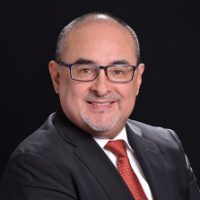
Mario Rodríguez de la Gala cuenta con una larga trayectoria dentro de la industria, ha sido Vicepresidente de dos sectores vitales para DHL Supply Chain México, en donde tenía la responsabilidad de la entrega de soluciones de cadena de suministro a los clientes para las industrias de Retail y Tecnología, ambas de las más demandantes, asegurando el mejor servicio y la flexibilidad. También tenía entre sus desafíos, la identificación de nuevos servicios para hacer frente a las tendencias del mercado. Además de liderar los sectores mencionados, Mario ha encabezado las soluciones logísticas de e-commerce en DHL Supply Chain, con el propósito de darles una respuesta a los clientes en sus necesidades de comercio electrónico. Hoy Mario Rodríguez es Presidente de DHL Supply Chain México, gracias a su gran trayectoria y desempeño dentro del sector. Mario llegó a DHL hace más de 20 años como trainee de operaciones en la Ciudad de México. Desde entonces, ha desempeñado diversos cargos en la Compañía, incluyendo el de Director General para Argentina y Chile en donde estabilizó a la organización en un ambiente macroeconómico. En México ha ocupado cargos como Director de Operaciones de los sectores Consumo, Tecnología y Químico, así como Vicepresidente de Transporte. Mario es Ingeniero Industrial egresado de la Universidad Panamericana, en la Ciudad de México. Connect with Mario on LinkedIn.
